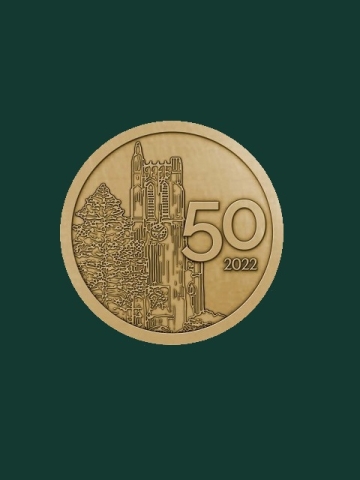
Founding to Future
Ambition Meets Innovation: Supporting Student Success Through Changing Times
For over 50 years, the RCPD has supported disabled Spartans, subsequently connecting thousands to the lifelong benefits of an MSU education. Reflecting on our work and successes, we recall the ambition, investments, and innovative thinking of many. Whether you are a pioneer in our field like Judy Gentile or James Hamilton, a steadfast advocate employed at MSU, a financial benefactor, a contemporary staff leader, or a student giving their all to reach a life passion, we call on and recognize each of you.
Founding to Future
Founding to Future
1930s
1933
Q Girls was founded by May Shaw – an all-female honor society designed to be a service-oriented organization which would help to meet the needs of visually impaired students at Michigan State University. The sophomore honor society played a key role in the successful enrollment of blind students by way of volunteerism aimed largely at helping MSU students who were blind with campus orientation, note taking, and reading.
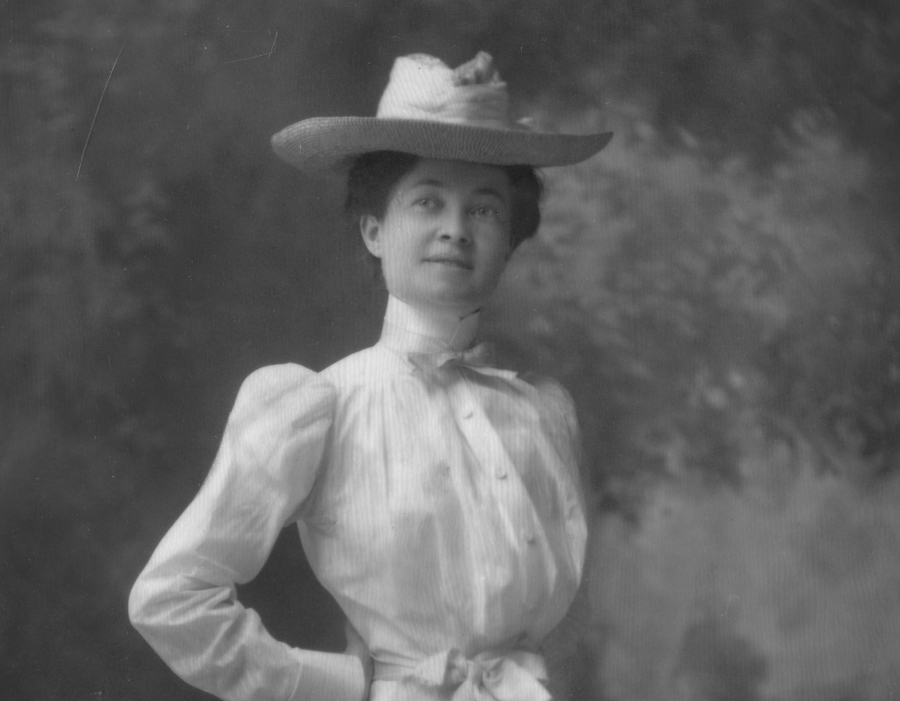
1934
The Q Girls group was officially recognized by the University, and became known as Tower Guard. The Tower Guard Honor Society began reading textbooks and classroom materials to students who were blind.
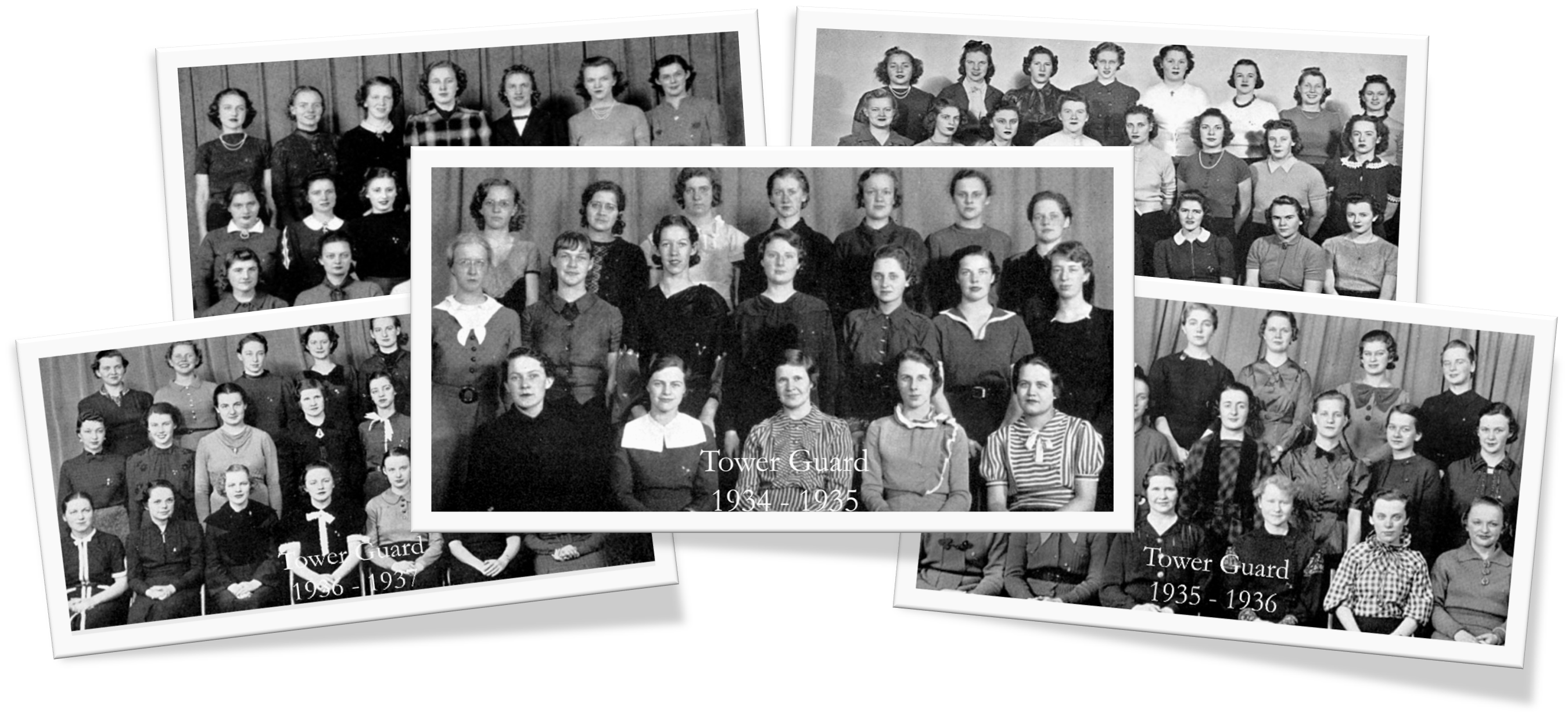
1960s - 1970s
Fall 1965
Judy K. Gentile (then Taylor) enrolled as the first known freshman wheelchair user at Michigan State University, choosing Fine Arts as a major because her first choice, Journalism, was housed in an inaccessible building. Judy organized a student organization while recruiting handicapper friends to enroll and advocate change at MSU. She and colleagues began protesting architectural and other barriers that limited their choice of classes and precluded full participation in university opportunities.
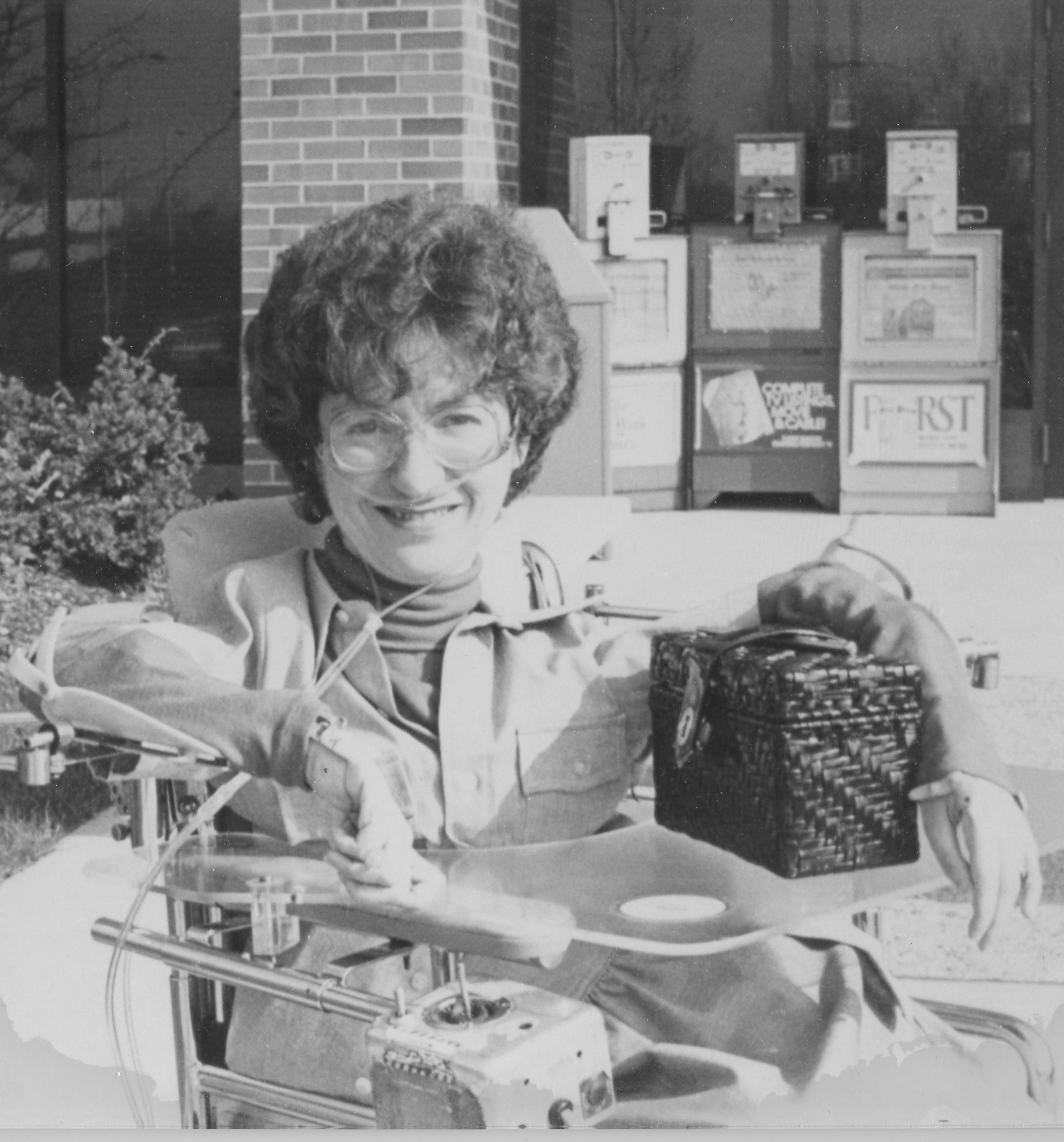
1967
MSU begins addressing architectural barrier removal for persons with physical disabilities in response to an organized disability movement and in order to comply with early State regulations.
1968
Architectural Barriers Act of 1968 passes, requiring that facilities designed, built, altered, or leased with funds supplied by the United States Federal Government be accessible to the public.
1970
A university study of the needs of disadvantaged students and students with physical handicaps indicated that a greater coordination of such services should be undertaken.
1970
Judy K Taylor graduates and enrolls in a graduate program and continues activism for the rights of handicapper students.
1971
Judy K. Taylor testifies to President Clifton Wharton’s Commission on the Future of the University and Student Body Composition.
1971
Office of Special Programs was established to offer services to disadvantaged students including handicapper students.
1972
Dr. James Hamilton, Assistant Provost for Undergraduate Education, submitted a proposal to the U.S. Department of Education seeking funding for support services for low income, first generation, and handicapper students in higher education.
Fall 1972
Handicapped Service Program opens in Owen Graduate Hall East Study Lounge, Owen Hall was the first accessible residence hall at MSU. Judy K. Taylor is hired as a graduate assistant to coordinate the office. The first decade of disability services at MSU focused efforts on the needs of students with readily visible disabilities including mobility, blindness, and deafness, as these populations identified specific accommodation needs.
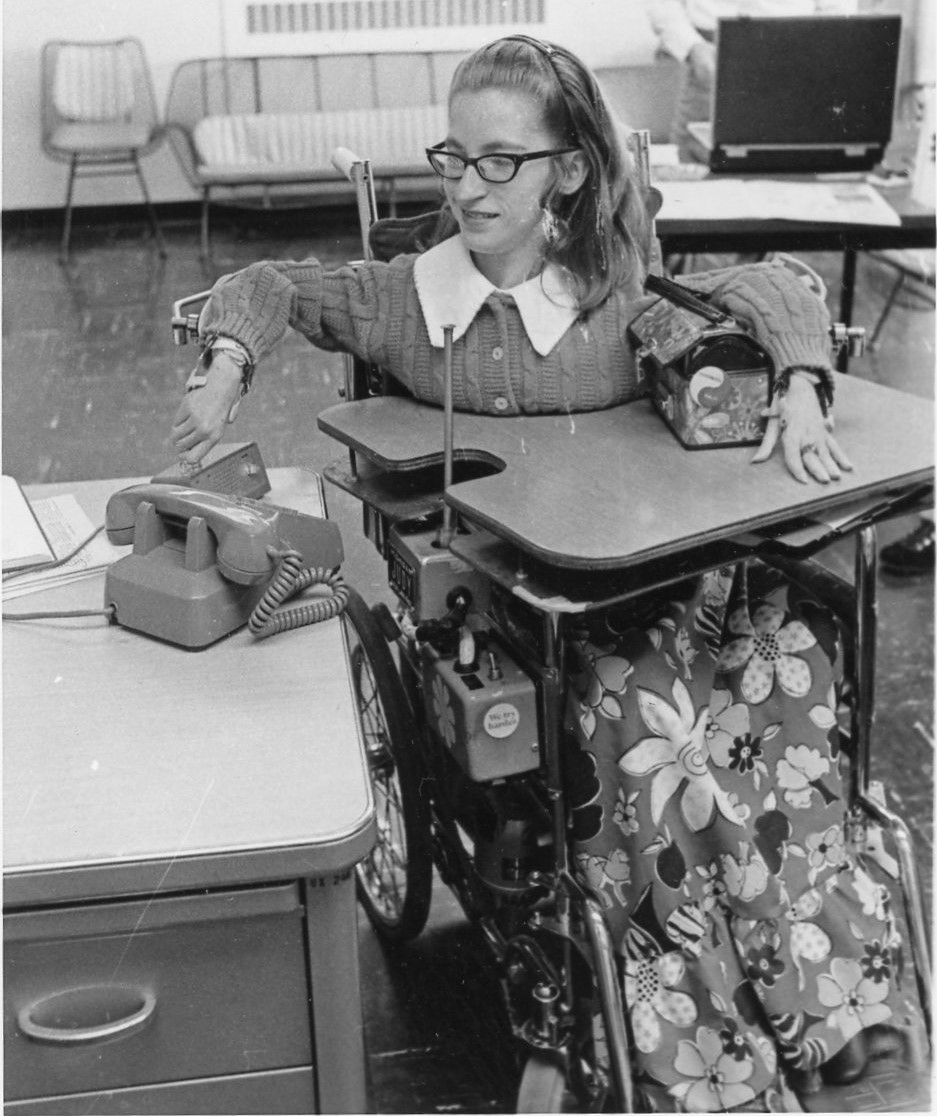
Fall 1972
HSP purchases first accessible transport vehicle. Throughout the 1970’s and 80’s, HSP continues to acquire and manage a small fleet of accessible buses that enabled students and staff with mobility disabilities to move around campus despite the inaccessibility of the MSU fixed route system.
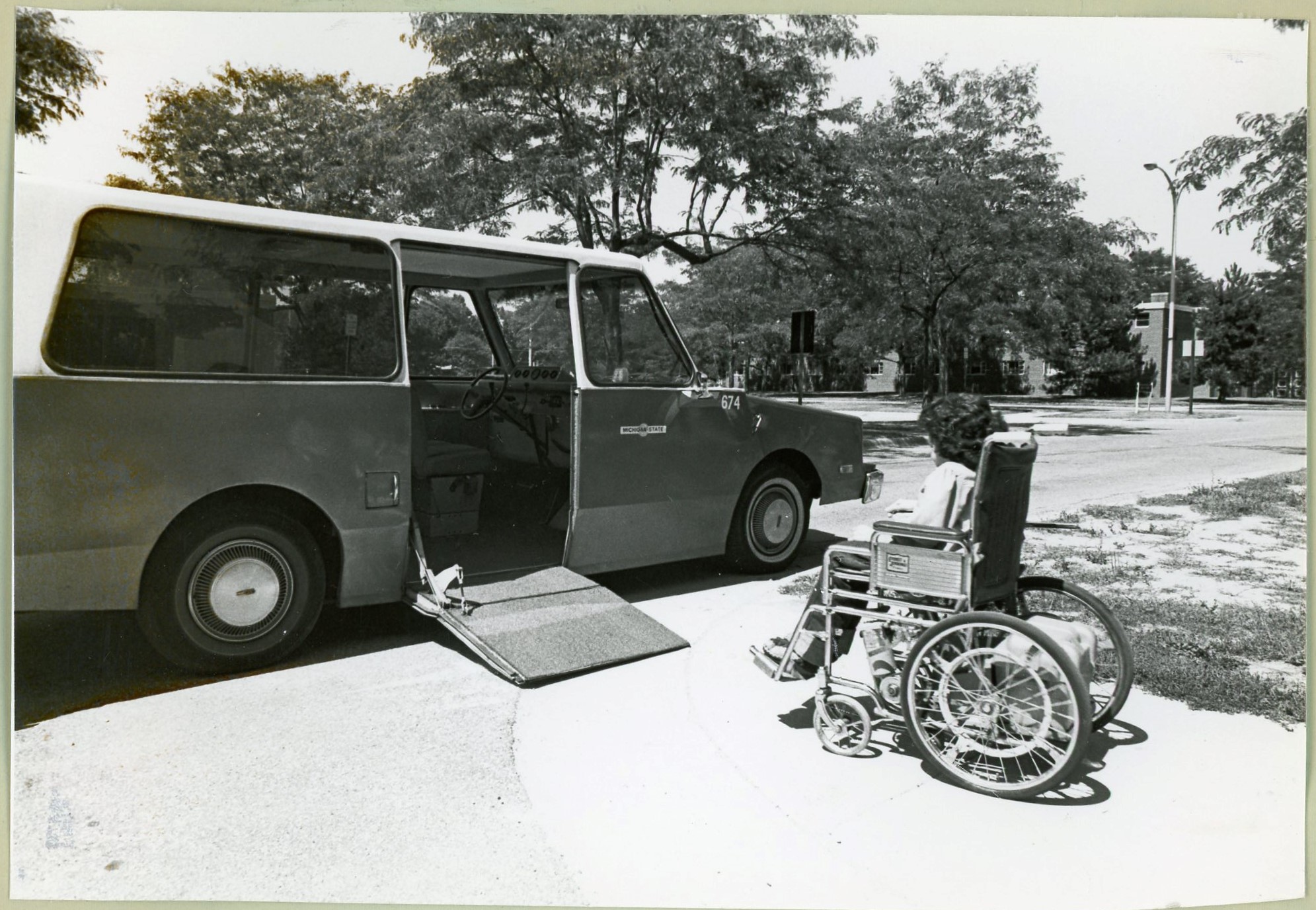
1973
Section 504 of the Federal Rehabilitation Act of 1973 becomes law, providing leverage for the early advocates of campus accessibility. This act formalized a national set of standards to ensure federally-funded programs did not systematically exclude people with disabilities from education.
Spring 1973
Michigan’s Public Act 8 of 1973 – The Curb Cut Law becomes effective
Summer 1973
Office moves to W-402 Main Library next to existing reading rooms for the blind and becomes a full-time operation, Judy K. Taylor is hired full time as the first Director of the Handicapped Services Program (HSP)
Fall 1973
HSP challenges Campus Park and Planning on the construction of new sidewalks near Wells Hall and Owen Graduate Hall that do not meet the new standards set by the Curb Cut Law – HSP eventually prevails and the sidewalks are reconstructed with curb cuts in 1974-75.
1973
Campus receives Easter Seal Grant to make IM West building accessible
Spring 1974
Board of Trustees approves Project Access with expenditure of $75,000 on campus accessibility projects including ramps and curb cuts after presentation by HSP staff
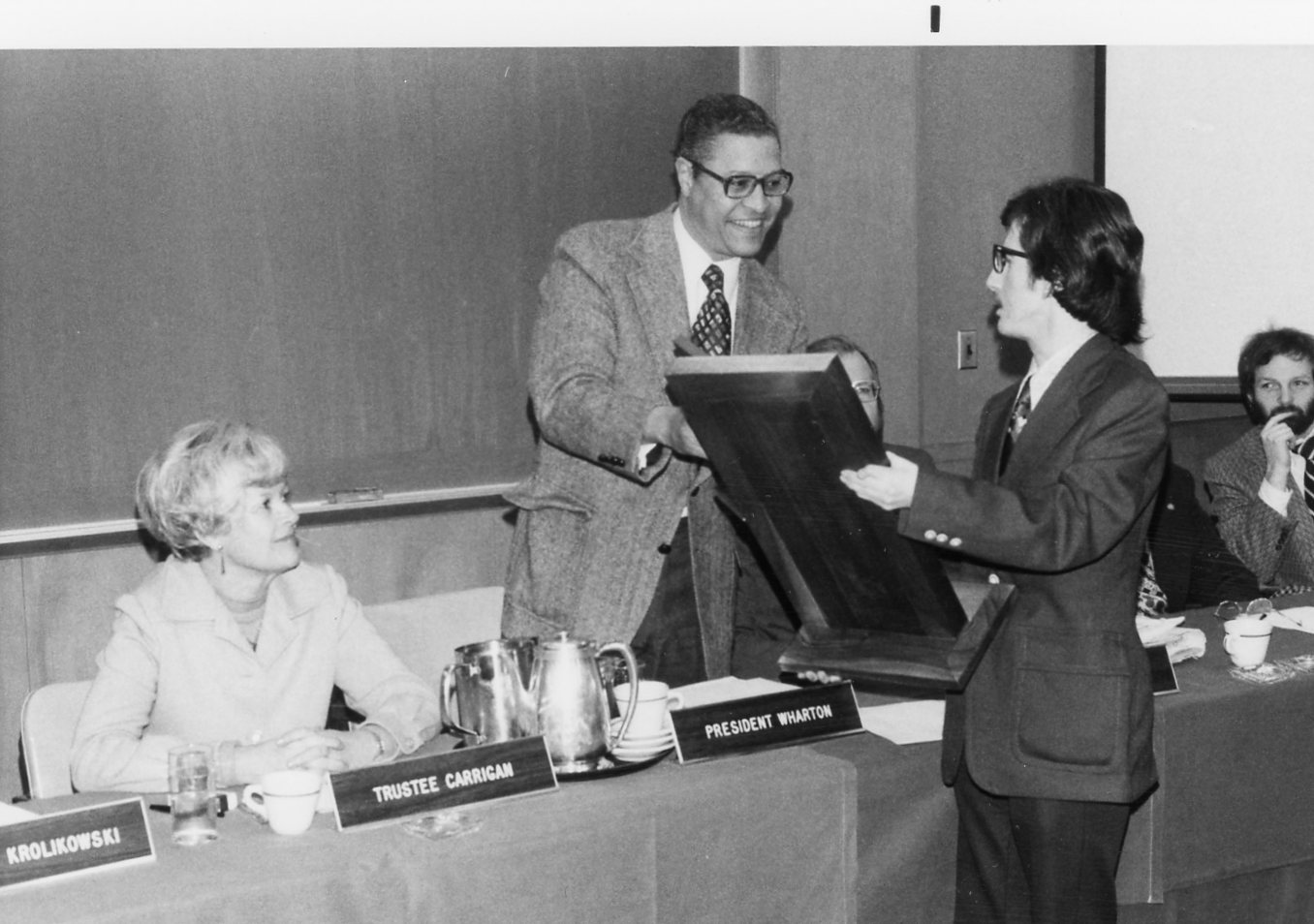
Spring 1974
HSP leads public media campaign preferring “Handicapper” rather than “Handicapped": terminology
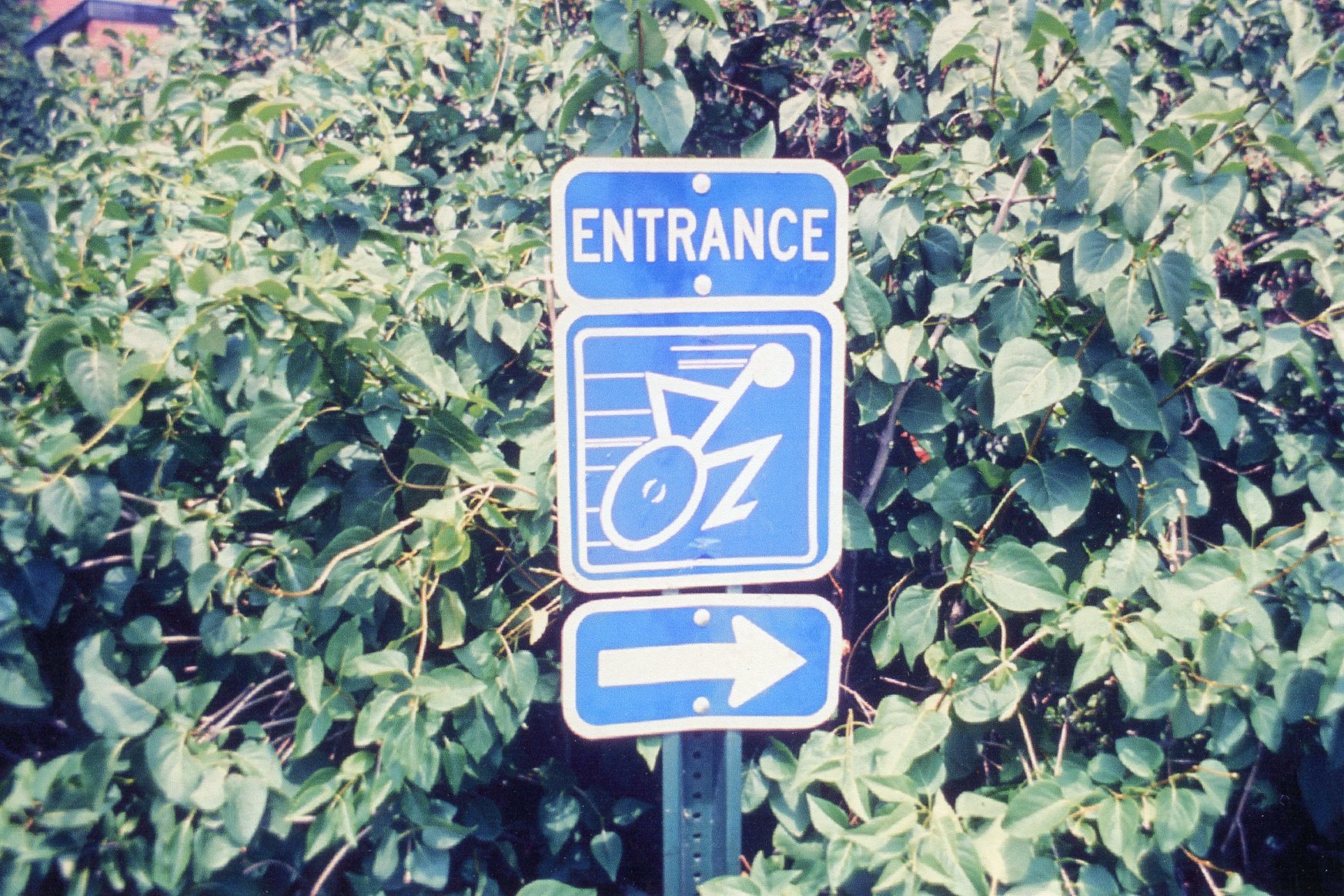
Fall 1974
HSP receives federal funding and increased university allocation to improve program accessibility – resources fund additional transport services and provide accessibility to the International Center, Kellogg Center, and Morrill Hall
Fall 1974
Lions of Michigan, Michigan Braille Transcribing Service and HSP team to produce tactile maps of the MSU campus
Fall 1974
MSU Affirmative Action Plan for Handicappers adopted by the Board of Trustees
Fall 1974
Handicapper Services Program renamed the Office of Programs for Handicapper Students (OPHS)
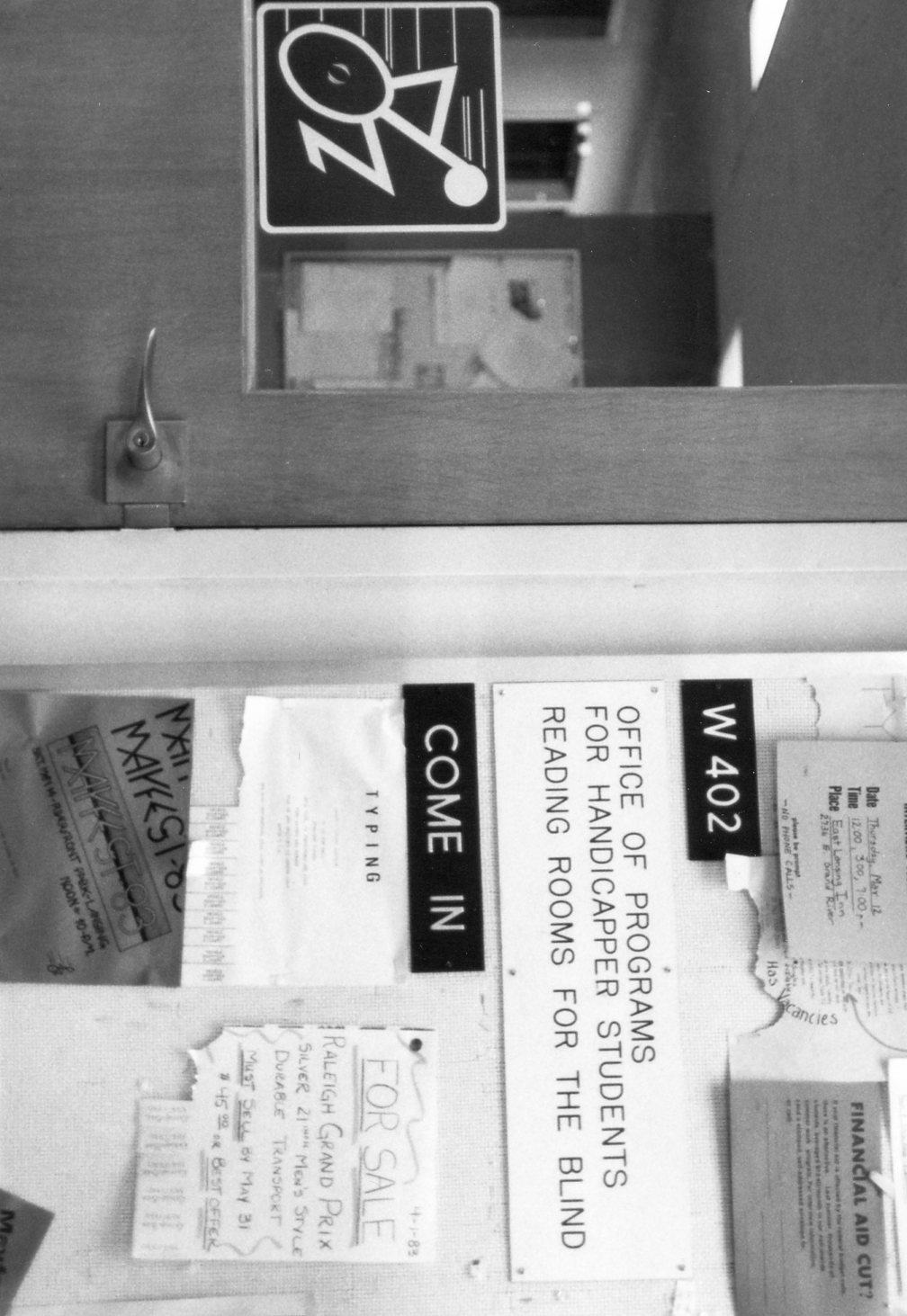
1974
The Secretary of State issued the first disability parking license plate in 1974 and the first disability placard in 1977. Before 1977, Michigan State Police administered the placard program, which began in 1949 with the return of World War II veterans.
1976
The people of the State of Michigan enact the Michigan Handicapper Civil Rights act, an act to define the civil rights of persons with disabilities; to prohibit discriminatory practices, policies, and customs in the exercise of those rights; to prescribe penalties and to provide remedies; and to provide for the promulgation of rules. Adoption of “handicapper” philosophy demonstrated by State legislation, while acceptance at the national level remained minimal.
1977
OPHS receives grant from Michigan Vocational Rehabilitation Services to develop a personal assistant training and referral service for students with quadriplegia
1977
MSU begins work on a transition plan for the systematic removal of physical barriers with the first plan completed in the fall of 1978
1977
The Association on Handicapped Student Service Programs in Postsecondary Education (now Association on Higher Education And Disability) was founded
1977
Tower Guard expands membership to include outstanding young men on campus
Fall 1979
MSU receives grant from the Michigan Commission for the Blind providing funding for new assistive technology including the Kurzweil Reading Machine
1979
OPHS creates a specialist position for interpreter services targeting students who are deaf or hard of hearing
1980s
Fall 1981
Regular publication and mailing of a newsletter, The Harbinger
1981
MSU receives a grant from the Telephone Pioneers of America to install the campus’ first two audible, pedestrian crossing signals to assist blind pedestrians
1981
OPHS participation in the design of the Wharton Center and Communication Arts and Sciences produces a new level of accessibility including power-actuated entrance doors and snow melting systems
1981
OPHS expands into the new Communication Arts and Sciences Building with the alternative format services and transportation services remaining in the Library
Fall 1982
The Assistant Director position, held by Eric Gentile, moves from OPHS into the Department of Human Relations supporting the needs of employees with disabilities from an office that becomes known as Handicapper Operations and Services
1982
OPHS acquires new TTY (telephone for the deaf) with support from the Lions of Michigan and the Tower Guard
1983
OPHS staff assist with development and coordination of first barrier-free construction course in the residential construction curriculum
1984
New Specialist, Valerie Nilson, assigned to work with students with learning disabilities
1984
OPHS and other TRIO funded programs report to the Undergraduate University Division
1984
Increased acquisition and use of TTYs (telephones for the deaf) across campus and improved availability of FM Loops assisting persons who are hard of hearing in large classroom settings
1987
Michigan Association on Handicappers in Higher Education (now Michigan Association on Higher Education and Disability) was founded as a state organization for professionals working with students with disabilities in higher education
1987
The first sign language interpreters were hired in 1987 by Judy Gentile; Donna Leahy and Kathleen Robertson.
Winter 1988
Half-time specialist for learning disabilities is added to the office staffing
Spring 1989
Academic Council recognizes American Sign Language as a viable option for meeting undergraduate foreign language requirements
Spring 1989
Board of Trustees adopts the Transition Plan outlining a formal plan for removing architectural barriers, furthering progress in the barrier removal program. Throughout this decade continuing office advocacy led to the addition of over 1,000 new curb cuts in campus pathways.
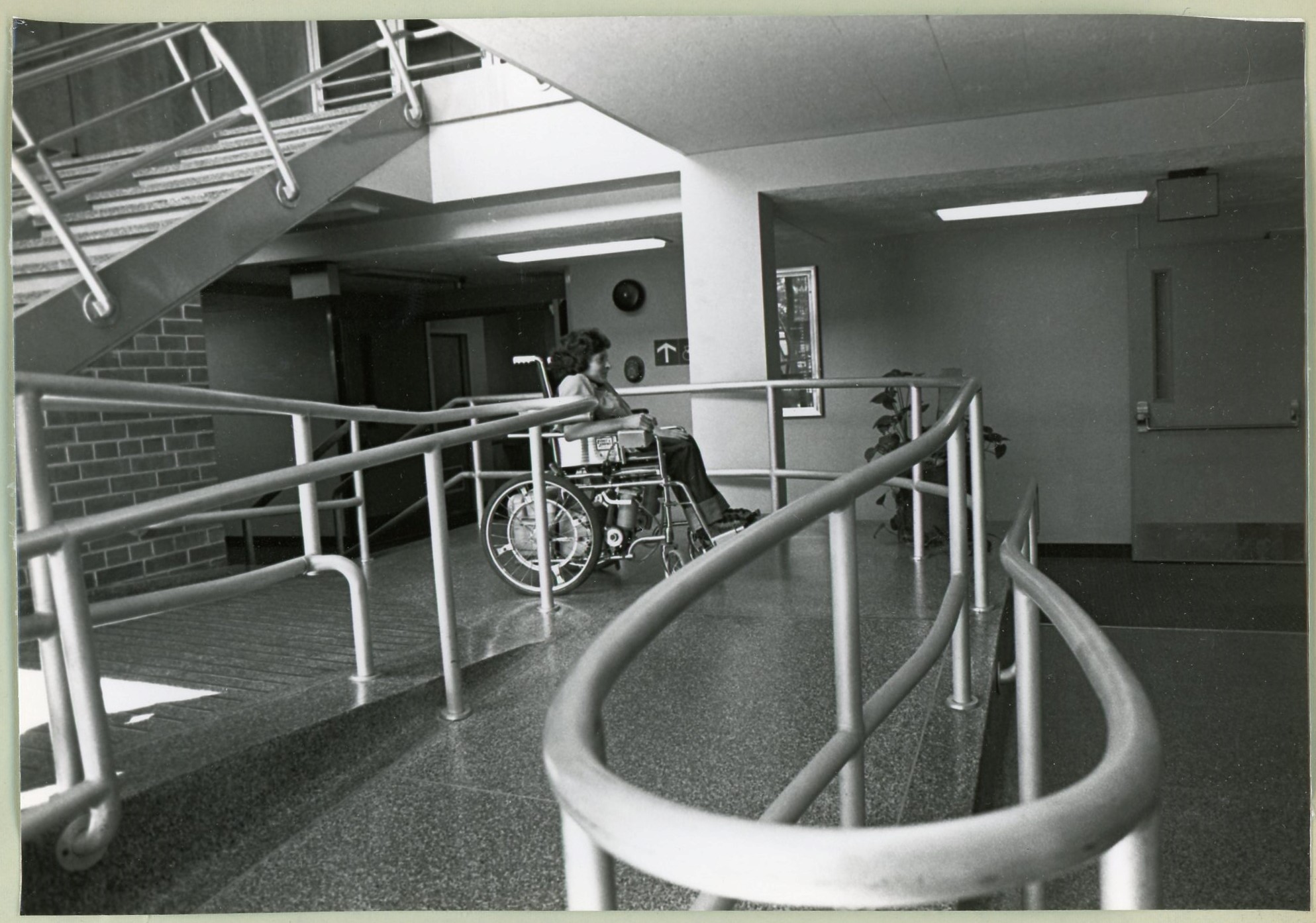
1990s
July 26, 1990
The enactment of the Americans with Disabilities Act (ADA). Signed into law in 1990 by President George H.W. Bush, this landmark civil rights legislation increases access and opportunity for people with disabilities across community life, including employment, public service, public accommodations, and telecommunication. The passage of the ADA prompted MSU to conduct a formal evaluation of its programs for accessibility to students, employees, and visitors. The passage of the ADA also brought about national, statewide and local changes in terminology encouraging new and consistent person-first language.
1992
OPHS and donors Wilhelmina Muns and Marybeth Decker establish the Decker Muns Friendship Memorial Scholarship for Graduate Students with Disabilities
April 1993
Founding Director Judy Gentile passes away at age 46.
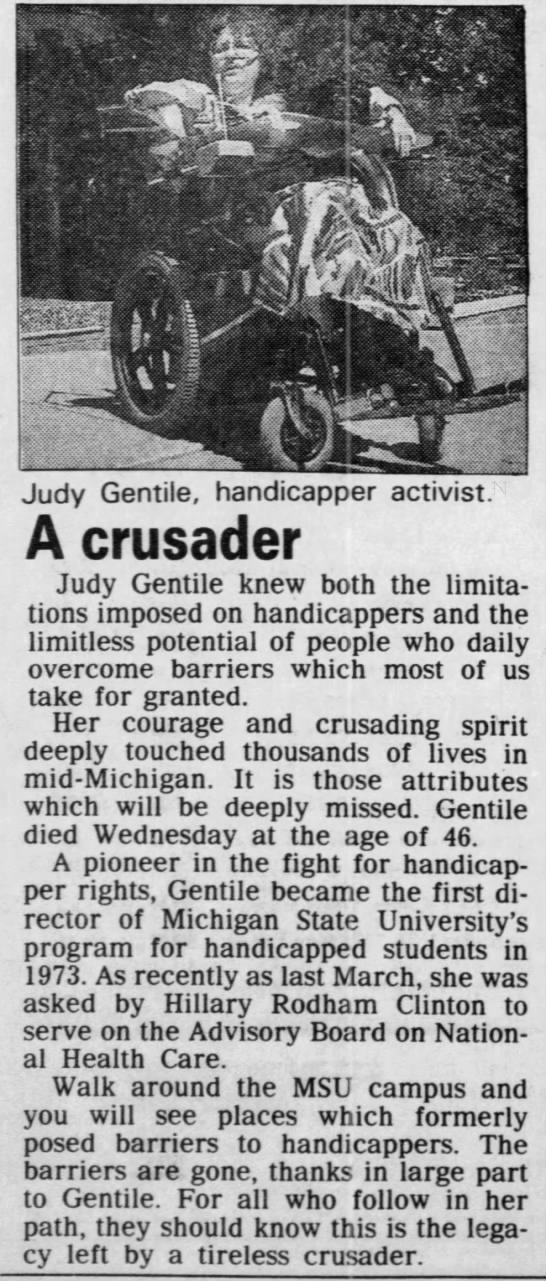
May 1993
Valerie Nilson is named Acting Director
1993
The number of deaf students using sign language increased to 13 including some enrolled in graduate and professional programs placing greater demands on resources.
Summer 1993
The half-time position of Specialist for Learning Disabilities expands to full-time
Summer 1993
OPHS transfers the handicapper transportation services to Automotive Services
June 1994
Margaret Chmielewski is hired as OPHS Director.
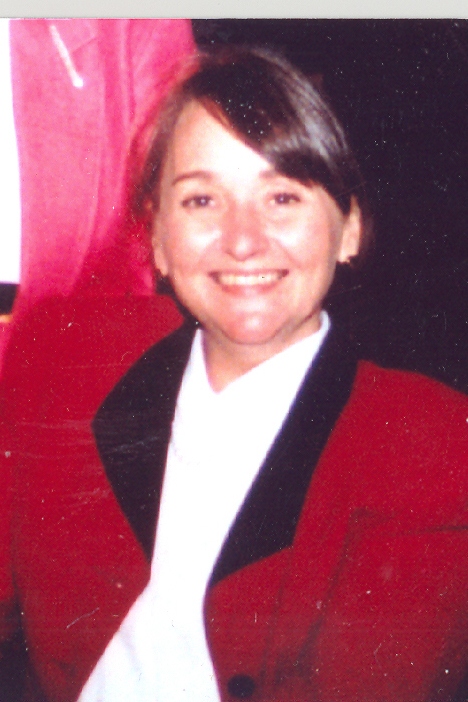
Spring 1994
MSU releases the ADA Self-Evaluation of Services, Programs and Activities
Fall 1994
OPHS moves from contract Sign Language Interpreters to hiring four staff sign language Interpreters for deaf students improving availability and quality of services.
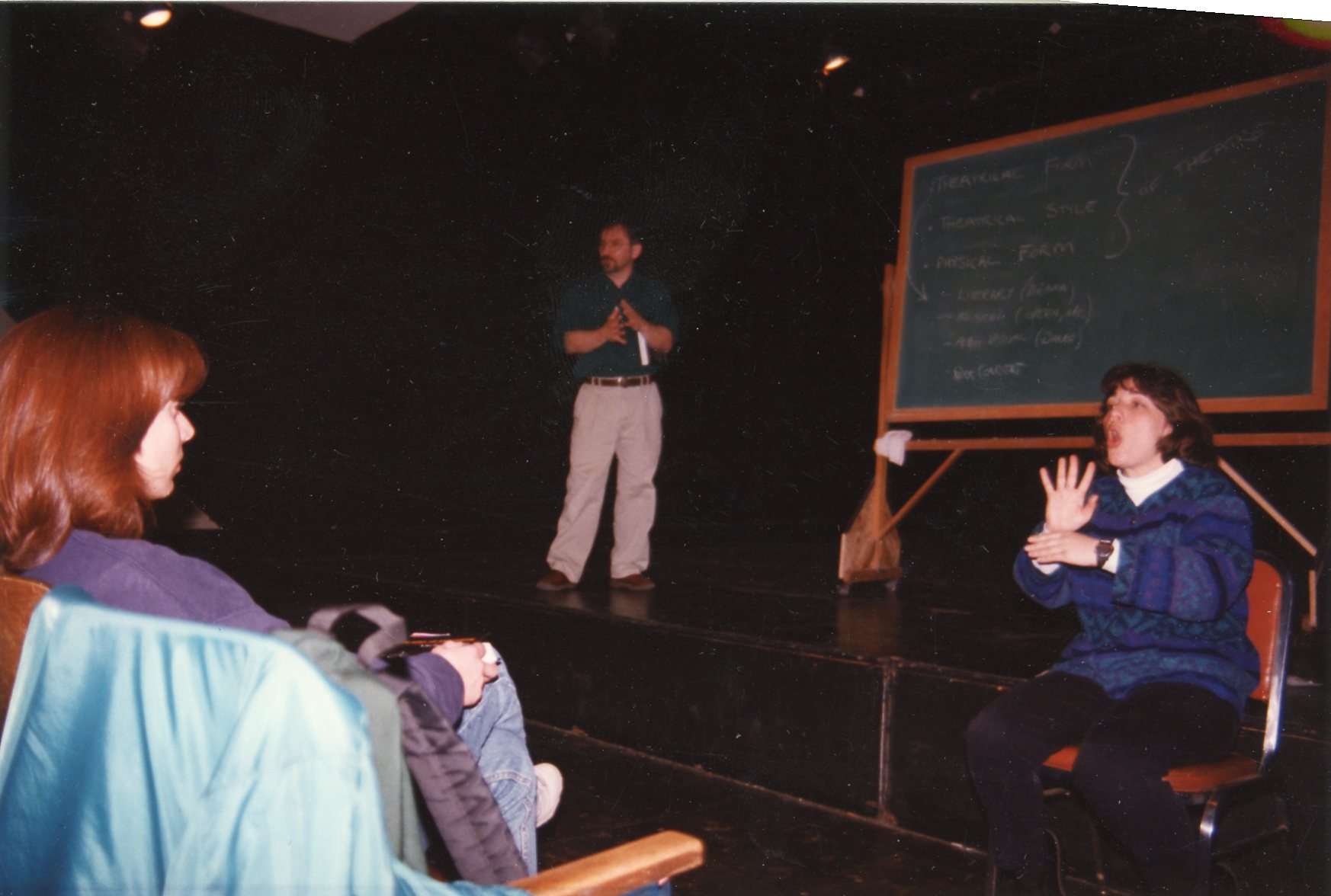
Fall 1994
OPHS moves into a single location in the remodeled office wing of Bessey Hall – providing a central location on campus and first floor access in a building where many other support services for students were already located. The office re-design included high-speed networking, sound-proof recording studios, audio and e-text production facility, and an Assistive Technology Center aid in the provision of quality services.
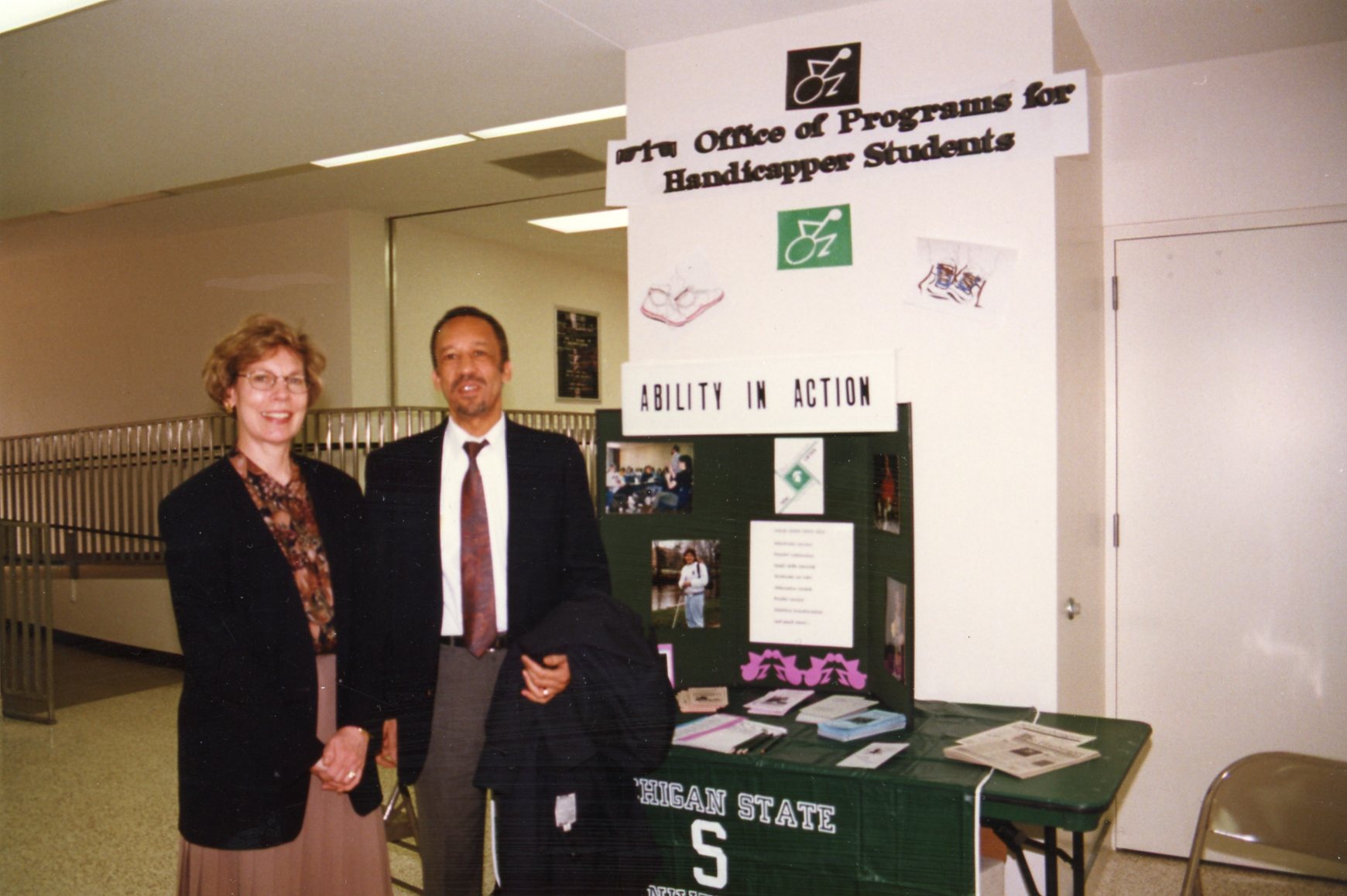
Spring 1996
The Bessey Hall atrium garden is dedicated to Judy K. Gentile founder and first Director of the OPHS who passed away in 1993 – her artwork is etched in glass on the atrium doors
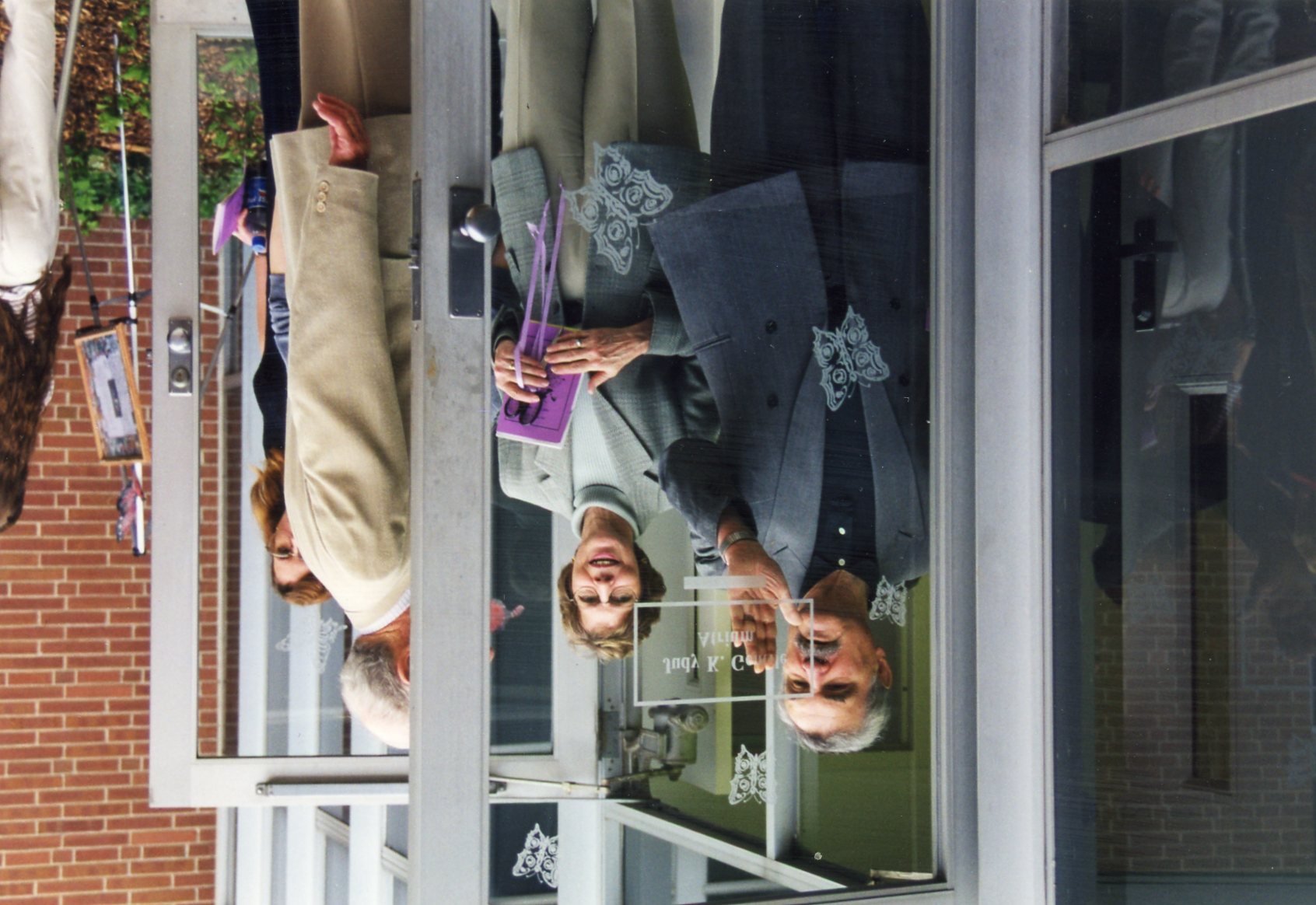
1996
The makeup of the population of students with disabilities shifts – with increasing numbers of students with invisible disabilities such as: learning, attention deficits, chronic health conditions, psychiatric, and brain injuries identifying as students with disabilities.
Fall 1996
OPHS hires the first Specialist for Psychiatric and Brain Injury Disabilities
1996
Growing population of students with chronic health conditions was seen, these cases were divided among several staff specialists.
Fall 1997
OPHS hires first staff Real-Time Captioner, Karen Calhoun, assisting students who are deaf and hard of hearing but do not use American Sign Language
1997-98
Residents of Michigan enacted Public Act 20 of 1997-98 replacing the handicapper terminology with people first terminology in accordance with the national trend.
Summer 1998
OPHS assumes responsibility for coordination of services for employees and visitors with disabilities
1998
The position of Assistive Technology Specialist, Stephen Blosser, is added to work with all disability specialists to build on the historical efforts in blindness and mobility-related technology and facilitate student access to the increasingly prevalent information systems used throughout the academic environment. This position refines the existing Assistive Technology Center and provides solutions for a range of technology-related issues.
1999
The Council for Students with Disabilities (CSD) becomes active again after several years of being inactive. This organization works to foster a stronger voice for students with disabilities in the campus community
1999
A group of disability advocates requested that MSU hold hearings on its use of the handicapper terminology and the MSU Board of Trustees authorized the change in terminology at MSU from handicapper to disability
April 1999
President McPherson approved the new Reasonable Accommodation Request policy
June 1999
Michael Hudson is named Acting Director of OPHS and later Director following the passing of Margaret Chmielewski
Summer 1999
The Office of Programs for Handicapper Students is renamed the Resource Center for Persons with Disabilities
Summer 1999
The Capital Area Transportation Authority assumes responsibility for campus fixed route and paratransit services providing persons with disabilities new options in campus and local transit
1999
RCPD worked collaboratively with staff of the MSU Computer Laboratory to make a new assistive computer software package available throughout the campus via the campus network. This new screen reading software enables students with visual disabilities to independently use Windows-based computers in a variety of Microcomputer Laboratory settings across campus.
1999
Enhanced wheelchair accessibility at the Fairchild Theater
2000s
Fall 2000
RCPD receives additional office space paving the way for an expanded program of electronic textbook production
2000
RCPD renews and streamlines mission: “RCPD mission, “Lead Michigan State University in maximizing ability and opportunity for full participation by persons with disabilities”
2000
As part of a collaborative effort between Campus Parks and Planning, and the RCPD, MSU has begun a new standard in accessible pedestrian indicators. The new signals installed this year at Red Cedar and Shaw Lane, and Chestnut and Shaw Lane provide verbal and tactile cues on the status of the pedestrian crossing signals. MSU is the first university to incorporate this new generation of accessible signals from Polara Engineering. In addition to verbally announcing the presence of a lighted crossing signal, the actuator buttons vibrate indicating the activation of the signal for those with dual sensory disabilities. Finally, for persons with physical disabilities, the new actuator buttons are touch sensitive and thus are more easily actuated when compared to traditional signal actuators. This technology is scheduled for installation on each new campus intersection employing pedestrian signals. City of East Lansing agrees to install Audible/Tactile Pedestrian Crossing Signal equipment identical to that used on campus for some targeted pedestrian intersections.
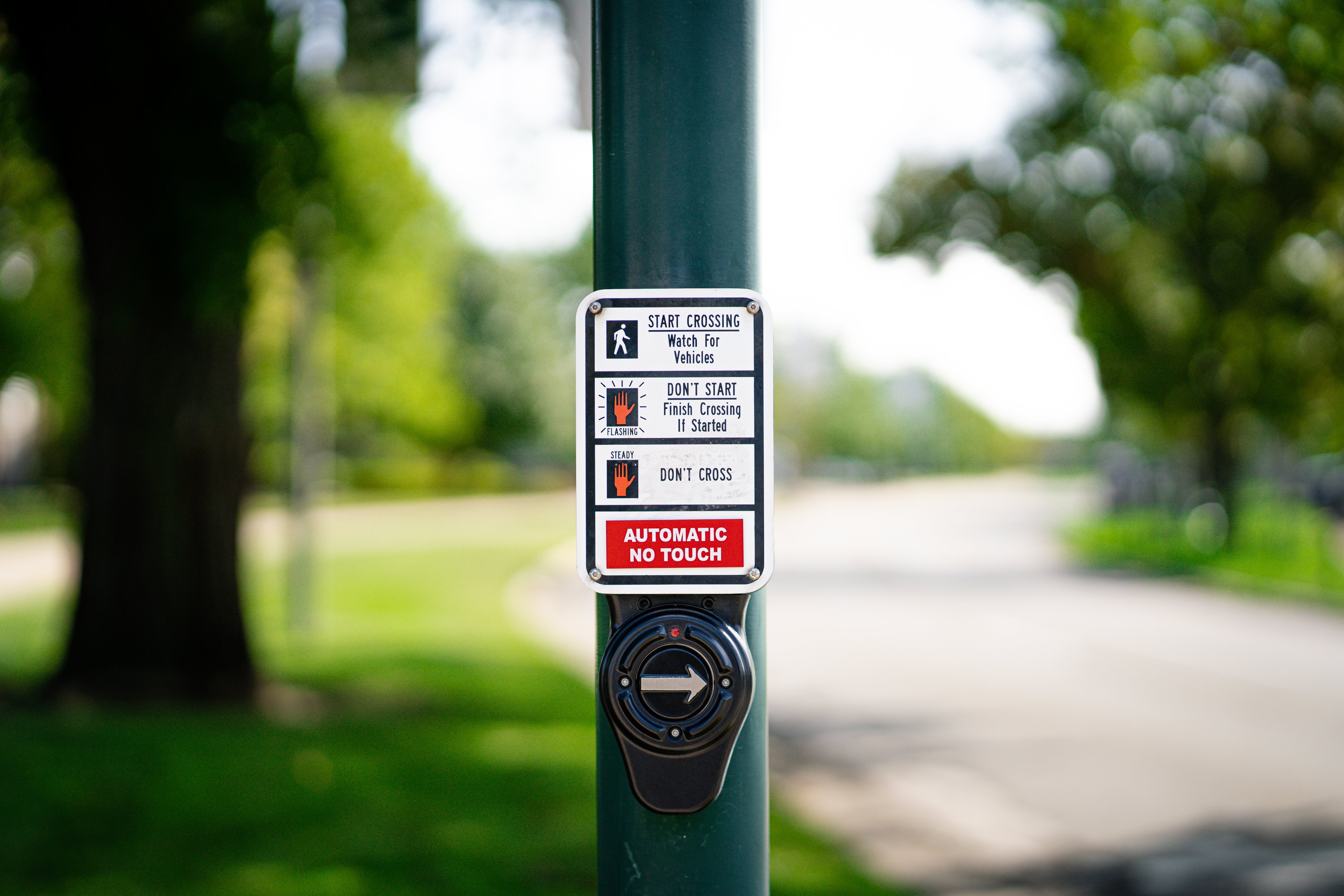
2000
Continued TRIO funding with OSS to provide four more years of funding for inter-departmental efforts enhancing service quality for students who are first generation college students, low income, and/or students with disabilities.
2000
Enhanced wheelchair accessibility at the IM Circle Facility, and enhanced accessibility to the Kellogg Center, MSU union International Center, Executive Management Center, and the MDNR/MSU Animal health Diagnostic Laboratory
2000
Establishment of the Persons with Disabilities Empowerment Fund for new initiatives in areas including: career and employment readiness, leadership development, assistive technology, audiovisual educational material accessibility, and disability awareness
2000
Commencement Keynote Speaker and Honorary Degree Recipient: Dr. Raymond Kurzweil. He also attended a reception at the RCPD.
2000
RCPD lead the university in the development of a series of 3 presentations to large campus groups regarding techniques for increasing campus Web accessibility.
2000
Presidential Contact: An MSU and RCPD alumnus, Karla Hudson, introduced President Clinton in Flint at an event to underscore the significance of the Digital Divide for Persons with Disabilities. In addition to an RCPD staff member meeting with President Clinton, this event lead to a local TV newscast from the RCPD Assistive Technology Center (ATC) and a State News article on the ATC.
2001
The first annual Welcome Orientation Workshop (WOW) is held, to provide a structured opportunity for newly registered RCPD students to learn more about features, procedures, and services of RCPD and surrounding community.
2001
New Scholarships: The Grand Rapids-based Samaritan Foundation has pledged to support the RCPD with 5 scholarships of $2,500 each.
2001
New student position entitled Promotional Materials Developer produces the Get Involved brochure and RCPD General Brochure.
2001
RCPD lead the university in the development of a new four-hour Web Accessibility training program which was offered as a Libraries, Computing and Technology Training Program. Course development was funded as a result of the RCPD winning a competitive grant from the MSU IDEA funds.
2001
The RCPD continued to move further into a next generation process for making textbooks and other course-related print materials available to students with print-related disabilities. With the new requirement for Computers for every MSU student, this technology is important.
2001
MSU receives a daVinci Award in the Personal Mobility category as a result from collaborative efforts between RCPD, Campus Parks and Planning, and Fishbeck, Thompson, Carr and Huber (a civil engineering firm) recognizing MSU’s innovative accessible pedestrian intersections, located on Shaw Lane.
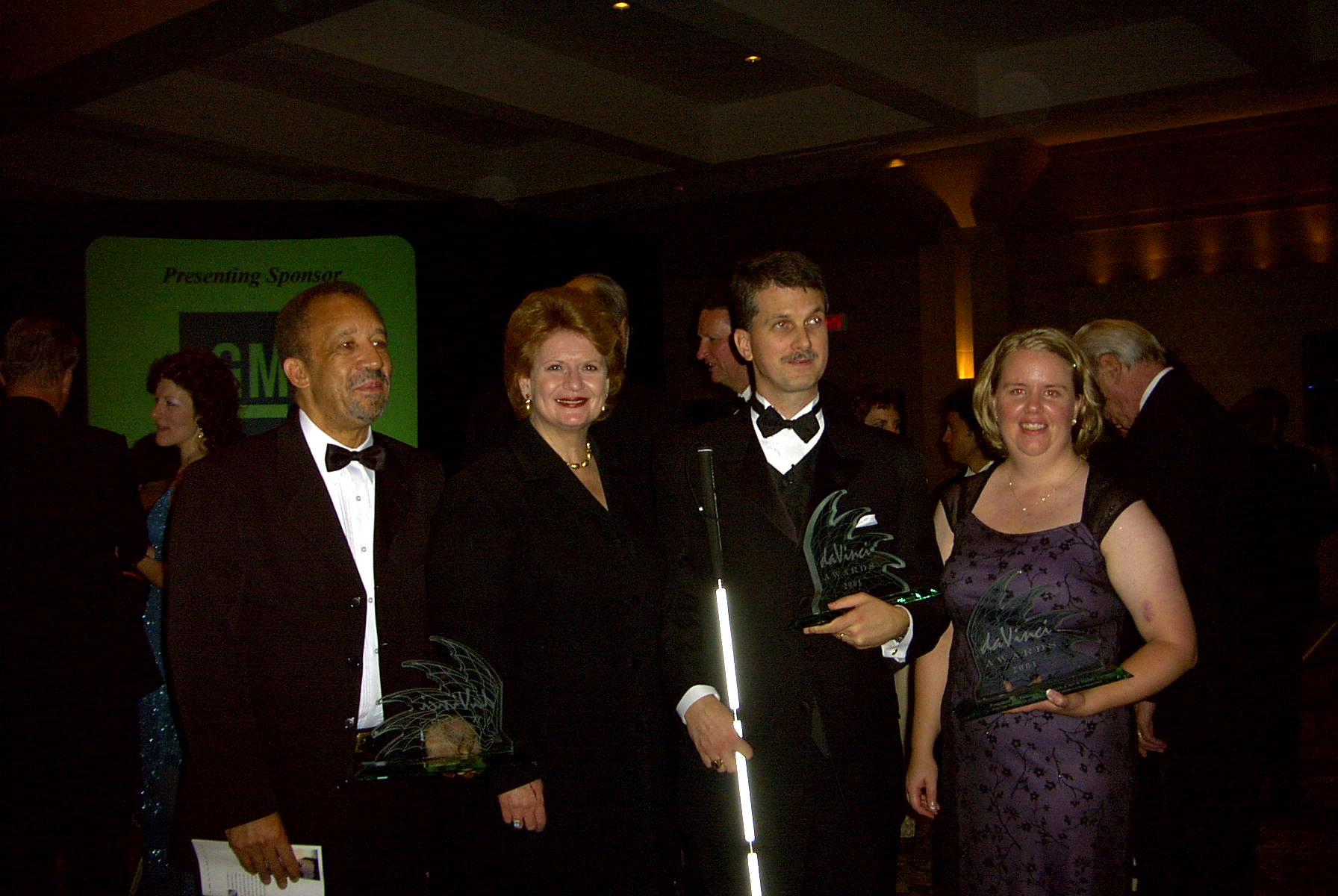
2001
The Michigan Commission for the Blind, Lansing School District, and the RCPD teamed to provide a summer work experience for a high-school student. This first-time work experience helped build that student’s self-esteem and served to provide her with a first look into the world of work.
2001
RCPD expands work in career development strategies – and started to do more work with connecting students with entities that can enhance their understanding of the career development process. RCPD hired a Career Services Consultant to assist with building connections and programs with Career Services and Placement, Vocational Rehabilitation, and other sources of relevant information and assistance.
2001
MSU Master Gardeners Program becomes accessible after RCPD teams with MSU extension to produce a Braille version of all Master Gardener materials to aid a deaf-blind student to complete the series.
2002
New Scholarships: The Robert L. Decker and Benjamin Muns Friendship Memorial Scholarship has also strengthened this year and now produces 3 $2,500 scholarships annually for graduate students with disabilities.
2002
An Information Technology Professional is added to the RCPD team, this position will serve as a lead for countless new technology-related initiatives.
2002
RCPD begins work with MSU Federal Credit Union to develop and implement MSUFCU’s accessible network of Automatic Teller Machines (ATMs)
2002
RCPD staff were funded for the Strengthening Ties Mini Grant competition through the National Clearinghouse for Disability Exchange, this project involves a reciprocal exchange of staff with home stays between the RCPD and University of Surrey, UK.
2002
Accessibility improvements to the IM Circle Facility are completed with wheelchair access for the first time. There is also enhanced accessibility to additional facilities including: Bessey Hall, Bio Physical Sciences, Wells Halls, Chemistry, Smith Academic Center, Old Horticulture, and Anthony Hall via the addition of a combination of powered entrance doors, and interior fire door hold open devices which provides easier passage for wheelchair users and others with physical disabilities. RCPD staff worked with members of the Chemistry Department regarding the addition of disability related signage for bathrooms, advisement regarding the removal of barriers in the accessible bathrooms, and identification/addition of signage for the accessible entrance for Lecture Hall 138.
2002
Continued collaboration with the Geography Department and Campus Parks and Planning in the testing of new technologies and the development of a program to assist students with visual impairments and blindness in their travels and orientation to the MSU campus, including GPS technology and tactile maps.
2002
RCPD staff collaborated with Talking Signs, the Capitol Area Center for Independent Living, and CATA in the installation, consumer training and consumer feedback regarding the GPS systems installed in all CATA buses and the Talking Sign infrared systems. All CATA buses with GPS systems announce the bus and the stops as the bus travels around the campus. Students and employees with visual impairments and blindness are able to listen for the announcement of stops without having to request information from the driver.
2002
MSU’s first annual Usability & Accessibility Event in celebration of World Usability Day.
2003
Development of a new client-server model for assistive technology in both the RCPD and Library assistive Technology Centers
2003
Development of the MSU Service Animal Policy for students and employees
May 2003
The first talking ATM at MSU was put in service at the main branch of the MSU Federal Credit Union. This makes MSU a leader in this form of accessibility representing likely the first credit union and university in the Midwest to implement an accessible talking ATM machine.
2003
RCPD has a new collaboration with the Lansing Regional Chamber of Commerce and the Self-Help and National Training Institute to provide students with information, guidance, and support on small-business plan development. This effort will provide students with professional guidance on the many aspects of developing, testing, and funding new entrepreneurial ventures.
Spring 2003
Council for Students with Disabilities sponsored a well-attended presentation by Chris Fonseka (a comedian with Cerebral Palsy).
Summer 2003
The first National Deaf-Blind Transition Camp for High School students preparing for college was hosted at MSU. This transition camp was the first event of this kind in the history of services to Deaf-Blind youth.
2003
RCPD staff complete a comprehensive review and rewrite of the Reasonable Accommodation Policy for University Employees and Job Applicants (written in 1998).
2003
The Grand Rapids based Samaritan Foundation funded the development of a new Samaritan Technological Advancements in Reading (STAR) program which is spurring new leadership and an enhanced reputation in the production of accessible materials for students with print-related disabilities. Integration in our electronic book storage and retrieval system is completed.
2003
Migration from paper-based filing of externally generated student documentation to a system of online scanned documentation known as the Student Data System is completed. Development of a new Employee Data System for improved management of employee-related data is now underway.
2003
Building Accessibility enhancements include projects in Anthony Hall, Bessey Hall, Bio-Physical Sciences Building, Clara Bell Smith Athletic Academic Center, Marshall-Adams Hall renovation, MSU Union, Owen Graduate Center, Physics/Astronomy Building renovations, Shaw Hall, and Wells Hall B-Wing SE & SW Entrances. Planned modifications include ramped/grade level entry to the buildings, automate entry doors, evaluate need for snow melt system, review and enhance availability of barrier free parking, installation of elevators for access to all levels, toilet room modifications, ADA signage, and fire alarm modifications as required.
2003
The first year of the new Stern Tutoring and Alternative Techniques for Education (STATE) program for students with learning disabilities. The first year of the STATE program provided 14 students with an enriched offering of tools including a seminar, mentoring, assistive technology skill development and tutoring to build skills in circumventing challenges associated with learning disabilities.
2003
Staff from RCPD facilitated a collaborative project resulting in the world’s first accessible talking Whirlpool washing machine. This project teamed senior electrical engineering students with RCPD staff, and Whirlpool Corporation resulting in a project that gained widespread publicity for the students, Whirlpool and MSU. The project sensitized corporate executives, future engineers, and the broader community to the needs of people with disabilities and the attainability of a more universally accessible product design.
Spring 2004
The number of MSUFCU accessible network of Automatic Teller Machines (ATMs) increases to 5 machines in East Lansing, and 1 machine at Oakland University.
2004
Newly established student organization, the student Brain Injury Group (BIG) was founded to promote students with brain injuries in the campus community.
2004
During the 2003-04 academic year, RCPD and SASS expanded existing collaborative efforts by realigning staff and jointly funding a position entitled Cognitive Disabilities & Brain Injury Specialist/Student-Athlete Liaison.
October 2004
MSU’s Usability & Accessibility Center (UAC) was officially opened, RCPD remained involved in both advisory functions, and initial efforts of the center and aided in the first accessibility studies conducted via the center.
2004
RCPD and MSU receive National recognition for Accessible Book Production from Bookshare.org, marking MSU as a premiere producer of accessible electronic reading materials thanks to the STAR program.
2004
RCPD in collaboration with OSS, received another 4-year TRIO grant from the U.S. Department of Education supporting low-income, first generation and students with disabilities. Continuing a partnership dating back to 1974.
2004
RCPD’s new tree of giving is added to the office lobby to recognize donors for various giving milestones and to serve as a visual reminder of the community of support that surrounds RCPD students and staff.
2004
Staff from RCPD facilitated a collaborative project resulting in the world’s first accessible talking Whirlpool clothes dryer. This project teamed senior electrical engineering students with RCPD staff, and Whirlpool Corporation resulted in a first-place MSU engineering design team award and additional interest from Whirlpool Corporation officials and a world-wide audience of others interested in accessible design. RCPD staff received an invitation from Whirlpool officials to develop a proposal to both help further develop this technology and extend its availability into the mainstream.
2004
The Association for Chronic Health Empowerment (ACHE) student group was founded, aligned from student interest to form a new chronic health disability discussion group.
Sept 2005
First ever Adaptive Sports Festival (ASF) to raise awareness and educate the community about the availability of sports and leisure activities for persons with disabilities. ASF highlighted the following sports: adaptive weight lifting, bocce ball, floor hockey, goal ball, hand cycling, power soccer, swimming, tennis, and wheelchair basketball.
2005
RCPD began work with Academic Orientation Program to facilitate captioning of new video materials used in the freshman and transfer orientation programs.
2005
Sorenson Video Phone system established in the RCPD Assistive Technology Center. This system helps persons who are deaf/Hard of Hearing by providing a visual link to another Sorenson user. Users can then use sign language to communicate without involving a third-party interpreter. The call station is available to the entire campus community.
2005
RCPD joined forces with General Counsel, Faculty Development and Affirmative Action to produce a joint MULTI/Lilly disability training seminar for faculty, staff and administrators. The program examined issues surrounding disability from attitudinal to legal to classroom accommodations. This presentation lead to new plans for additional print documentation to be added to the new faculty orientation beginning August 2006. An “Assistive Technology” session was presented to participants in the King-Chavez-Park College Day Program. Participants learned about resources that aid students with a range of disabilities in their quest to transition to higher education and employment.
2005
Collaboration with Michigan Commission for the Blind, Lansing Community College, Western Michigan University, and Wayne State University is leading to a re-design and intensification of the MCBTC College Assessment tool for assessing high school Juniors and Seniors in preparing students to meet the challenges and demands of college.
2005
Two new funding sources for students with disabilities resulting from successfully submitting proposals to the International Fellowship for Study Abroad and the MSU Quality Fund competition. A new study abroad program is being developed called "Disability In A Diverse Society" and will be co-led by Dr. Michael Leahy and an RCPD staff member. It will initially take place summer of 07 in Dublin, Ireland. Five scholarships for students with disabilities will be available, funded through the IFSA. Quality Funds will help pay costs associated with program development, travel, accommodations, and research. Quality funds are recurring and will insure that accommodations will continue to be available for students with disabilities who study abroad. This program will be advertised nationally and will continue to catapult MSU into a leadership position for inclusive study abroad programs. RCPD staff remained active in study abroad fairs bringing continued attention to the potential for students with disabilities to study abroad.
2005
RCPD staff meet with Olin Health Center psychiatric care providers to coordinate services in an effort to deliver more effective services and accommodations to students.
2005
The Adaptive Sports Festival is funded centrally by the “Creating a More Diverse and Connected Community” Program, enabling this event to be a statewide event hosted on campus.
2006
The Employee Data System went live spring semester, and MyProfile became active enabling students and employees to begin registration with the office, update personal information, and access online services.
2006
RCPD staff were invited and participated in a systematic evaluation of accessible voting technology. Our feedback aided state decision making on the purchase and deployment of accessible voting equipment for August 2006. This new technology is monumental as it enables people with disabilities throughout the state to independently cast votes in general elections for the first time. Previously, persons with disabilities cast votes with the aid of an election worker which did not necessarily provide confidentiality in the ballot process.
2006
MSU revamps their process for requesting air conditions in residence hall facilities, RCPD will only take part in requests if the need is related to disabilities and not for minor health conditions.
2006
The Samaritan Foundation Scholarship program is renamed the “Samaritan Scholar Award”.
2006
Continue Federal Student Support Services TRIO grant recipient to support low-income, first generation and students with disabilities.
2006
RCPD received funding from the Assistant Provost for Libraries, Computing and Technology through an Accommodating Technology Committee proposal. The allocation of funds aided RCPD in developing a video captioning process. This new captioning capacity employed student staff to add captioning on videos used in high-impact student orientations and welcome activities.
2006
Collaboration with Michigan Commission for the Blind, Lansing Community College, Western Michigan University, and Wayne State University is leading to a re-design and intensification of the MCBTC College Assessment tool for assessing high school Juniors and Seniors in preparing students to meet the challenges and demands of college.
2006
A partnership with Community Connections center for independent living, Michigan Career & Technical Institute (MCTI), and Michigan Rehabilitation Services provided a southwestern Michigan student with a unique opportunity to serve as an Assistive Technology Apprentice. During the 8 month experience the student shadowed the RCPD Assistive Technology Specialist and gained valuable career experience.
June 2006
RCPD and the Department of Packaging co-sponsored a conference on accessible packaging – exploring accessibility challenges in existing packaging and informed packaging professionals about the challenges around access to packaging by persons with disabilities.
2007
Establishment of the Harold F. and Phyllis N. Wochholz Endowment for Persons with Disabilities provides new programmatic opportunities for and about persons with disabilities while simultaneously marketing MSU as a university with an exceptional and sustained record of success in meeting the needs of persons with disabilities. Harold, a 1957 graduate of the College of Engineering, identifies MSU as foundational to his success as an engineer and leader within a major aerospace corporation.
2007
Establishment of the Tower Guard Scholarship providing scholarship support for members of the MSU Tower Guard organization which provides critical services to students with disabilities via the RCPD.
2007
Establishment of the Charles and Philippa Webb Endowed Scholars Award (housed within the College of Education) now provides support for students with disabilities pursuing careers in teaching.
2007
Establishment of the MSU Shooting Sports endowment (housed within the College of Agriculture and Natural Resources) will develop competitive opportunities for persons with disabilities in archery and air riflery.
June 2007
The new study abroad program entitled, "Disability In A Diverse Society" takes place at Dublin City University in Ireland.
2007
New position added to the RCPD team entitled “Media Access Specialist”, responsible for facilitating student access to instructional materials through advising, production coordination and training, and standards development of accessible media for print-related disabilities.
2007
The National Beep Baseball Association was delighted this past year to see the creation of major technology improvements for the game of beep baseball. Through staff collaboration with ECE 480 projects, the Physical Plant, and other Michigan partners and with support by students and the Harold and Phyllis Wochholz Endowment for Persons with Disabilities, we have leveraged MSU know-how to create improved designs for a beeping ball, wireless beeping bases and remote controller. In addition to these innovative improvements to the equipment we have also assisted in finding channels for production and sale of this MSU created technology. These channels utilized the skills of people with disabilities and ultimately provide employment of people with disabilities in the state of Michigan.
Fall 2007
RCPD realigned our service and staffing model to enable all people with disabilities, studying or working at MSU, access to specialists by major areas of disability concentration.
Fall 2007
Improvements in accessible technology systems across MSU including the implementation of a new phone system in cooperation with Avaya Corporation, time-out modifications to log-in screens in campus IS systems, and improvements to technologies including voice input/output, copier/fax to contemporary portable assistive living devices.
2007
Engineer Design Day has an added disability element - engineers can now learn about people with disabilities, people with disabilities learn about the potential of engineering to solve problems, people with disabilities guide project goals and developments, and a broad campus and national audience witness the powerful outcomes at the Engineering Design Day activities.
2007
Launch of a new RCPD website which employs a robust set of features from a dynamic database-driven design, distinctive MSU visual identity, clear navigational features, to strong support for today’s access technology.
2008
RCPD co-hosts a Fulbright Scholar, a blind student who spent a year at MSU teaching in the Less Commonly Taught Language program of Russian.
2008
Establishment of the new endowment known as the Carlson Accessible Media Program (CAMP). Richard and Kathleen Carlson fondly recalled the positive impact the RCPD had on their daughter’s success. They created this new endowment to expand capacity in a range of accessible media from textbooks to online media and other audio-visual materials used by hundreds of students at MSU.
2008
CATA contracted with the RCPD to produce Braille markings on a series of bus hailing kits for persons with disabilities.
2008
MSU Adaptive Sports Club was recognized as the testing entity for the newly developed Beep Baseball equipment (beeping ball, wireless beeping bases and remote controller) equipment which was then distributed worldwide in partnership with the Midland Rotary Club.
2008
Student Organization the Brain Injury Group (BIG) was renamed the MSU Neuro Network.
2008
Career Services and Placement also enhanced their connectivity with the RCPD by employing a vocational rehabilitation professional who is bringing new ideas and connections for our students.
2009
The RCPD sponsored an all-MSU program in partnership with PEPNet which brought together several departments and community agencies to explore strategies for fully including deaf and hard of hearing individuals in the classroom.
Fall 2009
The establishment of the Veterans with Disabilities Assistance Program, a collaboration between the Registrar, Financial Aid, and the RCPD to welcome veterans with service-related disabilities to campus, help them reach educational goals, and graduate without debt.
Fall 2009
The newly established of the Student Veterans Association (SVA) used RCPD office space and resources through VDAP funding.
2009
Collaboration with the College of Engineering is expanded to include The Phone Applications Team – an initiative intent on increasing accessibility of evolving smartphone platforms.
2009
Collaboration with the Electrical and Computer Engineering (ECE) program bring 3 accessibility projects from the capstone design class: a Synchronized Audio Indexed Note Taker that enables a blind person to search and quickly navigate to any point in hundreds of hours of audio recordings, a Accessible Home Energy Audio Dashboard that allows people with disabilities to participate in energy conservation and the smart grid, and a body temperature regulation vest for quadripledgic wearers which helps them effectively regulate body temperature during temperature extremes.
2009
RCPD’s Student Data System is shared with and adopted by the MSU Office of Supportive Services (OSS), the College Assistance Migrant Program (CAMP), and High School Equivalency Program (HEP).
2009
Establishment of the Katrina Tagget Fellowship Endowment in honor of student Katrina Tagget who passed away in 2008, celebrating her academic capabilities while continuing her record of service to others.
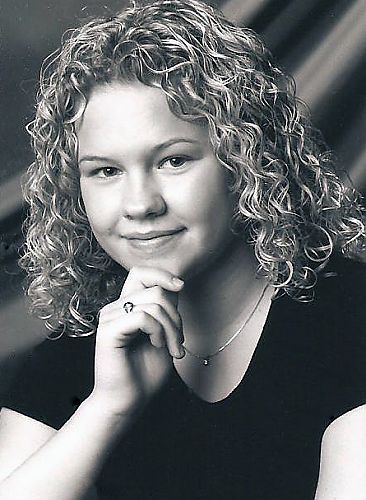
2009
Establishment of the Michael J. Hudson Emerging Opportunities Endowment in honor of MSU leadership and in recognition of Dr. Thomas and Ellen Maleck’s daughter’s service to her country in Operation Desert Storm.
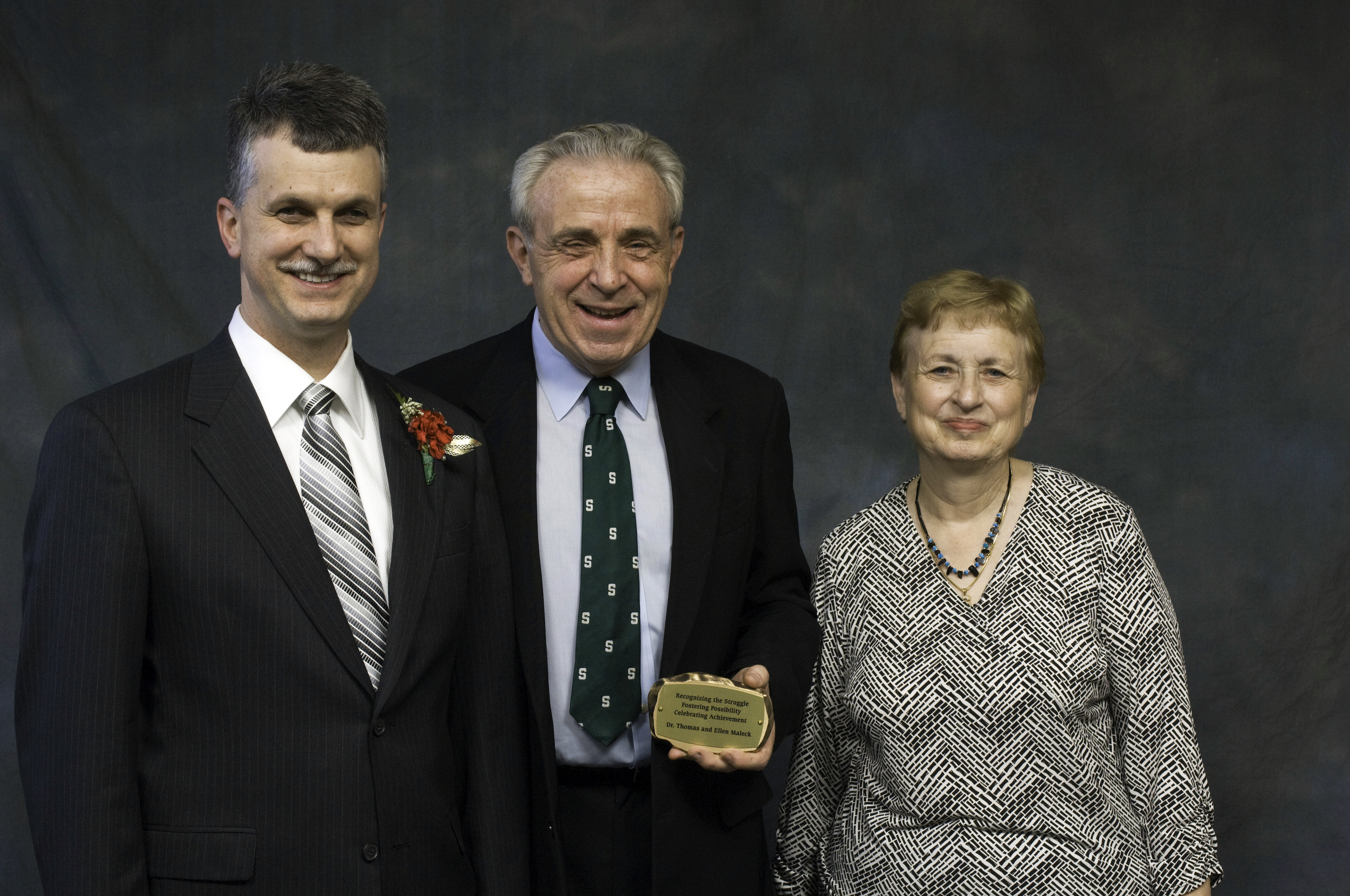
2009
The MSU Web Accessibility Policy was finalized and activated. This was the culmination of many years of effort which began at the RCPD in the 1990s to articulate the importance of web accessibility.
2009
RCPD begins initiatives to maximize our appeal to disabled youth by the introduction of new video capabilities to the website including a new RCPD video gallery that features accessible playback controls and on-demand integrated captions demonstrating the feasibility of accessible video technology in compliance with the new MSU Web Accessibility Policy. We released our first video to create a sense of welcome for families and students: Watch RCPD @ MSU.
2009
Crohn’s and Colitis Student Initiative (recently renamed Gastrointestinal Disorder Student Initiative; GDSI) MSU students were approached by the Crohn’s and Colitis Foundation of America to initiate a student group in the Lansing Area. The group will provide advocacy, support, social events, and initiatives relative to increased awareness around the topic of gastrointestinal disease and disorder both on campus and in the East Lansing community.
2009
Computer-based technologies expanded to include Apple Macintosh equipment as this platform is increasingly inclusive of universal design concepts that make the platform increasingly attractive for persons with disabilities.
2009
The RCPD, working with the microlab task force team and the Accommodating Technology Committee, refined blueprints for new microlabs to include a motorized height adjustable workspace, adjustable monitor arm, and document scanner for use with assistive reading technologies in each new lab space. Similarly, the Department of Chemistry worked with RCPD staff to increase accessibility in their labs including accessible laboratory tables and screen reading and magnification technology.
2010s
Jan 2010
RCPD worked with Shell Corporation to assemble a group of high achieving students with disabilities studying in select majors of interest to Shell to attend a workshop that helped to build connections and provided direction for students preparing for a range of technical careers.
Spring 2010
RCPD received a large contract from Adrian College for production of a sizeable Braille math textbook.
2010
Real-time captioning begins to be completed remotely. RCPD collaborated with Academic Technology Services to wirelessly connect the notebook computer of classroom users who are deaf or hard of hearing to a remote real-time captioner at the RCPD – a change from real-time captioners sitting immediately adjacent to the end user in the classroom.
2010
RCPD shifts to a new initiative increasing outreach and service to students and community members with Autism and Asperger’s Syndrome. RCPD created a program of expanded resources for students with Autism Spectrum Disorders via organized social outings intended to both promote student growth while building bridges between students and helping families realize expanded potential for K-12 students with these conditions. The program will promote outreach to schools, families and Autism centered events which will serve as a beacon of MSU opportunity while ensuring our staff remains fully engaged in a broader community network of possibility.
2010
The Carlson Accessible Media Program (CAMP) begins to provide resources in support of e-book and Braille availability, subsequently promoting ongoing leadership in this area. Portable book players were purchased allowing students to benefit from a highly mobile reading solution.
2010
The Building Opportunities for Networking and Development (BOND) program became operational with expendable gifts from Julie Wolf of Grand Rapids and proceeds from an existing MSU relationship with the Baldwin foundation. The partnership extended programming to students and community members with Autism Spectrum Disorders (ASD) and Asperger’s Syndrome by providing staffing assistance by a graduate student in Rehabilitation Counseling and specialized events intended to facilitate skill development in social and communicative areas affected by ASDs.
2010
RCPD completed promotional videos showcasing ability at MSU, which were broadcasted to over 30 million homes via the Big-Ten Network.
2010
The Carlson Accessible Media Program (CAMP) continues to provide resources in support of e-book and Braille availability, subsequently promoting ongoing leadership in this area. RCPD purchases an Apple iPad which represents the latest technology in accessible textbook availability in a mainstream device. That device is on display in the Assistive Technology Center as a demonstration and evaluation center for students, faculty, and staff.
2010
A new accessible minivan is added to the MSU fleet of rental vehicles. This acquisition came following RCPD leadership, networking and awareness-raising of the need for such a vehicle. Historically, those requiring such capacity were required to instigate a long-distance connection with a rental company in the Detroit area. The new minivan was purchased by MSU Automotive Services and can transport two wheelchair users simultaneously.
2010
Veterinary Medicine worked with RCPD staff to increase accessibility in their labs including accessible large-screen microscope technology.
2010
Staff worked with numerous campus entities to facilitate accessibility in online offerings including: core campus resources (www.msu.edu, Enterprise Business systems, mail.msu.edu, vpn.msu.edu), content management systems (ANGEL), and an emerging replacement for the aging ANGEL CMS system.
2010
Assisting listening device quality and availability are improved in venues from the Breslin Student Events Center to classrooms.
2010
RCPD nominated Matthew Carbary for the MSU Student Employee of the year award. His sustained and passionate effort as a student employee helped hundreds of RCPD registered students gain insights into how assistive technology could help them overcome aspects of their disabilities. Matt modeled many positive attributes as he challenged other students with disabilities to reach for their dreams despite disability. Matt’s story of success despite multiple disabilities is inspirational to many at MSU. While the nomination was originally intended for the MSU Student Employee of the Year designation which he received, MSU forwarded his nomination to the state of Michigan where he was awarded the state honor during spring semester 2010.
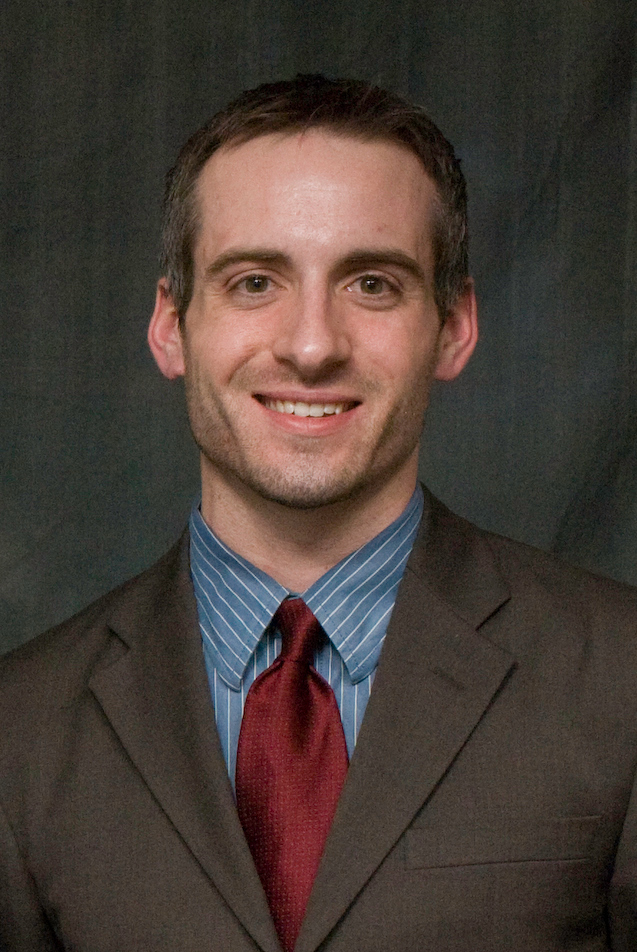
Spring 2011
RCPD experiences changes to their organizational reporting lines, retaining three administrative linkages including two under the Provost (Associate Provost for Undergraduate Education, Dean of the Graduate School) and one under the Vice-President for Student Affairs and Services.
Spring 2011
RCPD designed, programmed, and implemented a new scholarship system, serving as a gateway for online applications and reference letters, allows committee review and scoring of applications, and facilitates team scoring and recipient selection processes.
2011
The collaboration with the electrical and computer engineering (ECE) program brought four new accessibility projects including: a smart grid ready automatic wheelchair battery charger that helps an MSU employee charge a wheelchair during times of lower energy cost, a ribbon cutting machine which helps a Michigan small company employee who is blind reach new levels of workplace productivity, iDOCENT (indoor Digital Orientation Communication and Enabling Navigational Technology) allowing indoor location tracking, and a robotic arm and joystick control interface that enables a quadriplegic user to operate a robotic arm and perform tasks independently.
2011
RCPD Staff began interactions, including advisement, with a new student organization called To Write Love on Her Arms to help MSU students dealing with issues of depression, addiction and suicide ideation.
2011
The GastroIntestinal Disorder Student Initiative; (GISI), with support from RCPD, met routinely to plan workshops and activities around the needs of those with these conditions.
2011
RCPD provided internship opportunities for future professionals including a masters candidate in Student Affairs Administration and Rehabilitation Counseling.
2011
The Council for Students with Disabilities (CSD) initiates a cross-campus effort to place Braille labels on soft-drink machines.
2011
RCPD furthers partnership with the Learning Assessment Program and the MSU Psychological Clinic – to simultaneously promote ability and success among MSU students and supports the training and development of graduate students in clinical psychology. RCPD funded a Graduate Assistant liaison to the MSU Psychological Clinic.
2011
RCPD co-hosts a Fulbright Scholar, a blind student who spent a year at MSU teaching in the Less Commonly Taught Language program of Arabic.
2011
RCPD establishes the Explorations in Ability activities to foster awareness of student needs and subsequently address pertinent topics. This program is designed to encourage new innovative initiatives targeted at expanding capacity in our students and campus partners. These initiatives welcome staff and students alike to dream up and test new concepts of programmatic service.
2011
RCPD advances social media involvement, including departmental representation on Twitter and Facebook to allow for rapid updates for connected students and prospective students.
2011
RCPD staff and students dedicated an accessible laboratory table at the new Secciah Center in Grand Rapids in memory of Yvonne Tarala, a CHM student who used a wheelchair but passed away before graduation. This mobile table will be available across campus to aid students requiring accessible wet lab space.
2011
RCPD’s nominee for the Alumni Association’s Distinguished Young Alumnus Award was presented to Aaron Scheidies. Aaron’s story of academic, athletic and personal growth at MSU and beyond is noteworthy and was showcased by this formal awards program.
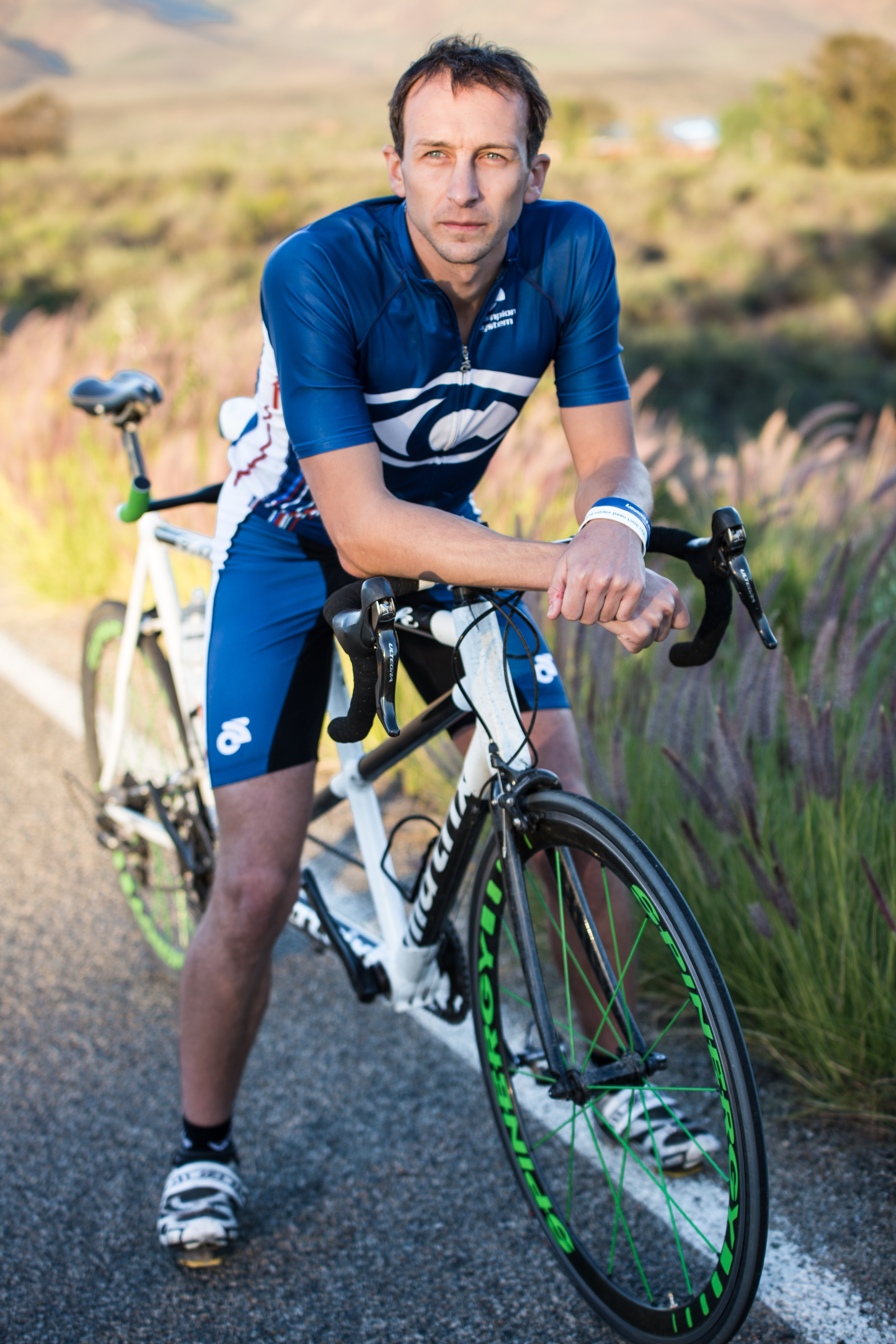
2011
RCPD participates in the accessibility review of the online instruction replacement to the ANGEL system, determining that Desire to Learn (D2L) was represented a preferred opportunity given their core value for accessibility and several advantages to that system over Blackboard.
2011
Project Venture was begun and invited high school students with mobility disabilities to visit MSU for a two-day one-night immersive college awareness experience.
Jan 2012
RCPD adds a Psychiatric and Autism Disabilities Specialist in response to growing populations in both areas.
2012
The RCPD website was fully redesigned and relaunched with greater adherence to university identity standards and with emphasis on addressing newer trends in online content including social media and greater cross-platform support including smartphones.
2012
The RCPD partners with EGR100 course and students focused on creating accessible human body models for use by students in a school for the blind in India
2012
The ANGEL system for online instruction was replaced by Desire to Learn (D2L). RCPD determined that D2L operates with a strong level of core value for accessibility, and this promises to position MSU favorably going forward into blended learning environments. RCPD staff continued collaboration with ITS, Usability and Accessibility Center, Office for Inclusion and Intercultural Initiatives, and the CIO to refine and implement policy and related standards to ensure online materials are constructed in the most favorable formats for accessibility.
2012
Dell computer featured the MSU RCPD assistive technology approach in a prominent online case study. This feature was accompanied by staff participation with Dell at conferences including Educause.
2012
The RCPD, working with the computer lab task force team and the Accommodating Technology Cafe, refined blueprints for new technology labs including motorized height adjustable workspaces, adjustable monitor arms, assistive listening devices, and document scanners for use with assistive reading technologies in new spaces.
2012
Collaboration between RCPD, OIII and Athletics brought routine on-screen captioning to Breslin and Spartan Stadium. This advancement aided patrons who are deaf or hard of hearing during sporting events, commencements, and other large-scale activities by providing real-time captioning capacity to those in attendance.
2012
Assistive listening systems were added to halls/theaters in the Auditorium building.
2012
The Broad Art Museum opened. Shortly after the grand opening, RCPD was called in to consult on programmatic access issues that arose from public complaints that this new facility and programming was inaccessible to persons who are blind. Staff reviewed the facility and programming and met as part of a cross-unit team to identify solutions for greater accessibility.
2013
RCPD student intern generated 2 captioned video productions for the RCPD website showcasing best practices for the RCPD VISA document from the unique perspectives of faculty and students.
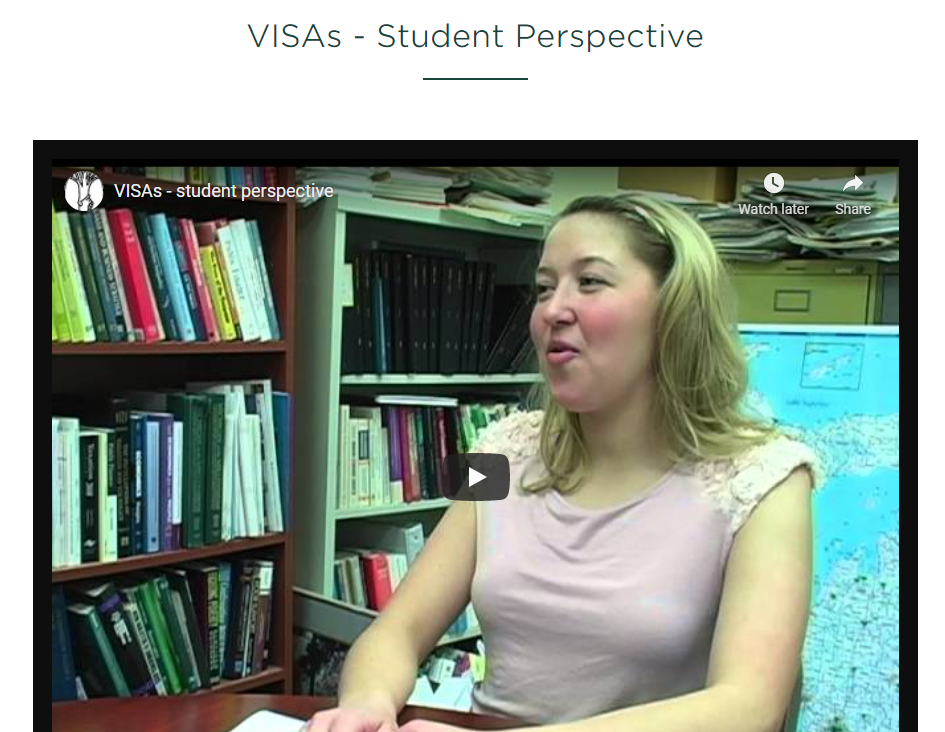
2013
The RCPD partners with EGR100 course and students focused on creating prototypes of potential voting controls as part of a grant project to improve the abilities of people with hand dexterity issues to vote.
2013
Establishment of the Spirit of Ability Award, illuminating contemporary contributors and leaders who create environments of opportunity and advance today’s inclusion efforts.
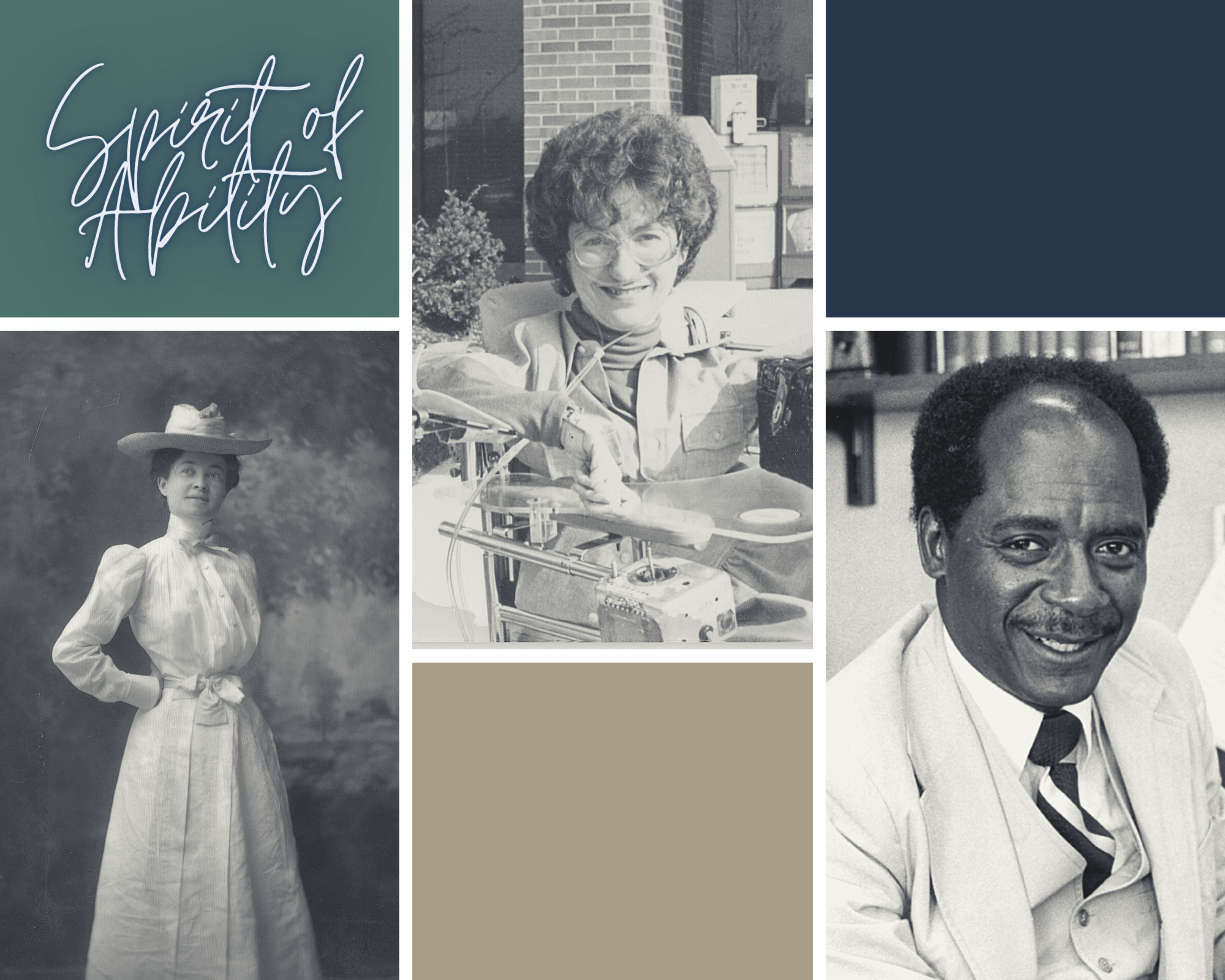
2013
The Outstanding Alumnus award in partnership with the MSU Alumni Association was refreshed as was the Student Leadership and Service Award.
2013
Mike and Kathy Bosco provided a noteworthy new resource to advance progress in career development for students with all disabilities but with special focus on autism issues. RCPD begins plans for a new program that will leverage these resources with state and federal partnerships to bring a vocational rehabilitation counselor to campus.
2013
MSU removes the final remaining traffic circle at MSU at the intersection of Bogue and Shaw Lane. Contemporary audible/tactile signals were placed at this new intersection
2013
MSU completes many improvements to pathways around campus, including the installation of many new detectable warnings at street crossing and loading zones.
2013
RCPD jointly hosted a Student Affairs Administration graduate intern with Career Services, as part of a larger planning initiative building gateways for increased RCPD student engagement. This led to important new awareness and next-step planning to ensure our long-term goal of optimizing post-graduation results for students with disabilities.
2013
The Sorenson system is under consideration for replacement by a similar yet more advanced system by Purple Communications.
2013
RCPDs Explorations in Ability program inspired a modified professional preparation and dining etiquette series for students experiencing disabilities that are visible or have predominant effect on communication and social interaction. RCPD partnered with the Michigan State University Federal Credit Union, the MSU Career Services Center and the Kellogg Hotel and Conference Center to work with students who experience readily apparent disabilities (mobility, visual and hearing) in a formal dining experience to discuss the obstacles they face during this type of interview situation. Our focus was on what employers look for in dining interviews and how to be at your best during this process. We included other staff and professionals from the RCPD and the Career Center to act as discussion facilitators with the students. In addition to educating our students, an additional goal was to heighten the awareness of Kellogg Center staff and students who are still learning best practices when serving patrons with disabilities. Two such dinners were held with great success, and our second expanded to include students identified on the Autism Spectrum given their unique challenges with social interaction.
2013
RCPDs Explorations in Ability program inspired direct work with a student who was both non-traditional and a war veteran and helped this student with time management and short-term goal setting to accomplish the requirements of an “Incomplete.” Without direct action, this student would not have experienced success and would not have graduated from Michigan State University.
2013
RCPDs Explorations in Ability program inspired the discussions on if residential dining halls were adequately serving students with both severe disabilities and those with chronic health issues. This led to onsite visits, interviews with chefs, and organized meetings to identify challenges and potential solutions to issues including low lighting, tray-free dining, gluten-free menu choices and other important nutrition information sharing. A smartphone-based mobile application was explored as we seek to increase availability of information about dining hall nutritional information as well as increased access to physical navigation across campus.
2013
The 2013 World Dwarf Games hosted by the Dwarf Athletic Association of America were held at Michigan State University. This event brought over 1,000 people to campus to participate in competitive athletics by dwarfs including several MSU students and alumni. MSU student, Jeffrey Astrein, competed in basketball and volleyball at the games.
2013
RCPD refreshed a range of printed, virtual and office decorative elements ensuring vivid visibility of our mission, team identity, and award opportunities. Upon entry into the office, visitors are greeted with a clear visual identity of our office role of fostering ability and opportunity which continues throughout the suite of offices.
2013
RCPD partnered with Michigan Rehabilitation Services - Business Network Unit, to provide an educational and “employment ready” class for students and employees with hearing loss, called The Kooser Program. This program welcomes individuals affected by hearing loss and a friend or partner to a multi-session seminar on technical, psycho-social and community aspects of adapting to and excelling with hearing loss. This program was featured in a WKAR radio interview.
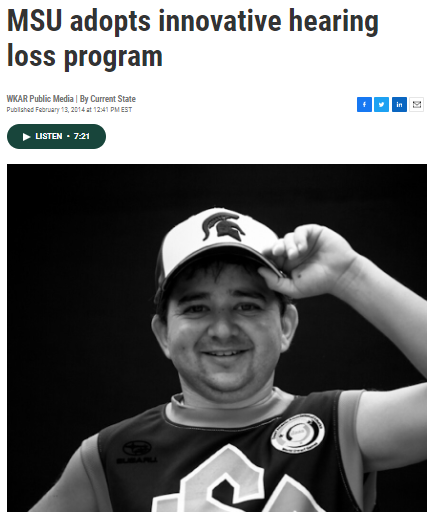
2013
Governor Snyder appoints an RCPD staff member to the Board of the Michigan Bureau of Services for Blind Persons, furthering our public vocational rehabilitation partnerships.
2013
RCPD hosted 2 interns at the master’s level from Student Affairs Administration, 2 master’s students from Rehabilitation Counseling, and a high-school student from Upward Bound.
2013
A voting joystick is created at MSU through a partnership between RCPD, the MSU Usability and Accessibility Center, and the College of Engineering with funding from a small grant from the National Institutes of Standards and Technology (NIST) and the Information Technology & Innovation Foundation (ITIF) to explore and demonstrate solutions for greater accessibility in voting by people with physical disabilities. This project resulted in an invited staff presentation on the topic in Washington DC at the annual National Institute of Standards and Technology conference.
2013
Several pedestrian intersection upgrades were conducted in partnership with MDOT making numerous crossings between MSU and East Lansing accessible via audible/tactile signals, detectable warnings, and wheelchair friendly crossings. Of special note this year were intersections including: Harrison mid-block at Kellogg Center, the Beal Entrance at Michigan Avenue, and Hagadorn at Grand River.
2014
Establishment of the Shawn M. Koch Memorial Scholarship. This program offers financial support for students directly impacted by cancer.
2014
Establishment of the Victor Troubalos Scholarship, created to enhance opportunities for students with learning disabilities.
2014
The dedication of the Morrill Hall plaza provided the first showcase of an MSU designed accessible kiosk at the request of President Simon. This was the first accessible kiosk project RCPD completed as a part of campus web accessibility initiatives.
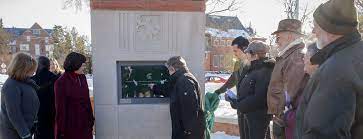
2014
RCPD began work on creating a smartphone application for providing spoken directional clues for campus navigation with funding from the Persons with Disabilities Empowerment fund. This application will positively affect the way students with mobility-related disabilities discover and navigate campus.
2014
The RCPD partners with EGR100 course and students focused on creating many 3-D models of mathematical and scientific figures from a physics textbook for use by a blind student. The capstone ECE 480 course extended into actual hardware designs for a working 3-D printer, a refreshable tactile display (award winner), and a third project demonstrating an electronic beacon for identifying proximity of objects.
2014
RCPD Assistive Technology Specialist serves as faculty advisor for MSU Unmanned Systems, a student group of engineering students. This group is involved in several philanthropic projects: (A) To prevent death and disability from landmines this team has created a minesweeping robot (EOD (Explosive Ordnance Disposal) Robot). 20,000 people are killed and more are being disabled every year by landmines. (B) The team is consulting with several powered wheelchair users who hope to employ automatic piloting systems helping them navigate both inside and outside. (C) The team is building equipment to assist participants in adaptive sports, including faster walkers with mounted and ruggedized cameras for recording the action. This team participated in the SAE Aero Design East 2014 competition, placed 10th (Internationally) in the Design category under Micro class, 11th under the Design Report category (Surpassing experienced universities).
2014
RCPD streamlines all disability documentation forms to provide greater clarity and accessibility in our forms helping students, employees and medical professionals document disability ahead of a needs assessment and accommodation determination.
2014
The Alex Powell Great State Race was established in the memory of Alex Powell, an MSU student who passed away after his battle with cancer. This new tradition was created by family and friends to convey appreciation for everything RCPD did for Alex during his time at MSU, and to raise awareness and funds in support of our program. This annual event created new community between key sponsors including Army ROTC, Dean Trailways, the MSU alumni Association, Playmakers, and countless campus and community groups who came together to support the MSU and UM Army ROTC and Playmakers Ultra marathoners in carrying the MSU-UM game ball 64 miles from Ann Arbor to East Lansing. This event brings in fundraising for both UM and MSU disability services offices.
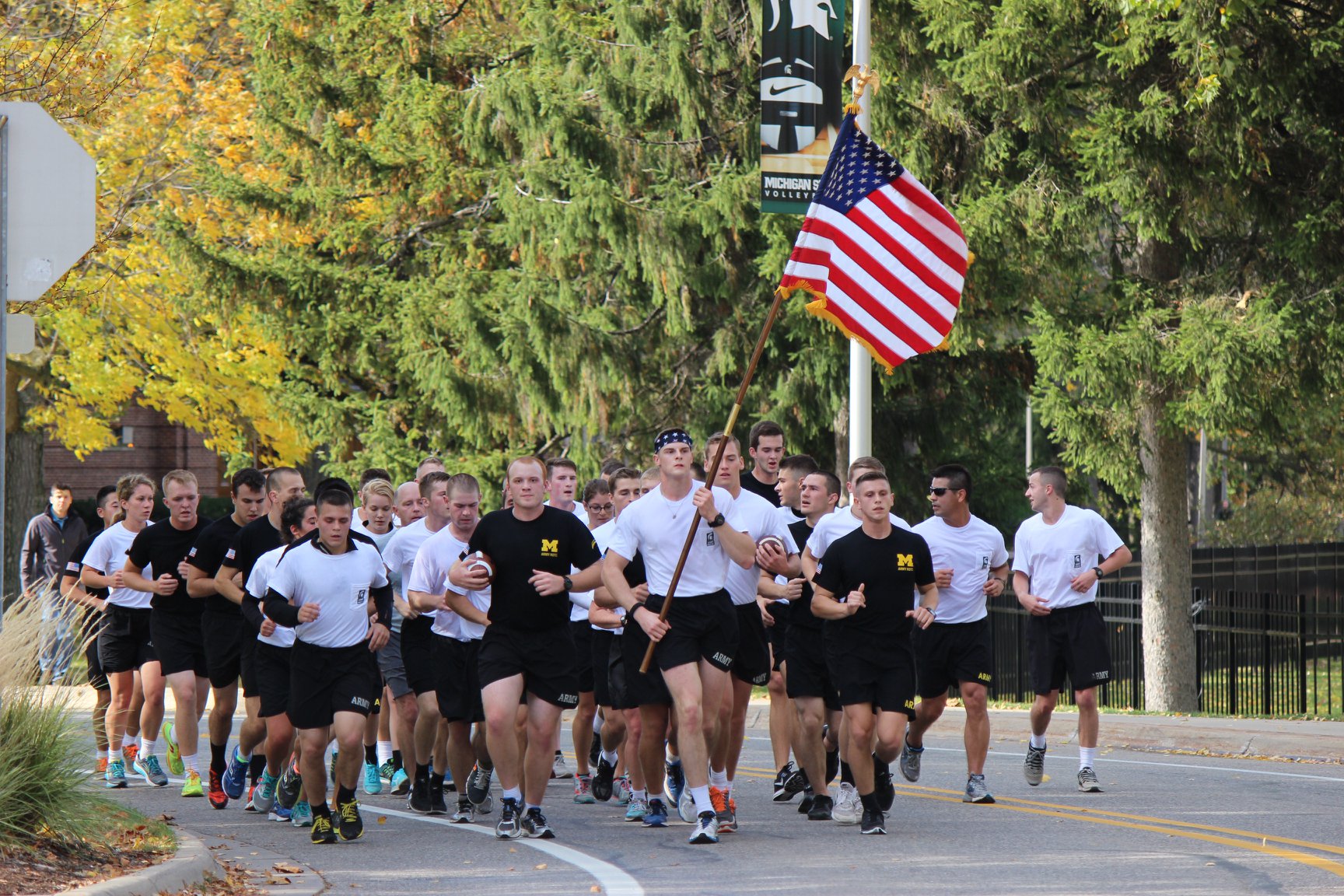
2014
The Bosco MRS-MSU Careers Collaborative was launched. Bosco family funding provided the resources needed for this partnership which brings a full-time Michigan Rehabilitation Services (MRS) Counselor to MSU. The collaborative is significant as a statewide and national model project where MSU students with disabilities can receive expedited registration with MRS, close collaborative career efforts between several programs, and exciting new synergies around career development for students with disabilities. The collaborative has begun to build MSU connectivity with employers including Meijer Corporation, Blue Cross Blue Shield of Michigan, and the MSU Federal Credit Union.
2014
RCPDs Explorations in Ability program inspired the technological effort to develop a specialized smartphone guide application for providing spoken directional clues for campus navigation. This will enable students with visual and navigational challenges to identify key attributes around campus. The app is anticipated to reach the Apple Appstore in 2015 enabling MSU to claim leadership in offering unique navigational aids to students with mobility challenges.
2014
The BOND program was further enhanced with a new program model to include a BOND Program Coordinator, the RCPD Autism Specialist, and engagement from enthusiastic student leaders to boost and expand program components, magnify the overarching impacts of the program. The BOND program has been uniquely positioned within a state pilot partnership between the RCPD, Michigan Rehabilitation Services (MRS) and the Career Services Network to maximize career outcomes for students with ASDs through the creation of a highly specialized Vocational Rehabilitation Counselor position, serving as a national model initiative. BOND participants have direct access to the individual services provided through this collaboration, as well as the opportunity to participate in soft-skill courses during the semester to prepare for future employment.
2014
RCPD staff served on the University’s Veterans and Disabilities Outreach Committee which was formed in response to new OFCCP rules, and best practices for federal contractor compliance with the Vietnam Era Veterans’ Readjustment Assistance Act and Section 503 of the Rehabilitation Act when recruiting and hiring veterans and individuals with disabilities. RCPD partnered with the newly formed Veterans Resource Center at Student Services by sharing knowledge and linkages.
2014
New Student Organization Spartan Spectrum interacts and receives advising by RCPD staff, this student organization regularly interacts with the BOND program culminating in an awareness and fundraising 5K attended by Lt. Governor Brian Calley.
2014
RCPD employs the neighborhood concept as a key element in providing services for students. This is a key element for our Autism Spectrum Disabilities and Explorations in Ability initiatives. Staff have started to hold special events and office hours in various neighborhoods where their students live to better serve student needs.
2014
RCPD modifies the design for alternative testing. RCPD uses 8 in-office testing spaces (and additional classroom locations when available during mid-terms and finals) for those with the highest testing needs. A memorandum jointly written by RCPD, Associate Provost Estry, and the Office for Inclusion was sent to all faculty, teaching staff and academic administrators during spring semester 2015 explaining key dynamics around accessible testing including a renewed request that faculty directly facilitate most testing accommodations within departmental testing spaces. The capacity of RCPD to administer tests has reached capacity and faculty are expected to serve as first line in meeting common testing accommodations of extended time and reduced distraction environments. RCPD proposes a new 2% concept for classroom construction standards to allow faculty to administer specialized or accommodated testing in or adjacent to the classroom.
2015
The RCPD partners with EGR100 course and students focused on creating many 3-D models of mathematical and scientific figures from a physics textbook for use by a blind student. The capstone ECE 480 course designed and implemented a fully functioning step and drop-off alert for an RCPD student with dual visual and mobility challenges. A second project continued efforts to pioneer an accessible insulin pump for diabetics who are blind or visually impaired.
2015
RCPD completes a safety and security review, with future considerations to include emergency panic button type devices, CPR training, first aid training, and potential incorporation of emergency defibrillators should be explored given the wide range of health issues manifest at a disability services unit.
2015
TLE funds enabled a full upgrade of computer workstations in the RCPD Assistive Technology Center, RCPD accessible textbook production areas, and Main Library Assistive Technology Center. The latest all-in-one Windows 8 touch screen computers offer large screens, speedy capacity, and a software suite that keeps MSU leading edge in assistive technology.
2015
RCPD staff collaborated with a student group called Exceptions and the Broad Museum to provide leadership and example of how leading museums like Broad can become accessible to people with disabilities. This collaborative event showcased technological strategies for describing exhibits via modern smartphones and audio recordings. Poetry and tactile art exhibits were created and displayed by students in two different classes.
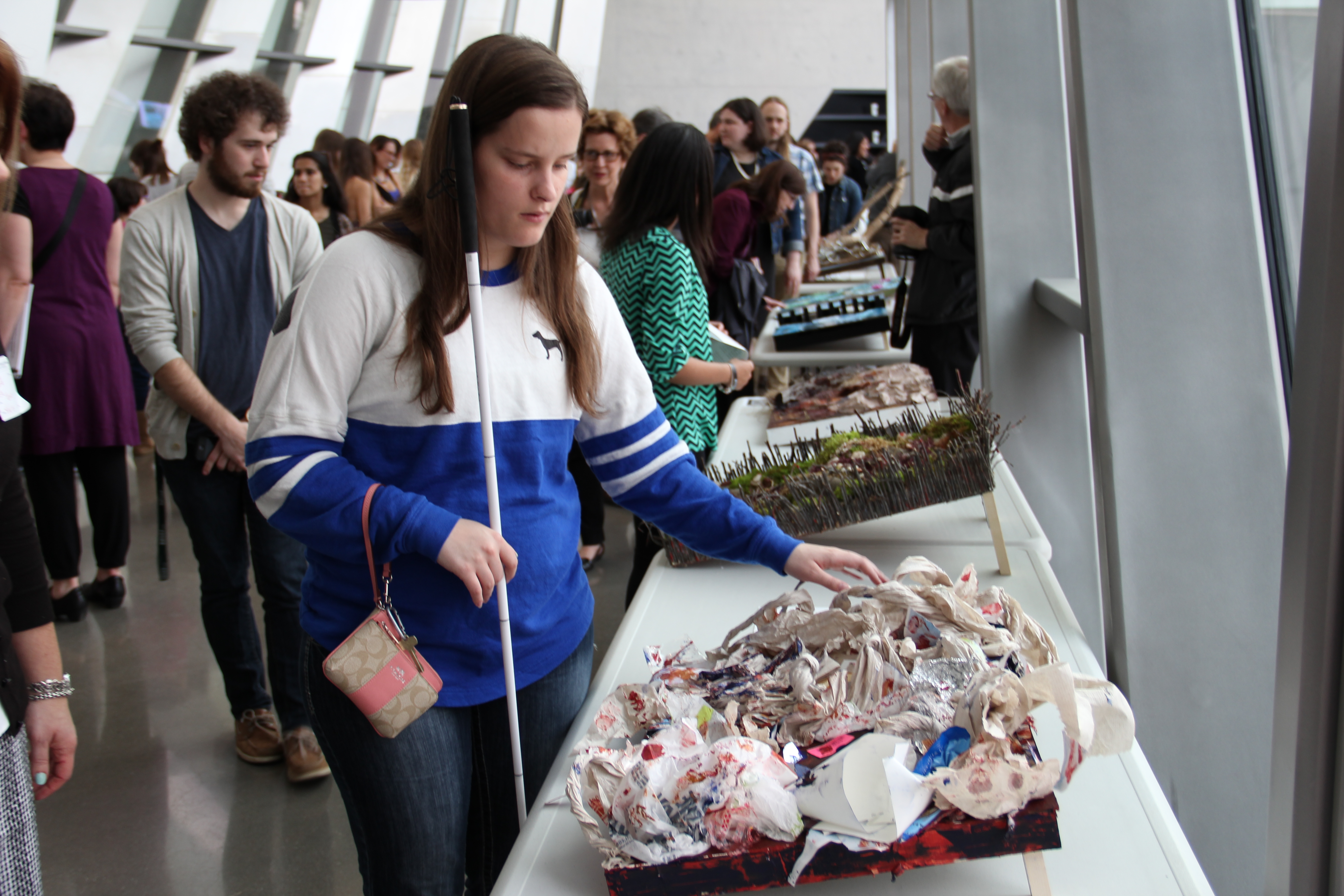
2015
Establishment of the Kindzierski Family Scholarship, created for those experiencing autism.
2015
The Disability in a Diverse Society study abroad program is paused while undergoing restructuring to address new opportunities in other geographic settings to entice a wider range of majors and additional students with disabilities.
2015
RCPD begins new initiative that brings middle and high-school students with significant visual impairment to learn about assistive technology and preparing for college
2015
RCPD sponsored the 24th anniversary celebration with the Capital Area Center for Independent Living (CACIL), providing on-stage time for RCPD to welcome guests and state our commitment to continued opportunity for people with disabilities through quality inclusive education.
2015
RCPD initiates new, intensive, and well-engaged student success coaching pilot program for academic year thanks to private funding support from the Tompkins family. The coach empowers students to refine self-concept and enhance performance by centering responsibility, goal-setting, accommodations implementation, and achievement into the hands of the student. The coach offers clear support, accountability, and acknowledgement as students take steps forward.
2015
RCPD provided advocacy in partnership with the Michigan Flyer service, to help improve accessibility in airports changed boarding locations that severely disadvantaged our students and faculty with mobility challenges. RCPD provided written commentary on this problem in support of requests for public comment and a federal lawsuit initiated by non-student community members.
2015
The MSU Guide app is launched in the Apple Appstore and it is favorably affecting the way students with mobility-related disabilities discover and navigate campus. This work was facilitated by an intern graduate assistant from Computer Sciences.
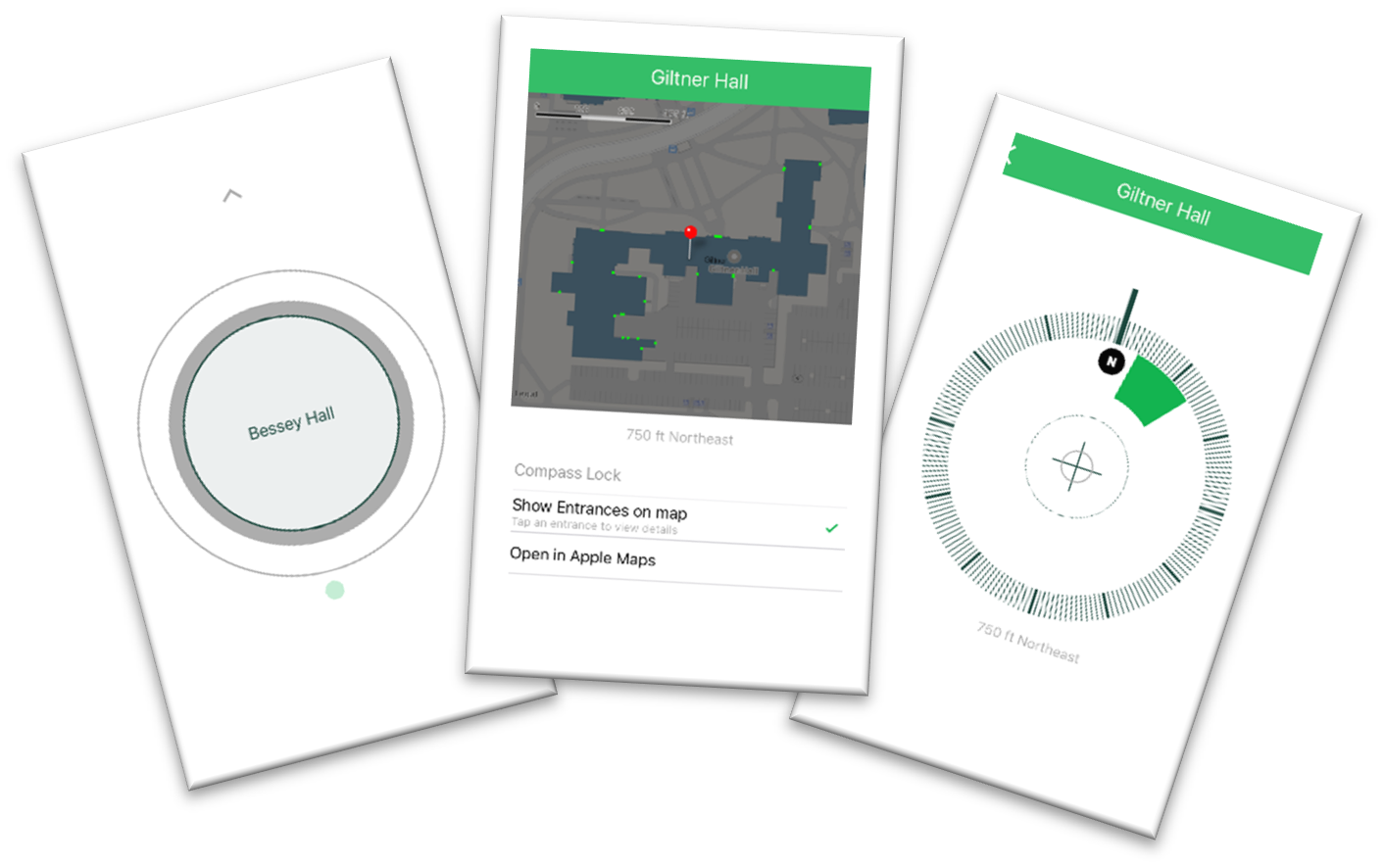
2015
RCPD specialist serves on the University’s Veterans and Disabilities Outreach Committee which was formed in response to new OFCCP rules, and best practices for federal contractor compliance with the Vietnam Era Veterans’ Readjustment Assistance Act and Section 503 of the Rehabilitation Act when recruiting and hiring veterans and individuals with disabilities.
2015
RCPD hosted a doctoral-level intern from Rehabilitation Counseling, to serve as disability specialist intern in support of our new student success coaching initiative.
2016
The RCPD partners with EGR100 course and students focused on creating many 3-D models of mathematical and scientific figures from a physics textbook making a highly visual physics textbook accessible thus aiding a blind MSU student. The capstone ECE 480 course designed and implemented a Precision Pointing Device for Blind Shooting Sports Enthusiasts Using Haptic Feedback. This project addressed specific needs of MSU students and a broader community participating with the Demmer Shooting Sports Center while providing excellent opportunities for senior engineers. The project allows blind participants to independently site a target at the center thus creating an inspiring new level of independence. Prior to this, participants relied on verbal feedback which was deemed less satisfactory for all involved. A second project, Low-Cost Wheelchair Motor, supported needs on campus and promised opportunity for an orphanage in India. Engineers developed a low-cost motor prototype that can be manufactured as an economic development project in India both promoting financial health and increased employment skill development. The project also engaged partnership with the Adapted Sports Club here on campus as they seek lower cost power wheelchair and power assisted bicycle options.
2016
Establishment of the Alex Powell Spartan Experience Leadership Endowment.
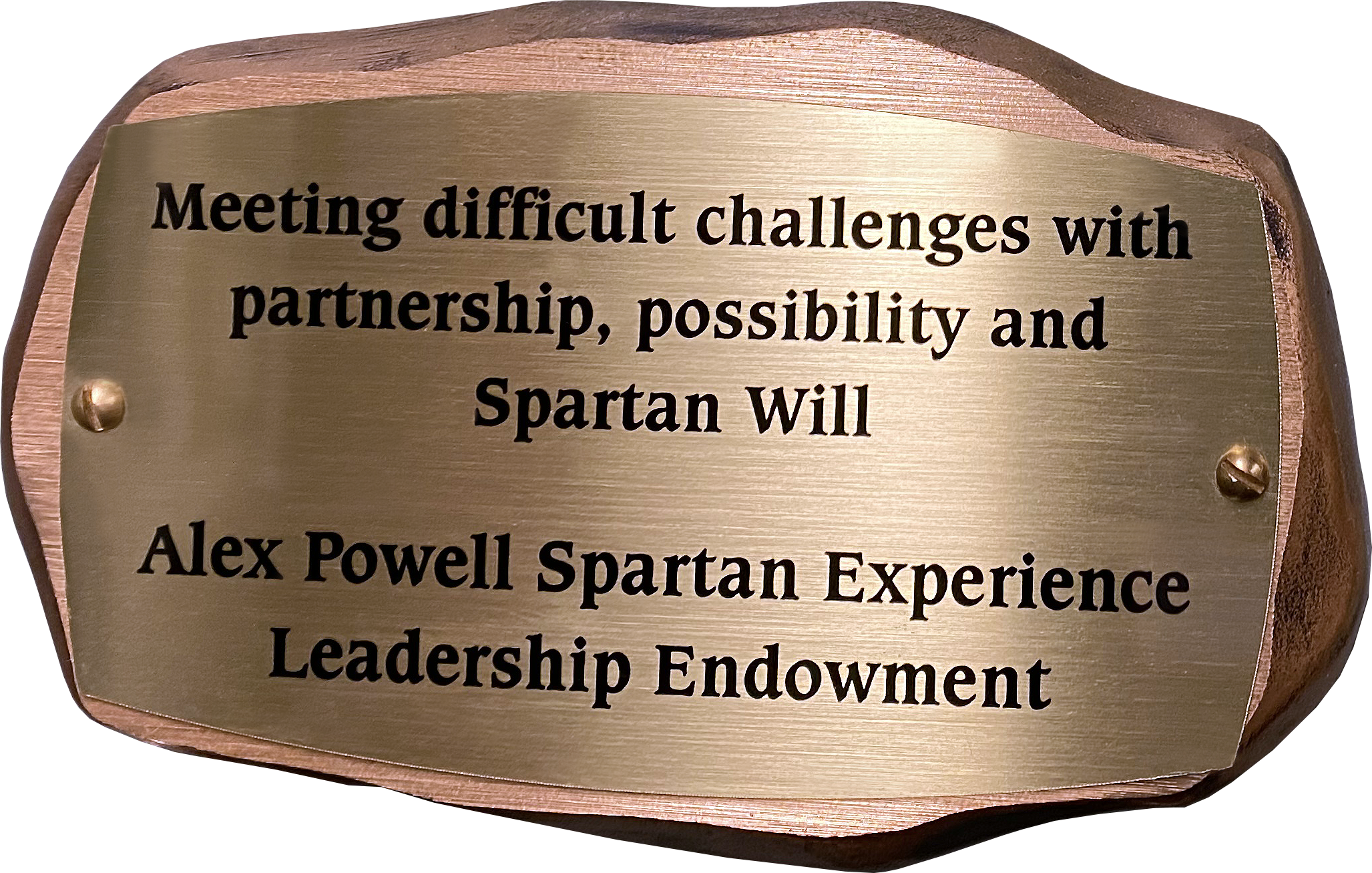
2016
RCPD sponsored a Michigan Disability Rights Coalition event which brought Michigan Supreme Court Justice Richard Bernstein, who is blind, to the Kellogg Center.
October 2016
RCPD received generous support from the Gilbert family. This gift, made in recognition of staff dedication, was named the Angela Sebald Ability Access Fund. This gift supported the creation of three new positions and redefined our Disability Specialists to Ability Access Specialists in support of student development and ongoing focus on ability. New Ability Access positions added to staff included (1) Ability Access Specialist - Accessible Media (books, maps, distance learning and partnership in Captioning/ASL coordination), (2) Ability Access Specialist - Chronic Health with Co-Occurring Conditions, and (3) Ability Access Specialist – Autism Spectrum, Brain Injury, and Learning Disabilities.
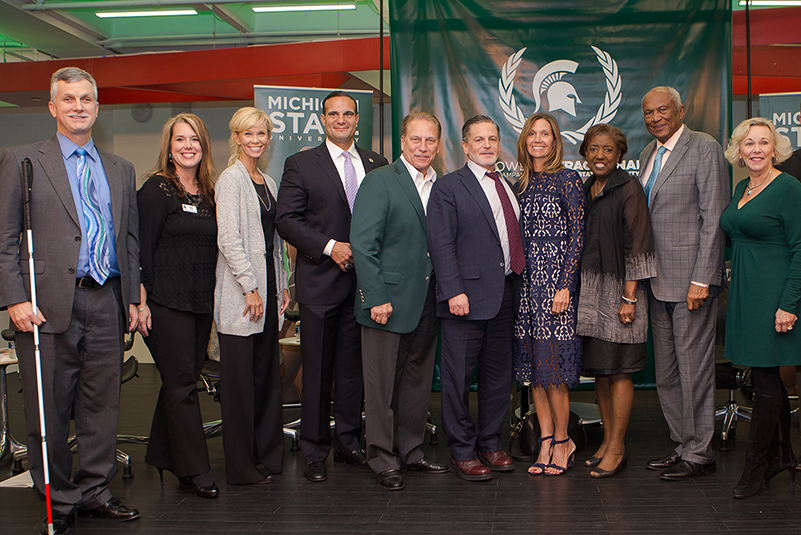
2016
A new specialist in psychiatric, autism and chronic health was added to staff.
2016
RCPD advances safety efforts for staff and students in the office by adding a remote door closure option to address potential needs to quickly and remotely lock-down the main office corridor.
October 2016
MSU welcomes 2016 Paralympic Cyclist and alumnus Aaron Scheidies back to campus for Disabilities Awareness month and MSU Homecoming. He presented his Road to Rio sharing his journey and emphasizing that disabilities need not preclude excellence in athletic endeavors.

2017
RCPD continues effort to engage faculty in directly facilitating most testing accommodations within departmental testing spaces through a new memorandum jointly written by RCPD, Associate Provost Chivukula and Dean Stoddart of the Graduate School. The capacity of RCPD to administer tests has reached capacity and faculty are expected to serve as first line in meeting common testing accommodations of extended time and reduced distraction environments.
2017
RCPD partnership helped Culinary Services receive a national award for allergy-friendly menus and dietary awareness.
2017
RCPD shifts to a new model of receiving departmental IT support from central Information Technology Services with our Assistive Technology Specialist responsible for managing departmental IT.
2017
The Careers Collaborative was awarded a grant from the Vice-President for Student Affairs and Services to help raise awareness of the program at MSU and with employers.
2017
RCPD Engineering Collaborative produced the following projects: (1) Precision Pointing Device for the Blind: This system enables a blind individual to point a gun or bow at the bullseye of a target in the distance. It is the first system of its kind to use pattern recognition rather than lasers, LEDs or black-and-white optical sensors. With the system a blind user could follow moving targets and a variety of different objects. ECE480 Student team members have continued to work together to improve the pointing device system. They have been issued a patent on the design and are working toward mass production. (2) MSU Adaptive Sports Hand Rowing Trike Propulsion Adapter: This Mechanical Engineering ME481 capstone design project will enable many individuals with a motoric disability to propel a tricycle using only a short range of physical motion. (3) Bionic Arm: This ongoing project in partnership with Dart Container has created several 3-D printed prosthetic limbs for an MSU enrolled student. We welcome our relationship with Dart Container engineers as they have enjoyed our collaboration.
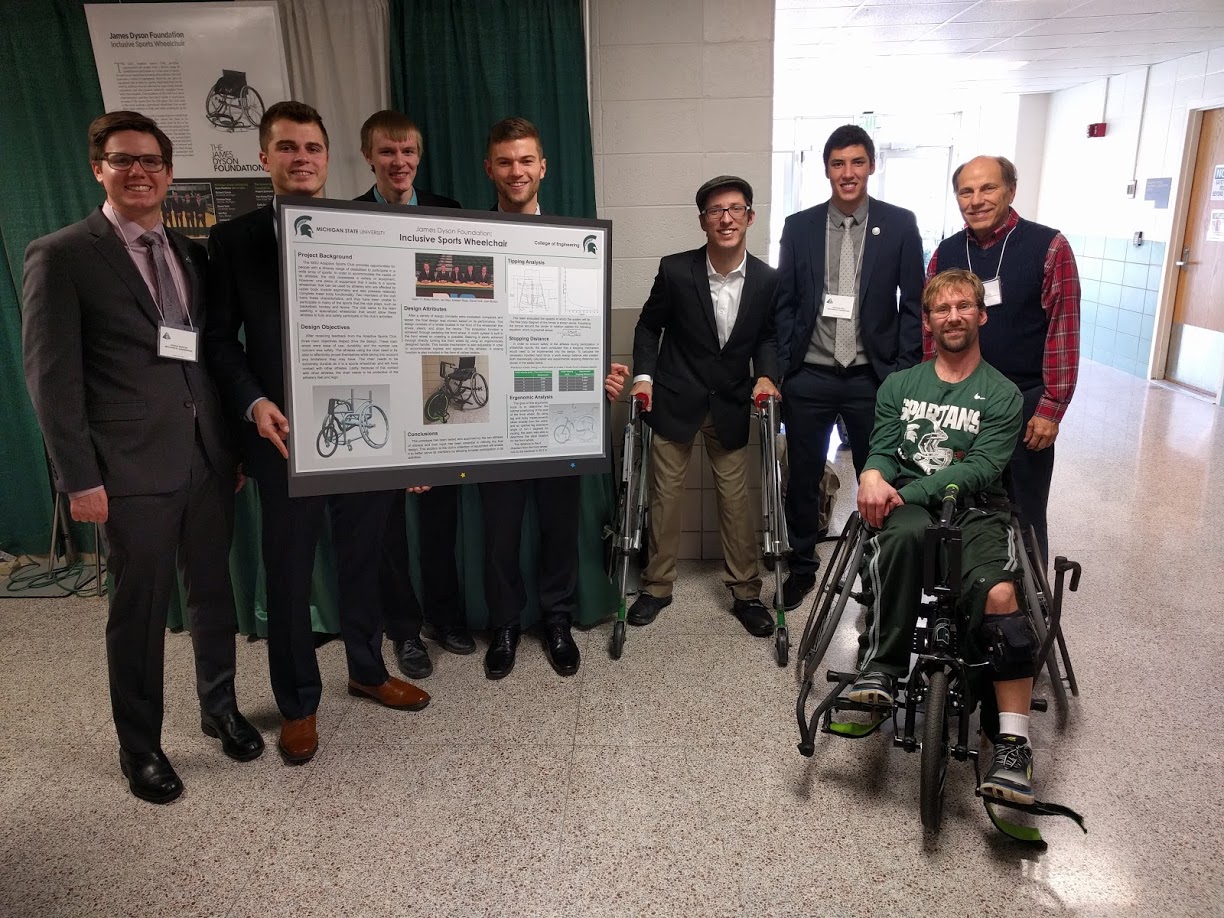
2017
The MSU Guide App project starts expansion through collaboration with the Capital Area Transportation Authority, MSU IPF, and MSU RHS to develop additional transportation and culinary services functionality.
2017
Campus-wide assistive technology software license oversight is transitioned from RCPD management to central MSU IT management.
2017
The Emerging Opportunities Endowment provided scholarship funds to facilitate a study abroad experience for a veteran with service-related disabilities
Fall 2017
The new Ability Access Specialist positions (for Accessible Media, Chronic Health with Co-Occurring Conditions, and Autism Spectrum, Brain Injury, and Learning Disabilities) are filled.
2018
Establishment of the Edith Moore Squires Vision and Resilience Endowment promising new resources to fuel innovation efforts. Edith was a proud MSU Alum who made a lifelong impact as a teacher of the blind and visually impaired in the greater Lansing area. Edith’s endowment will therefore fuel new programming to aid student awareness of what is possible while working to develop resilience toward optimal student outcomes.
2018
RCPD Engineering Collaborative produced the following projects: (1) Prosthetic “bionic” Arm: ECE 480 students redesigned one of the most expensive components of a 3-D printed bionic arm. This component, the actuator, uses a very low-cost lead screw and servo to open and close fingers in the prosthetic. This step will enable the production of body parts using 3-D printing technology in parts of the world where prosthetics are financially unfeasible. (2) CHE students and the MSU adaptive sports club created a hand rowing tricycle. These are used by paraplegics and students with other motoric disabilities. This project added a feature that was needed to help users propel backwards enabling them to turn or get out of corners independently. It supplemented other work also underway to make these vehicles easier for those with significant disabilities to board and deboard independently. (3) Solar and Wind Power Control System: CHE students developed a solar and wind power control system for a hospital and education Center in the remote wilderness of Haiti. This project is the first in a series of projects that will ultimately create a Resource Center for Persons with Disabilities on the OIH (Orphans International) campus in Haiti. A previous MSU RCPD student, Carlot Dorve, a PhD candidate at the University of Missouri, travels to Haiti frequently to assist students with disabilities there. Carlot is working with the RCPD seeking help with this project.
2018
RCPDs Explorations in Ability program inspired an Accessible Math Project. RCPD in collaboration with the College of Natural Science, College of Education, and Mathematics Department identified a need to close the gap in online STEM efforts. Coursework increasingly involves mathematical and scientific notation which represents enormous accessibility challenges for students who are blind or have certain types of learning disabilities. The team effort received funding through the MSU Creating Inclusive Excellence Grant to develop a web-based tool that makes math accessible via screen readers. It allows faculty to enter notation using common markup standards which are then processed by the online tool to generate accessible output. The application developed over the past year is a unique software application that converts mathematics into accessible formats. Using this tool, you can convert standard LaTex mathematical notation or create equations using the online editor. This tool then converts this content into MathML which can be read by most readers for the blind and text to speech applications for students with learning disabilities.
2018
RCPD partnered with the Digital Content Accessibility Team (DCAT) to facilitate their efforts to create accessible teaching content to make courses accessible for deaf students. The DCAT activated new live streaming services with live captioning now available by advance request. They also facilitate video captioning and transcripts.
2018
MSU Guide App developer Aditya was one of two Michigan university students awarded a prestigious Apple Corporation scholarship to participate in the Worldwide Developers Conference (WWDC) in celebration of his project submission for a prototype that allows screen-readers such as VoiceOver to be able to work with spatial content such as Virtual Reality or even sensors placed in a real room.
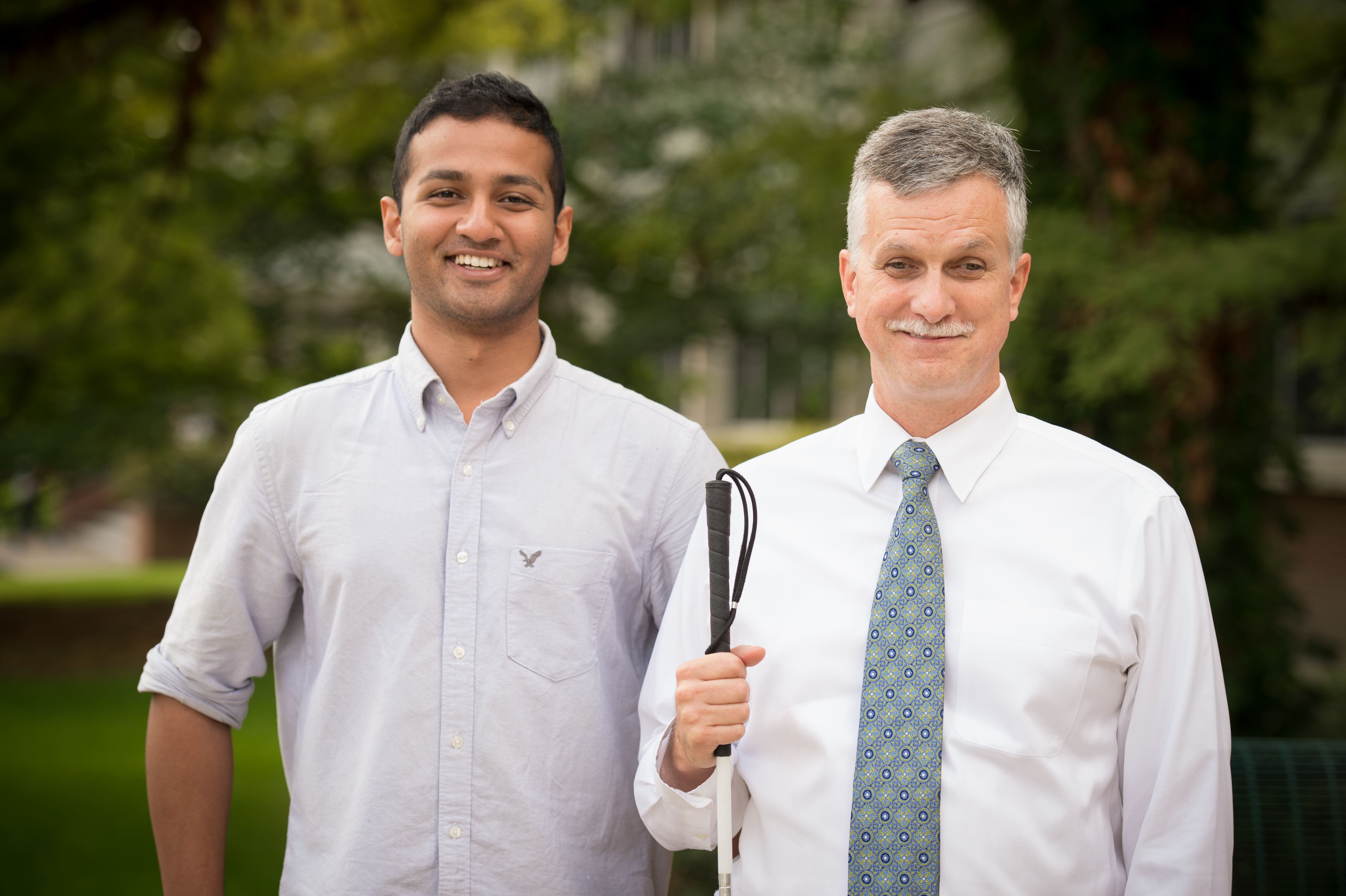
2018
The MSU Guide App project continues expansion through a new RHS and IPF project that seeks to create greater location and menu awareness for use in campus dining halls. The project employs augmented reality and multiple data sets to provide details about food options, venue selection and allergen issues.
2018
RCPD growth led to the Interim Associate Provost Largent and outgoing Associate Provost Chivukula to add another FTE position for a fourth Ability Access Specialist in the area of psychiatric disabilities.
2018
MSU creates a new position Accommodation Specialist housed in the Office of Employee Relations. This role will work closely with RCPD and serve as the final authority in accommodation communication and implementation for employees. This new employee accommodation process retains RCPD as a disability-friendly entry point for employees wishing to register a disability while employing HR Employee Relations for best practice in HR practices with departments.
2018
RCPD specialists develop a UGS110 course entitled Maximize Ability and Resiliency at MSU for incoming freshmen to provide a strong start at MSU with topics centered on health, wellness and resilience. This course was created with a drive for innovation, staffing from the Gilbert family, and potential from the Edith Moore Squires Endowment. It will help give first-year students registered with the RCPD a solid start at Michigan State University and increase student persistence into sophomore year. Finances, nutrition, and emotional wellness were just some of the pivotal areas of learning highlighted within the course.
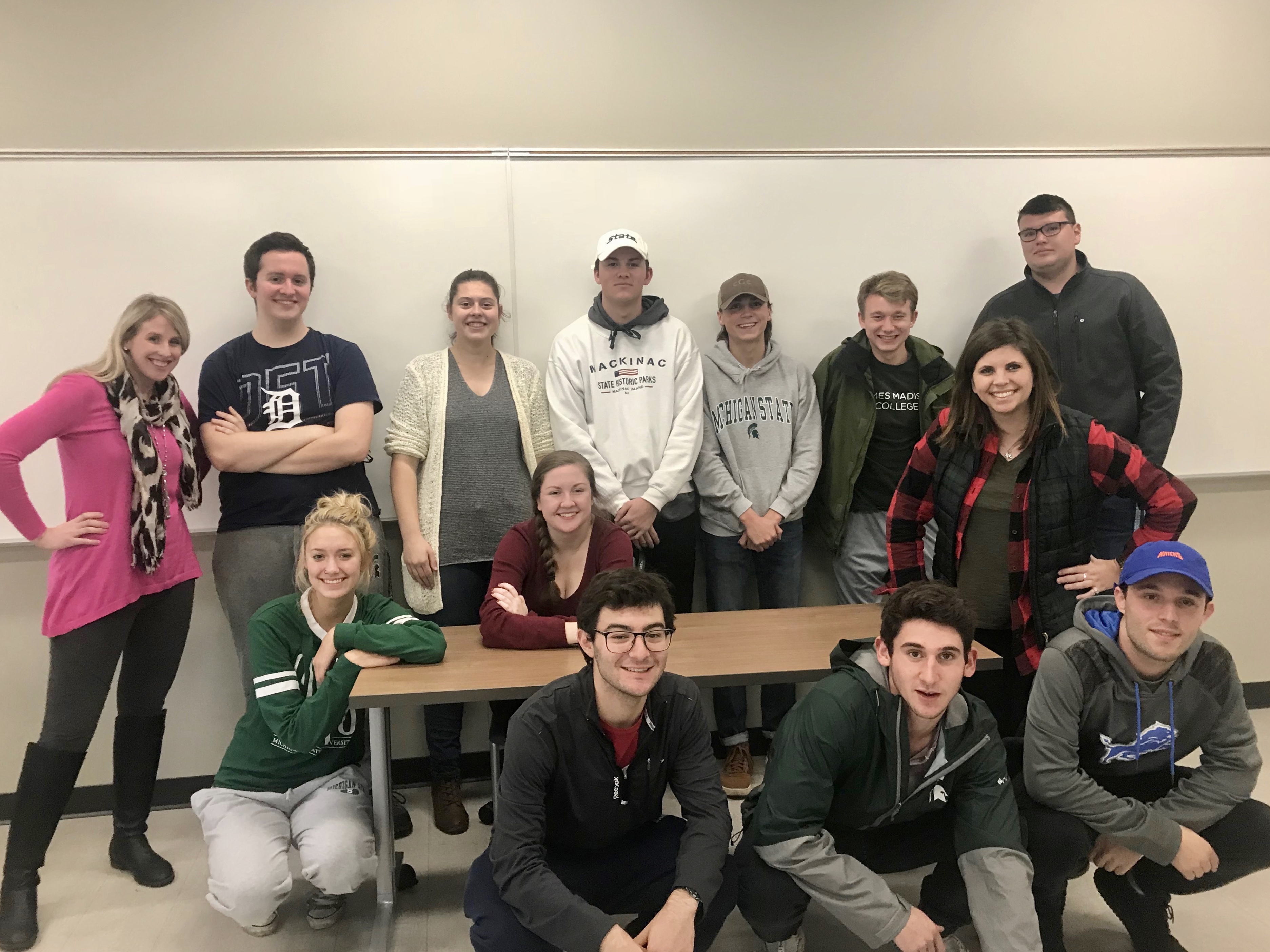
2018
Spartan Ties was established as a community effort to connect Spartans on campus – addressing the need shared by students to feel a connection to others on campus and build a community where everyone feels a sense of belonging. After hearing several student reports of eating alone for every meal, Spartan Ties was formed to closes this gap by connecting students from diverse backgrounds. The Spartan Ties program unites people with and without disabilities, creating friendships, exchanging ideas, and learning to leverage diversity for a common good. For students interested in spending time with old and new friends, weekly Spartan Ties dinners are held on different days at various campus cafeterias.
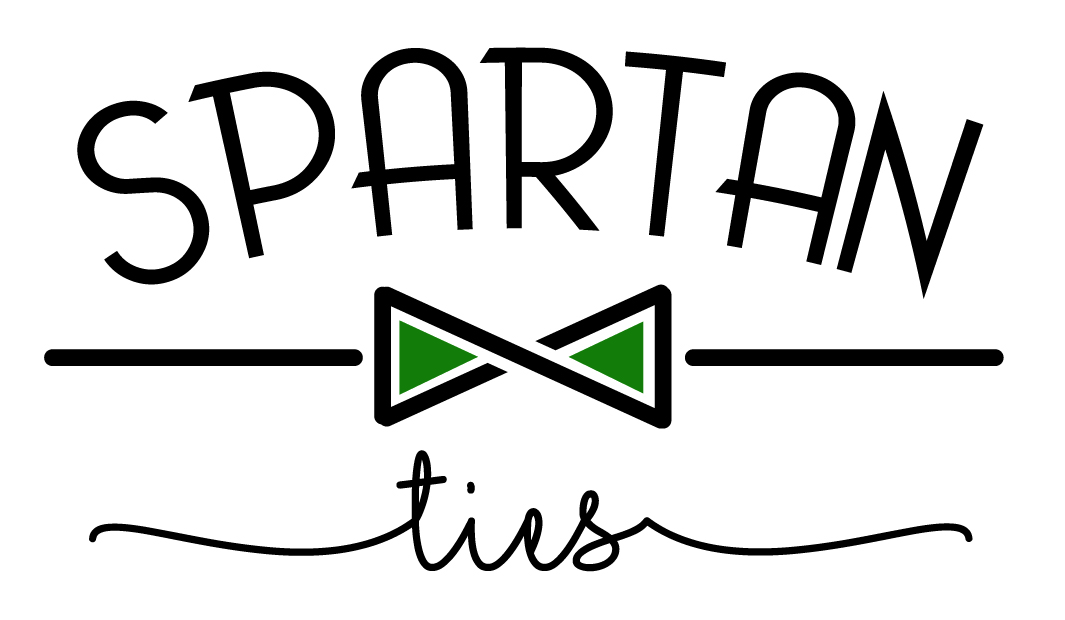
2019
Establishment of a new Trent Pysarchik Internships Endowment, offers a new seed to spur important internship advancements.
2019
RCPD partners with Kinesiology to advance adaptive sports offerings for those with physical disabilities and those wishing to learn more about adaptive sports by endorsing multiple grant proposals and fostering connectivity with student organizations (Council of Students with Disabilities and Tower Guard) to help ensure grassroots efforts in adaptive sports are visible and can grow. Endowments enabled us to help a veteran with physical disabilities further develop his identity as an athlete by sponsoring his trip to a US Tennis Association event for wheelchair tennis.
2019
RCPD partners with RHS to promote healthy dining and optimized living environments for those with significant allergies. Creation of allergen-friendly housing suites enabled students with severe allergies to meet others in similar situations and provided opportunities to gain opportunities to room with others sharing similar needs. This advanced sense of community and prevented several from living alone due to life-threatening allergies. Staff also worked closely with RHS Culinary leadership to advance allergen free dining in Owen Hall.
2019
RCPD partners with the Digital Content Accessibility Team (DigitalX) to facilitate their efforts to create accessible teaching content from the ground up.
2019
RCPD Engineering Collaborative produced the following projects: (1) production of a modified cycle for persons with motoric disabilities which supports efforts in the Adaptive Sports Club. (2) An accessible solar power pack for use in remote locations. (3) A project to alert blind pedestrians or bikers of oncoming traffic.
2019
RCPD drives Bessey Hall refinements, including updating restrooms, updating windows and exterior doors, and the initial planning for a new external gathering space.
August 2019
RCPD launched a new website, designed by Gravity Works of Lansing meeting contemporary needs, MSU brand standards, manageability, and contemporary support for mobile devices. The new architecture was constructed on the Drupal platform and is hosted on an externally managed server. The content and layout of the new site was developed in compliance with brand standards, best practice in accessibility, and a review of user history and preferences. The migration of former content involved a comprehensive review and revision of more than 200 pages of content from the prior site.
2019
RCPD’s social media and Ability Blog web content are invigorated.
2019
RCPD acquires and installs an Automatic External Defibrillator (AED). This makes RCPD the only unit in Bessey Hall to have this device. It promises to provide life-saving capacity should a sudden cardiac event happen in or near our office. Several staff received extensive all-day training in the device and all staff were familiarized with it during our pre-fall retreat.
Fall 2019
The RCPD Director was named by President Stanley to the DEI Steer Committee to emphasize disabilities as a vital part of the campus diversity planning efforts. This role will help to shape the future of DEI initiatives at MSU.
2019
Establishment of the new Runge Family Endowment for Learning Differences, which holds promise to further advance efforts for our students.
2019
MSU opens the new Thrive dinning facility in Owen Hall, providing students with allergen free dining options.

2019
BOND students participated in a new program to welcome new students to campus a few days early to allow them a chance to get settled into their new homes without the chaos that can accompany move-in week.
2019
TLE fund allocations refreshed RCPD Braille production capabilities with new embossers and sound dampening enclosures. New equipment including a contemporary multi-line electronic refreshable Braille display, an interpoint Juliet embosser, and an interpoint cut sheet capable Index Everest embosser provide improved speed, reliability, and flexibility for Braille embossing work at the RCPD. Each embosser was equipped with a sound dampening cabinet to allow these relatively noisy technologies to exist nondisruptively within the RCPD offices.
2019
RCPD provided graduate student learning experiences for 2 students in Student Affairs Administration as applied to our new student orientation and testing focus group efforts.
2020s
February 2020
RCPD was honored with the Lifetime Achievement Award for sustained effort in Diversity. That award was presented by incoming President Samuel Stanley and Interim Provost Teresa Sullivan after nomination by Associate Provost Mark Largent and Graduate School Dean Thomas Jeitschko. The award served to remind the community of our long-standing leadership in the field and provided RCPD enhanced visibility.
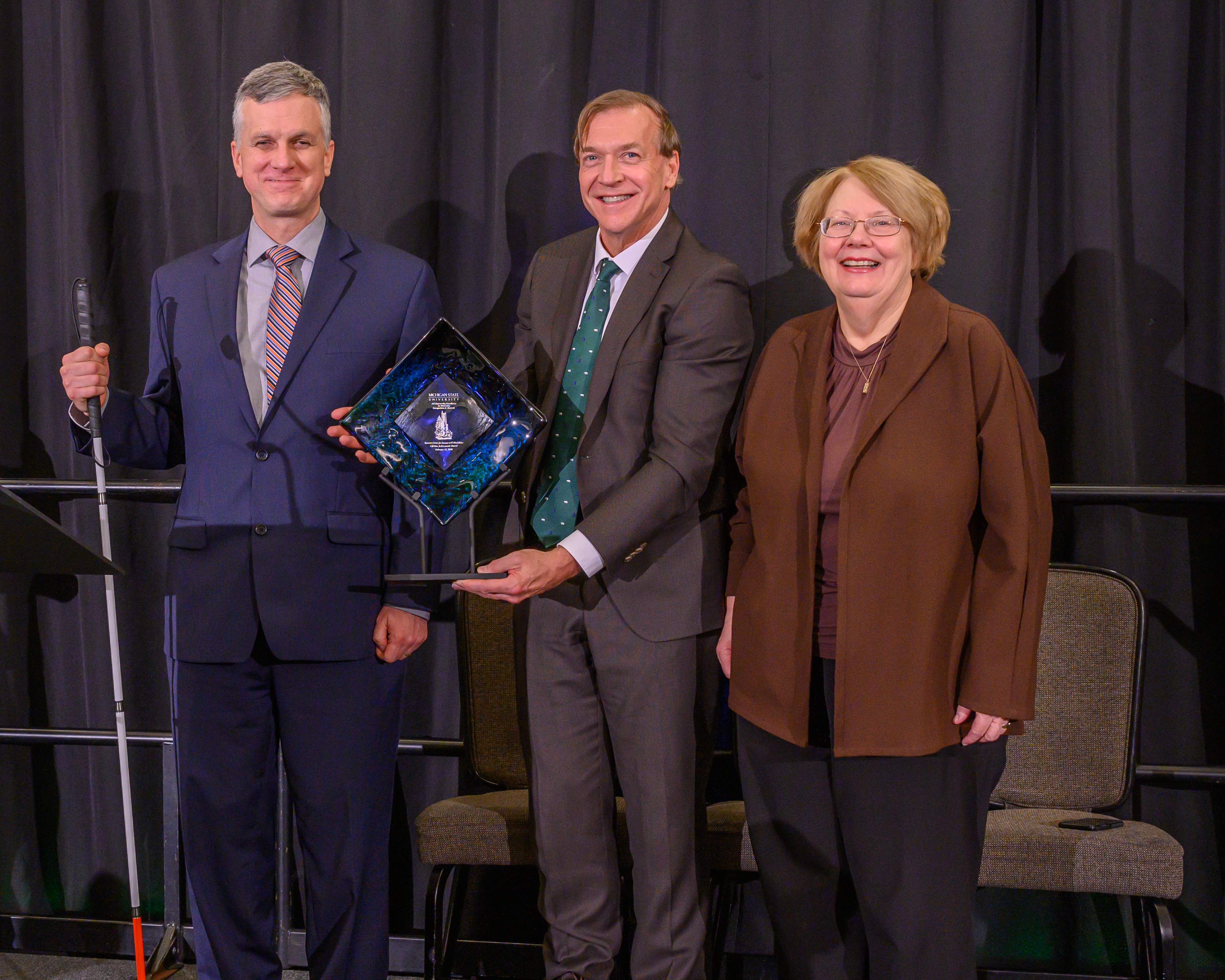
2020
RCPD established the position of Assistant Director for Assistive Technology Innovation to provide new synergies between the needs of students and the efforts of staff and faculty to ensure our increasingly technology-driven learning environments are accessible and designed inclusively. This role was proven to be instrumental as the 2020 Coronavirus pandemic transitioned the spring semester to online teaching and learning and helping MSU remain accessible during an unanticipated evacuation of campus.
March 2020
MSU became first University in the state to declare a dramatic shift from in-person classes to virtual learning in response to a rapidly evolving global pandemic of Novel Coronavirus COVID-19. With only a few days of contingency planning, a range of “what if” scenarios was quickly operationalized into a full transition to online learning. Staff of the RCPD worked to both process the risks and innovate to provide solutions intent on ensuring students with disabilities would continue to receive needed supports and partnerships. RCPD has long been centered on technological advancement and thus had a head start on the tools needed for service continuity. Our business continuity plan and solid staff preparedness quickly allowed us to deploy remote telephony solutions and multiple text/audio-visual portals with Microsoft Teams and Zoom. Our captioning team were exemplars of readiness thanks to their multiple year head start on remote processes as they were leaders in innovating to provide remote captioning using a range of distance education tools for deaf students before that skill was essential. Our team packed up their technologies and went to work remotely on March 11 honoring the time-tested traditions of Spartans intent on solving the world’s toughest challenges.
2020
RCPD staff partner with APUE to dramatically transform campus-wide New Student Orientation (NSO) from an in-person experience to a fully online program
2020
RCPD launched a new iOS app called Munch. Designed at the RCPD in partnership with MSU Residence & Hospitality Services and MSU Infrastructure Planning & Facilities, Munch can help students and employees find food and menus across campus, make informed decisions about what to eat based on disability and health concerns, and connect with the Spartan Ties group. *This app is no longer in use/up to date.
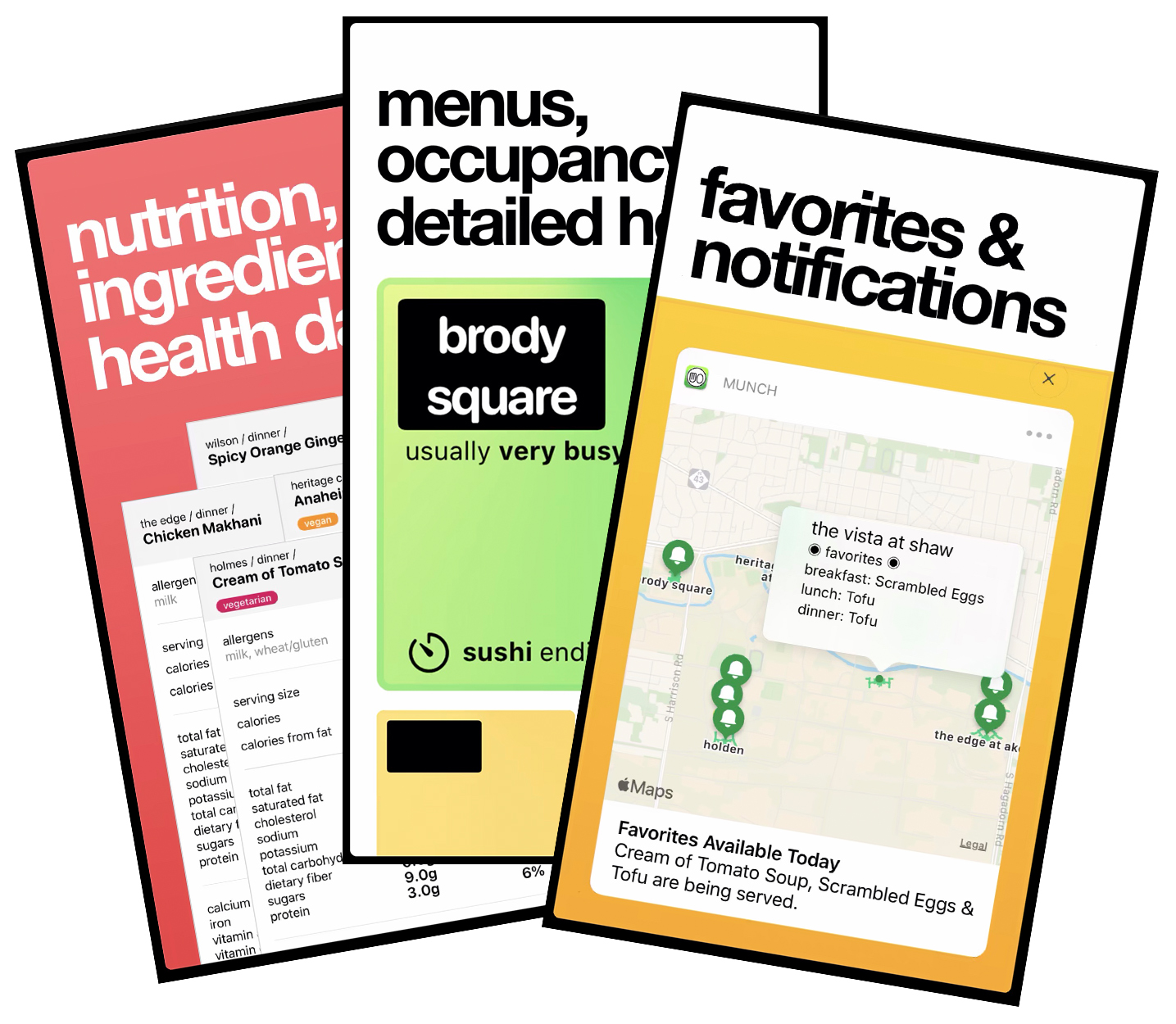
2020
RCPD partnered with Piotr Pasik of Kinesiology to advance adaptive sports and recreation offerings for those with physical disabilities and those wishing to learn more about adaptive sports by endorsing multiple grant proposals and fostering connectivity with student organizations including Council of Students with Disabilities and Tower Guard to help ensure grassroots efforts in adaptive sports are visible and can grow. In spring 2020 RCPD support for Piotr Pasik’s funding request to the Christopher & Dana Reeve Foundation was rewarded with a $24k grant to expand adaptive sports with provision of new accessible equipment. This builds on the recent remodel of Demonstration Hall which now features a most accessible home base for these activities.
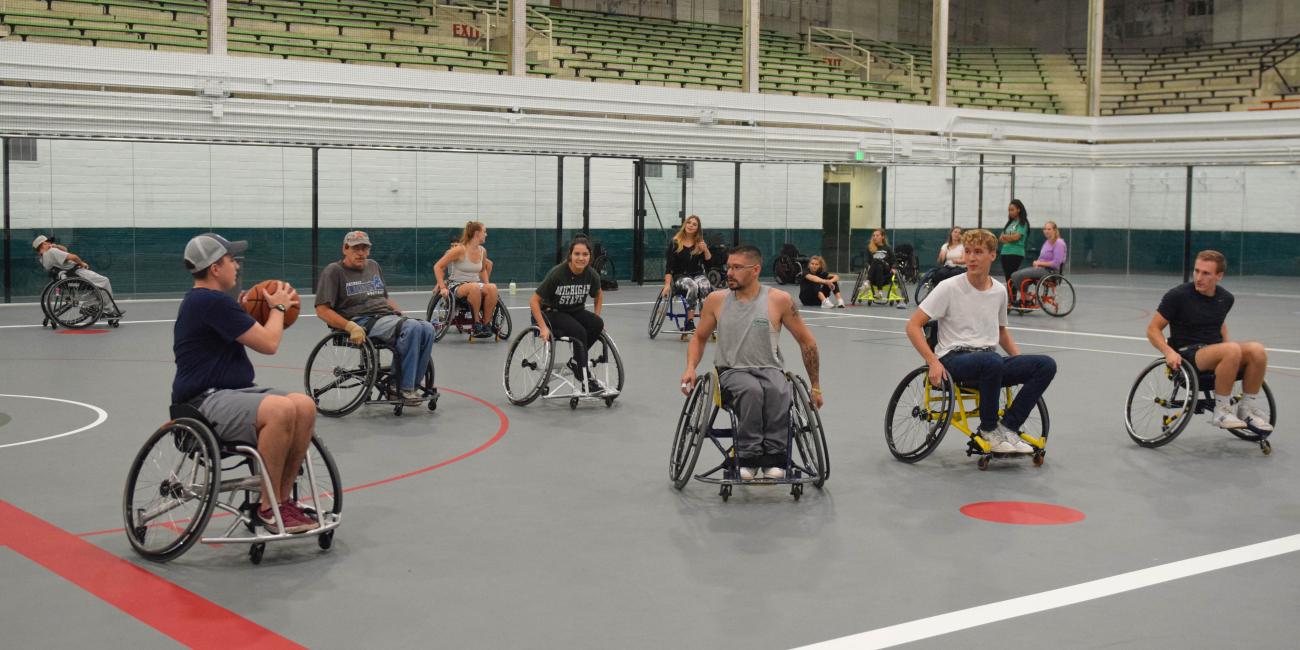
May 2020
MSU was recognized with a 2020 Best Allergy Innovation Award from AllerTrain™ for allergen-friendly dining.

Fall 2020
A new Bessy Gathering Space was established as a joint partnership between RCPD and IPF/Campus Parks and Planning. The space provides a respite and opportunity for many Bessey units to create a new outdoor welcome, study, and lecture space. A Braille and large print inscription on the bench reads: “RCPD, Maximizing Ability and Opportunity, Building Community, Growing Success" and commemorates our role in promoting ability and establishing opportunity.
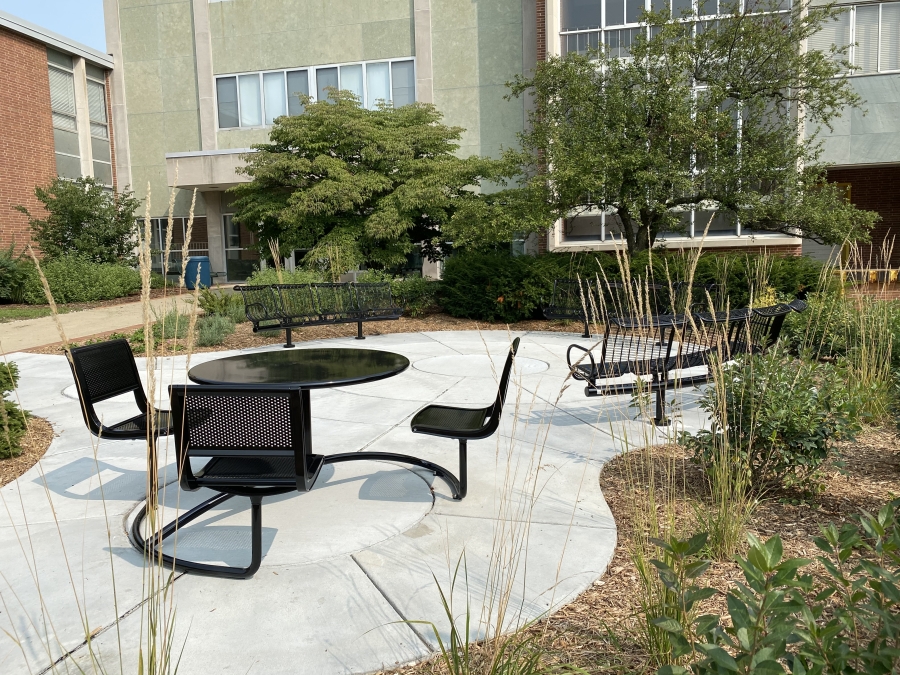
2020
A partnership with Facilities Planning is outfitting Bessey Hall and the new STEM facility with a product called GoodMaps which is a smartphone-powered system to enable those with disabilities to navigate the interior spaces of buildings more effectively by providing verbal and spatial guidance as a phone is pointed around an open space. MSU will be the first university in the world to deploy GoodMaps and that will further highlight our work in STEM accessibility.
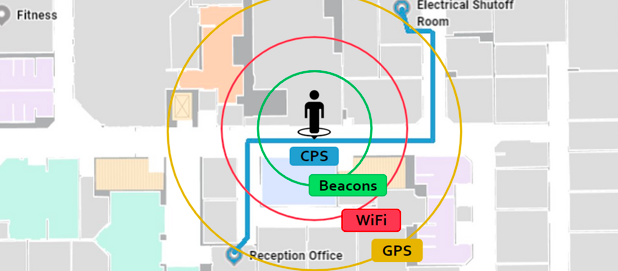
Fall 2020
Improvements made in the office including new carpet and paint in the Assistive Technology Center, mini conference room, and several offices/workspaces. New LED lighting was installed throughout the suite as part of an IPF energy-efficiency plan. Updated waiting room chairs were also installed to address highly worn furniture in that space.
2020
RCPD partnered with student Leah Ellis to produce a prototype learning and notetaking system known as the Futures Collection. It applies knowledge gained from her own experiences to guide students to become better note takers. Funding from the Emerging Opportunities Endowment helped her launch her business and make the first run of learning materials. These materials were piloted with students in the STATE Program and were sold through the Student Bookstore. RCPD was honored to help Leah transform her ideas into a realized entrepreneurial outcome.
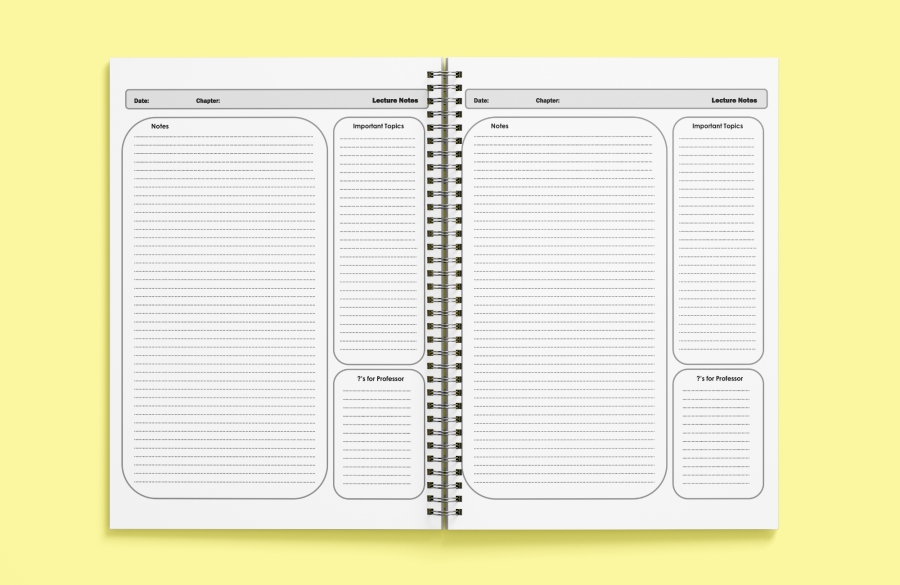
2020
RCPD purchased a Pictures In a Flash (PIAF) machine that provides high-contrast tactile diagrams.
2020
RCPD completed full integration of the College of Law with MSU. Formerly, this college managed its own disability deliberations. RCPD integrated the students and employees with disabilities into our existing service model consistent with other MSU Colleges. Team RCPD serves the needs of those with disabilities by disability specialization with coordination from the College of Law Liaison who provides expertise around law school processes.
2020
RCPD Engineering Collaborative produced the following projects: (1) an Applied Engineering Science (AES) team worked on a project to provide advanced alerts to blind pedestrians of motorized scooters – an identified safety hazard to blind pedestrians when they encounter then unexpectedly abandoned on pathways. (2) A mechanical engineering project produced 25 modified hockey sleds for persons with disabilities supporting efforts in the Adaptive Sports Club. (3) The Intelligent Defense System project produced a portable LIDAR system to detect approaching objects to protect blind pedestrians and bike riders. (4) a power system for powering assistive technology devices where no electricity is available.
2020
RCPD plays an important role on the MSU Keep Teaching team and ensuring accessibility was at the forefront of discussions and plans. RCPD hosted live webinar trainings for faculty and staff about considerations that should be made for students with disabilities, implementing RCPD disability accommodations in an online setting, and how to make sure remote classes are accessible for all. These webinars were recorded and made available for future access on the keepteaching.msu.edu website.
2020
MSU develops a new faculty training program called SOIREE (Summer Online Instructional Readiness for Education Excellence). This program was a 1-week intensive training that covered a wide range of important topics to train faculty on how to design and deliver online courses. RCPD ensured accessibility and universal design was a major component.
2020
Audible and tactile pedestrian signals received campus-wide upgrades
2020
RCPD redesigned elements of the Gilbert-Sebald Ability Access Specialist positions. The Media Access Specialist role has been redesigned and will be replaced by a new Leadership Development position. This new approach will shift that staff focus from purely direct provision of media to a model where we facilitate Tower Guard leadership in contemporary access needs. RCPD beings to redirect energy toward empowering students with disabilities to increasingly prepare and produce their own accessibility solutions by teaching them to use existing technology tools, releasing new accessible document tools in D2L, and by equipping incoming Braille readers with new refreshable Braille displays via the Braille Technology Advantage.
2020
RCPD begins work to modernize data systems used to manage student and employee accommodations including client self-identification, accommodation determination, accommodation reporting, accommodated testing, volunteer management, accessible books delivery, and reporting for investigatory processes are core to our work.
2020
The STATE Program was able to partner with the Runge Endowment to provide optional, additional academic coaching for students who wished for increased support. Coaches provided an opportunity to allow students to engage in additional study strategies, discuss campus resources, and build community during the pandemic.
2020
Improvements to the Assistive Technology Center were completed, including the replacement of computers with a mix of new Dell PCs and Apple iMacs. TLE funds also allowed for the purchase of a campus wide license to Equatio, assistive technology software that allows for easier production of accessible digital math. One of the big assistive technology initiatives this year was the Braille Technology Advantage Program. This program provides Freedom Scientific Focus 40 Blue refreshable braille displays to blind students. Having this device allows greater access and opportunity as students can have more immediate access to braille materials, without the additional challenges of paper braille printing, delivery, and transportation. Other advancements in braille technology for RCPD included the purchase of a Canute 360, a multi-line braille e-reader, which displays 9 lines of braille. This braille technology is the first of its kind and will provide unparalleled access to materials that would be challenging to read on traditional braille devices, such as math, science, tables, and music. Other exciting advancements in assistive technology are a partnership with Microsoft to receive Microsoft Surface devices to showcase notetaking technology possible with Microsoft OneNote. The Carlson Accessible Media fund also allowed the purchase of several Livescribe smart pens to increase assistive technology options for notetaking. These notetaking technology efforts are part of a new Notetaking Technology Advantage program designed to improve students’ success with notetaking through the use of technology.
2020
Tower Guard adapts a new model under the guidance of the new Leadership Development Ability Access Specialist. This new model uses impact teams intent on meeting challenges, building awareness, and using a Gilbert Family entrepreneurial spirit to evidence new levels of leadership.
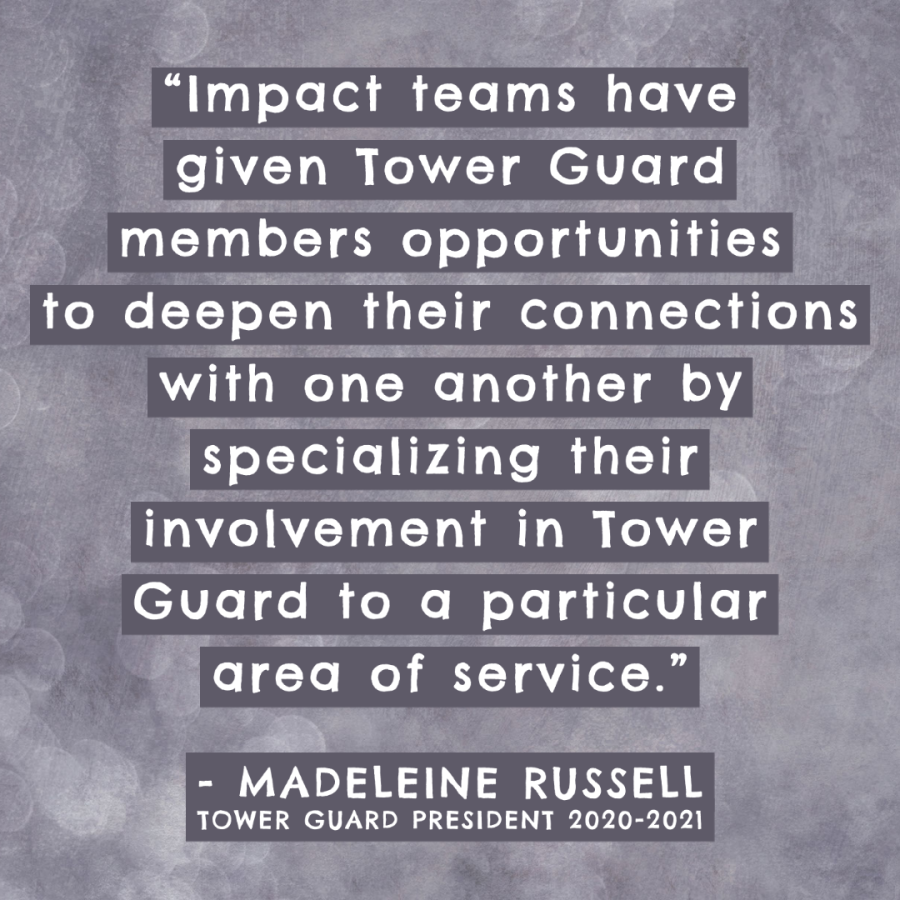
2020
RCPD launches the Alex Powell Great State Race Gratitude Campaign since pandemic measures precluded an in-person race. The campaign reconnected us with more than 650 past donors and sponsors, sending the most loyal supporters an additional paper-based Gratitude Statement. This campaign focused on Alex, his story, and the essence of his spartan experience. The campaign also featured collaboration between the RCPD, and U-M’s Services for Students with Disabilities as created and nurtured through this event. Finally, beneficiaries of AGSR-funded efforts shared personal stories of impact, ensuring sponsors and donors saw outcomes through the Alex Powell Spartan Experience Leadership Endowment.


2020
Leadership from RCPD in cooperation with other regional entities saved the accessible, reliable, and affordable transportation service between East Lansing, Ann Arbor, and the Detroit Metropolitan Airport. RCPD unified communications, helped establish meetings with government officials and ultimately helped this entity receive emergency funding to survive the pandemic when it was initially omitted from pandemic recovery funds eligibility. Thousands of Spartans benefit from this service with extreme value for international students and those with disabilities.
2020
Careers Collaborative publishes a Whitepaper identifying challenges faced by students, particularly students with disabilities, in the current learning and service environments during the COVID-19 pandemic.
2020
RCPD initiates the Braille Technology Advantage, born out of pandemic-related difficulties delivering paper Braille, this first of a kind program evidences national leadership by providing a refreshable Braille display to each new student who reads Braille. The program facilitates timely production of critical reading materials while encouraging students to grow in their technological sophistication which will provide expanded career and life opportunities.
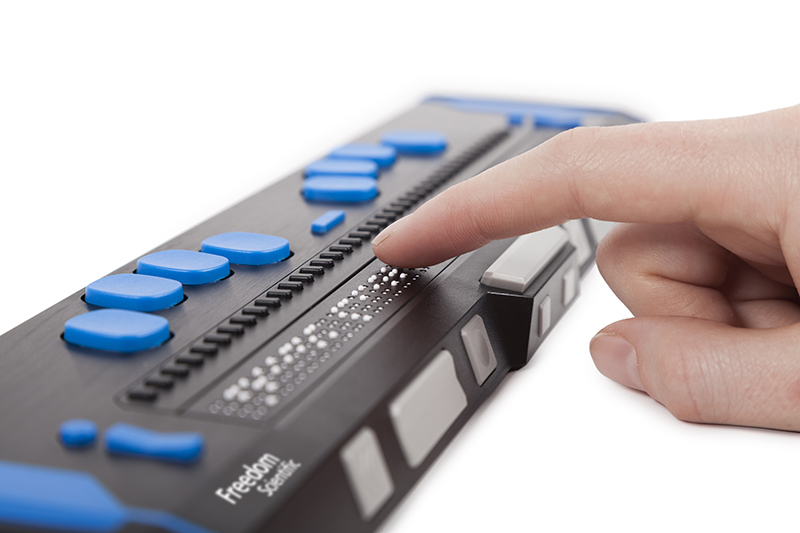
2020
RCPD redesigns the documentation process to streamline and speed up document management and workflow.
2021
RCPD developed Community Groups as an opportunity for students with disabilities to connect virtually and discuss topics relevant to their experiences. The RCPD Community Groups provided an outlet for sharing experiences and building community.
2021
RCPD launches the PEER Program, bringing together experts from academia in the fields of disability and mental health to identify skills to build resiliency and community. PEER was designed for students with mental health conditions to attend 6-weekly psychoeducational workshops derived from evidence-based practices such as mindfulness and resiliency training, Cognitive Behavioral (CBT), Dialectical Behavior (DBT), and Acceptance & Commitment (ACT) therapies. Each weekly workshop contains different skill development opportunities in mindfulness, acceptance of one’s diagnosis, executive functioning, behavioral activation and cognitive reframing, emotion regulation and resiliency training. PEER also provides a dedicated practical application support group to allow students to discuss material presented in the weekly workshops, learning to apply the skills to their own lives and build community in an informal, supportive environment.
2021
RCPD hires an Ability Access Specialist for Blindness/Visual Impairment/Other Conditions and Media Access to guide RCPD innovations including the Braille Technology Advantage, tactile graphics, and other accessible media functions.
2021
RCPD is pioneering a trial of new virtual signage technology to enhance indoor navigation in Bessey hall and the new STEM Facility
2021
MSU deploys the 2-year live-on plan, leading to anticipated noteworthy pressures on space availability. There is now natural competition for those requiring a single room as medically necessary and the capacity of the residence system to provide this given enrollment pressures.
2021
RCPD co-nominates alumni Jordyn Castor for the Spartan Young Alum Award
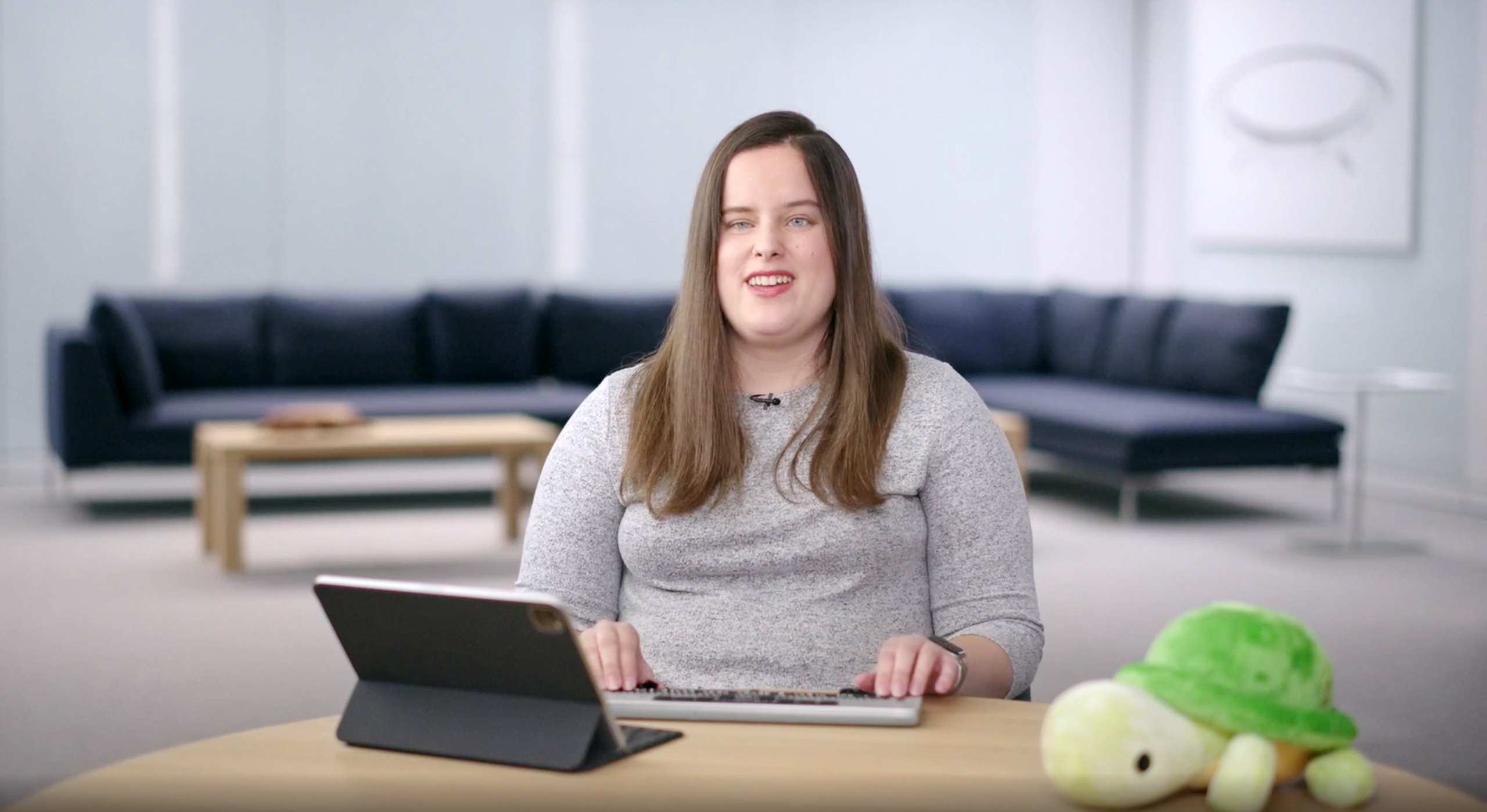
April 2021
RCPD hosted their first-ever virtual RCPD Awards and Appreciation Reception.
Fall 2021
RCPD office re-opens, with intents to apply what we have learned to allow new levels of workplace flexibility, work/life balance, and technological innovation while providing high-quality services to the community.
Ambition Meets Innovation
Architectural Innovations
Architectural Access
MSU began addressing architectural barrier removal for persons with physical disabilities in the 1960’s in response to organized disability movements. Federal and state regulations later accelerated this work. Throughout the 1970’s, continuing advocacy from the office led to the addition of over 1,000 new curb cuts in campus pathways and the construction of many ramps.
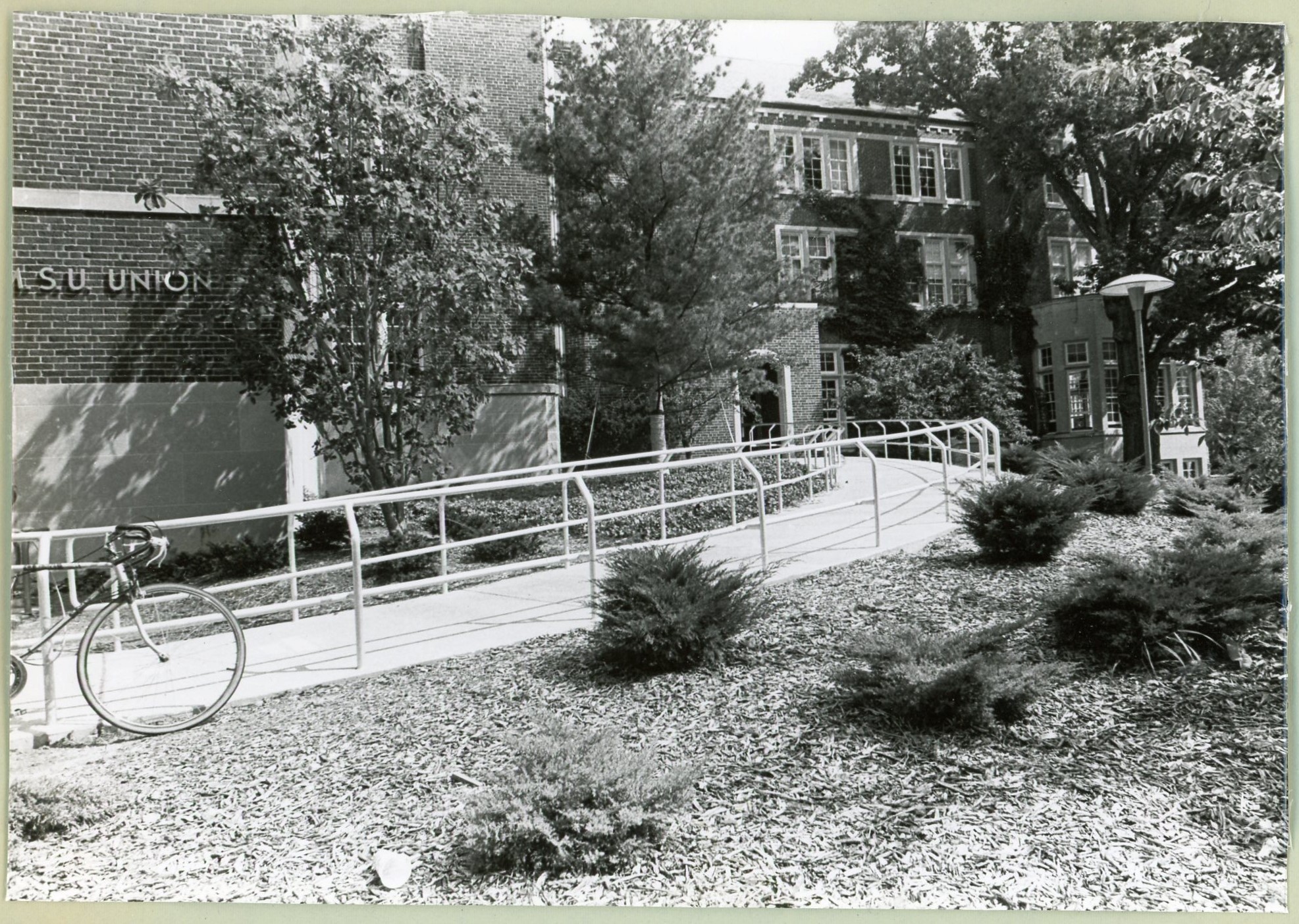
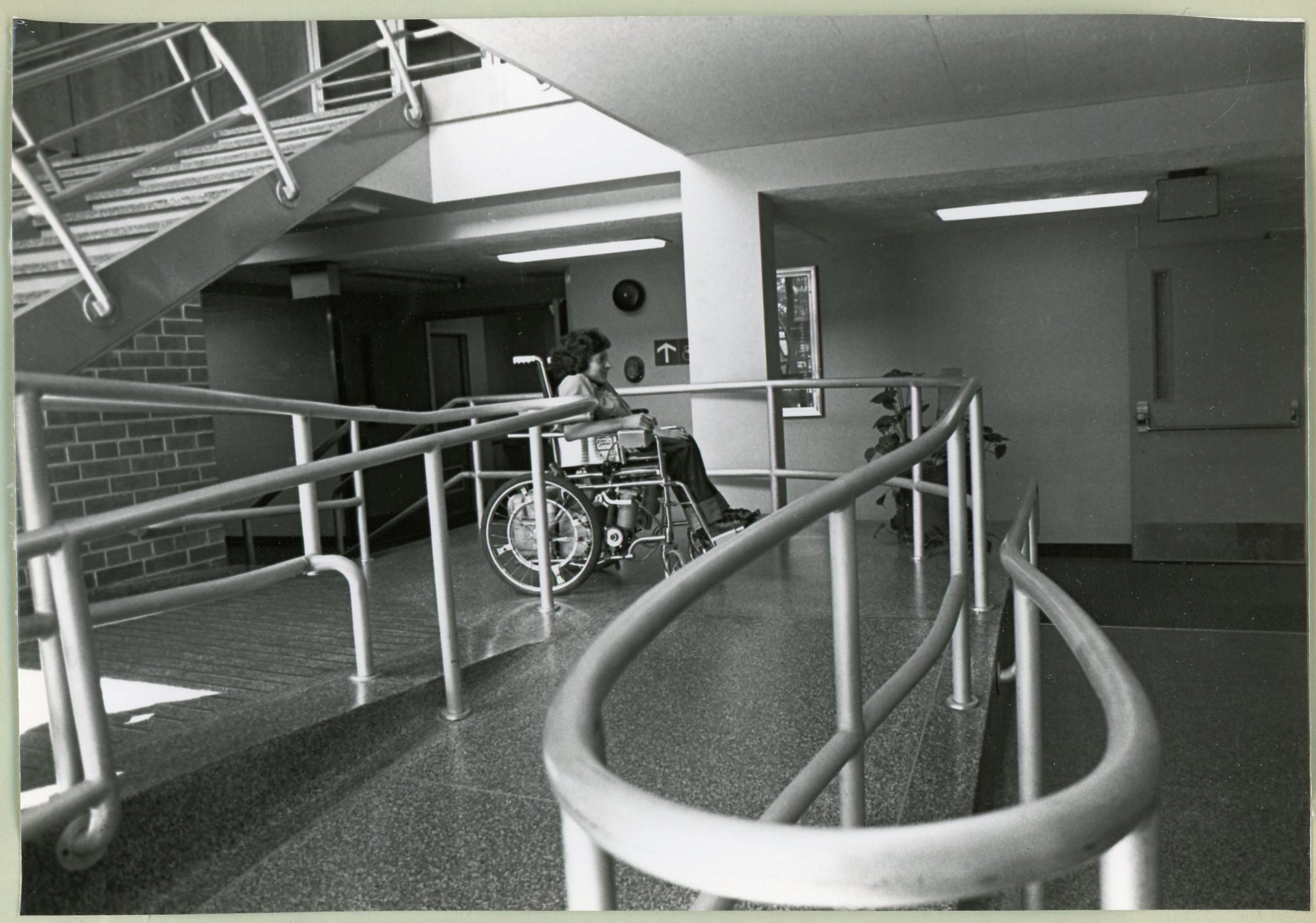
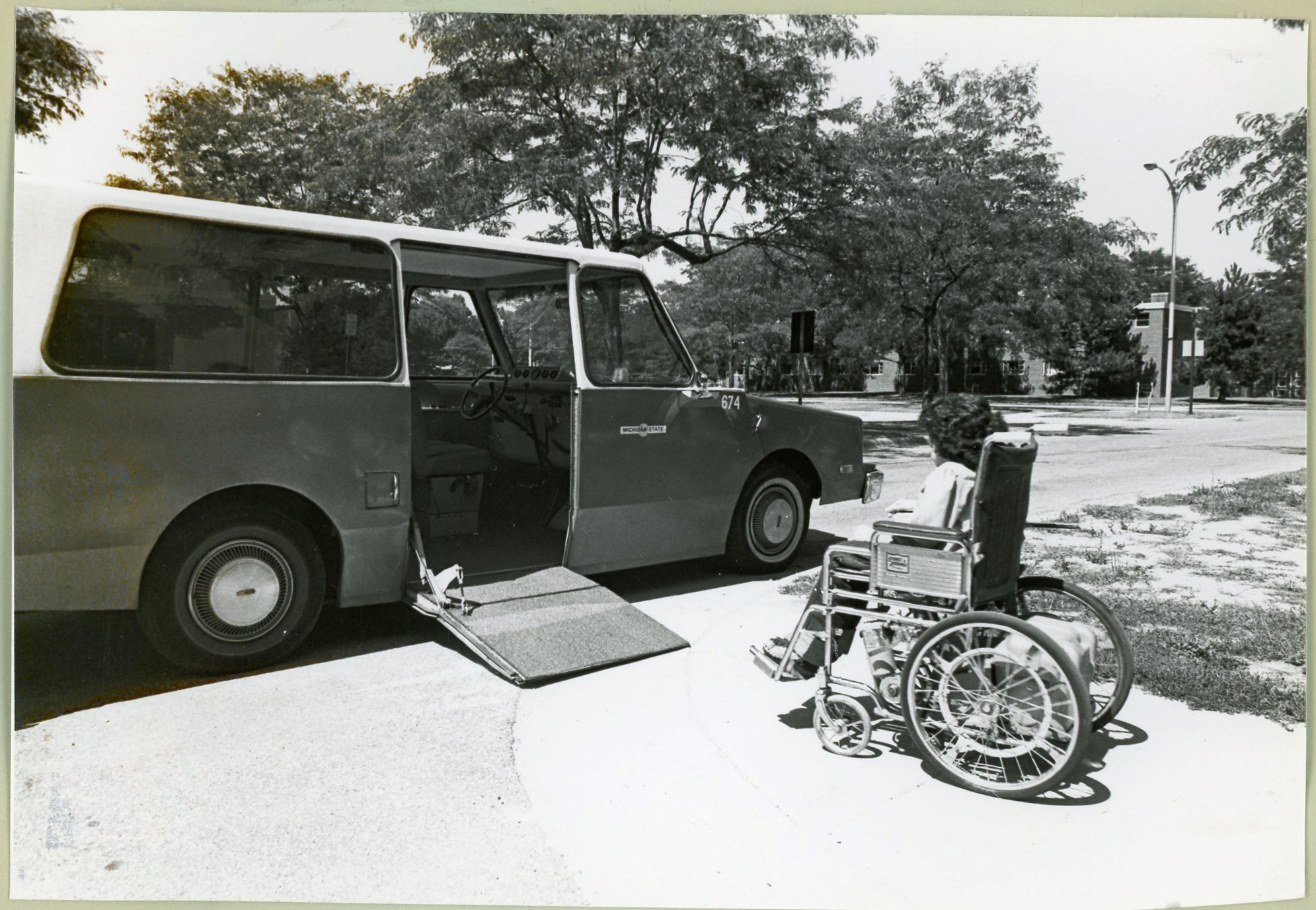
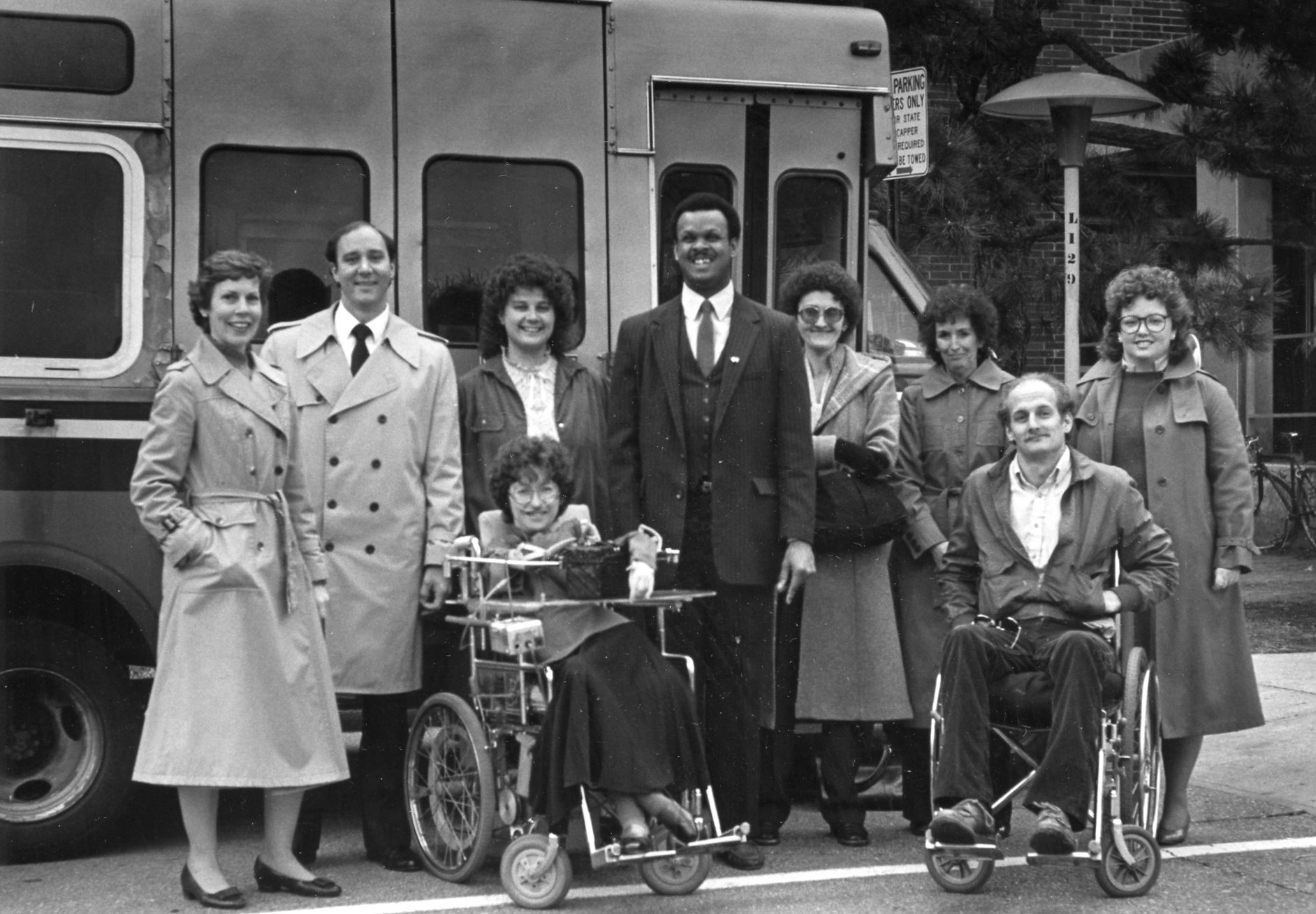
Pedestrian Safety and accessibility
MSU is a national leader in accessible pedestrian intersections through the installation of audible crosswalk indicators across campus, earning MSU a daVinci Award in the Personal Mobility category. Partnership with campus Traffic Engineer Dr. Tom Maleck dramatically increased pedestrian safety through countless innovations.
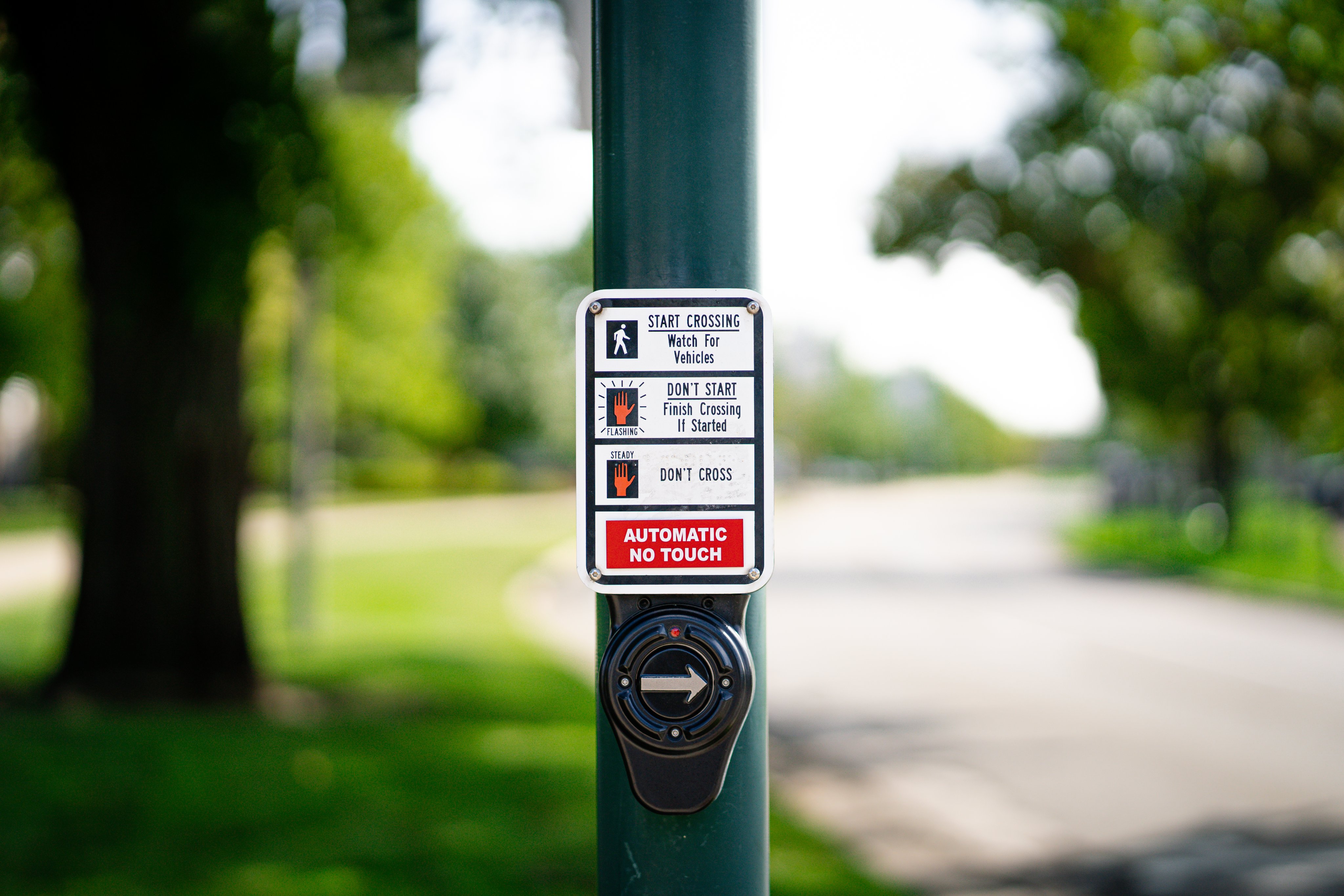
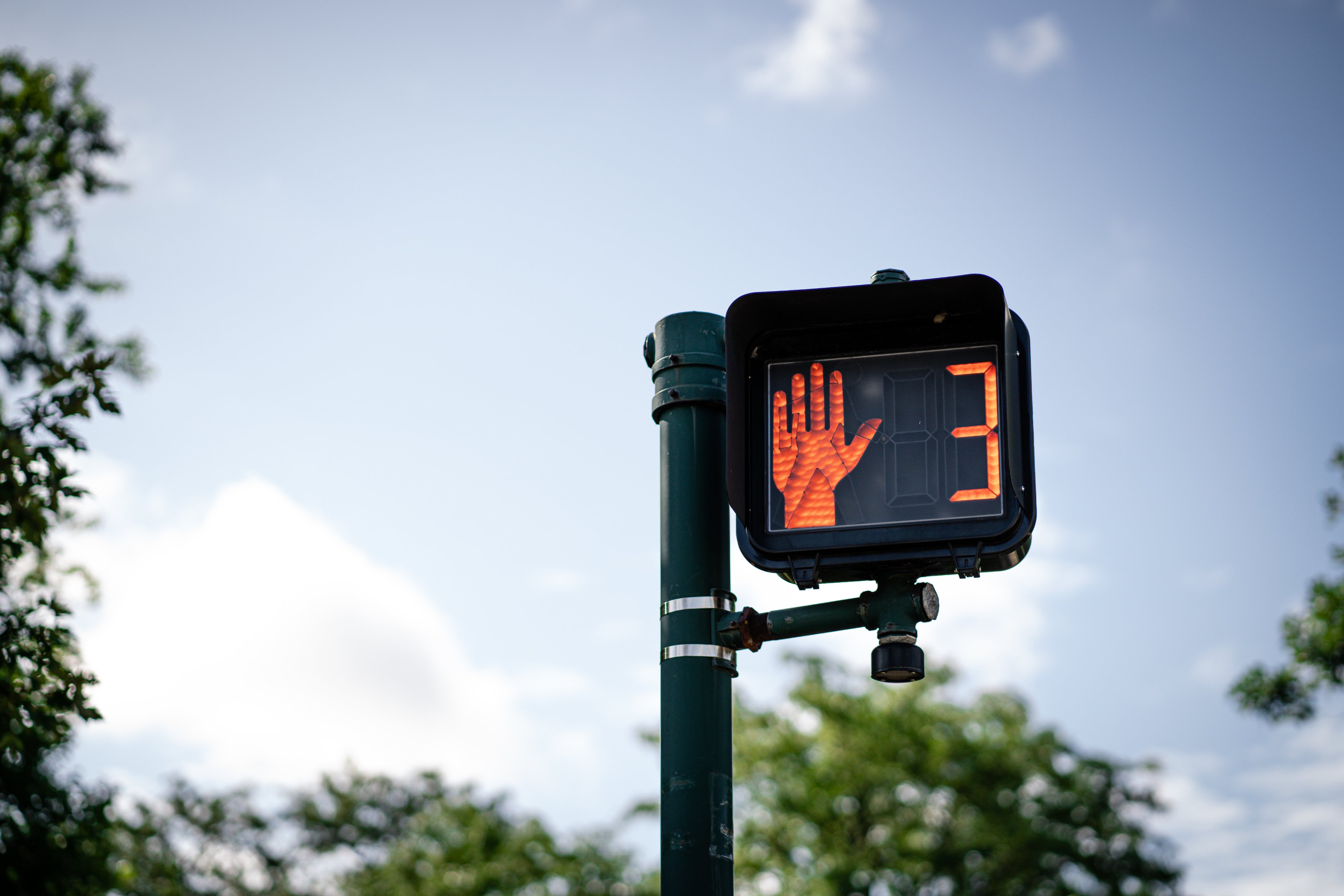
Technological Innovations
The Guide App
We developed a smartphone guide application empowering independent campus navigation. Designed for the unique needs of those with visual and navigational challenges, the app surpassed expectations by becoming a campus-wide asset helping thousands of campus newcomers.
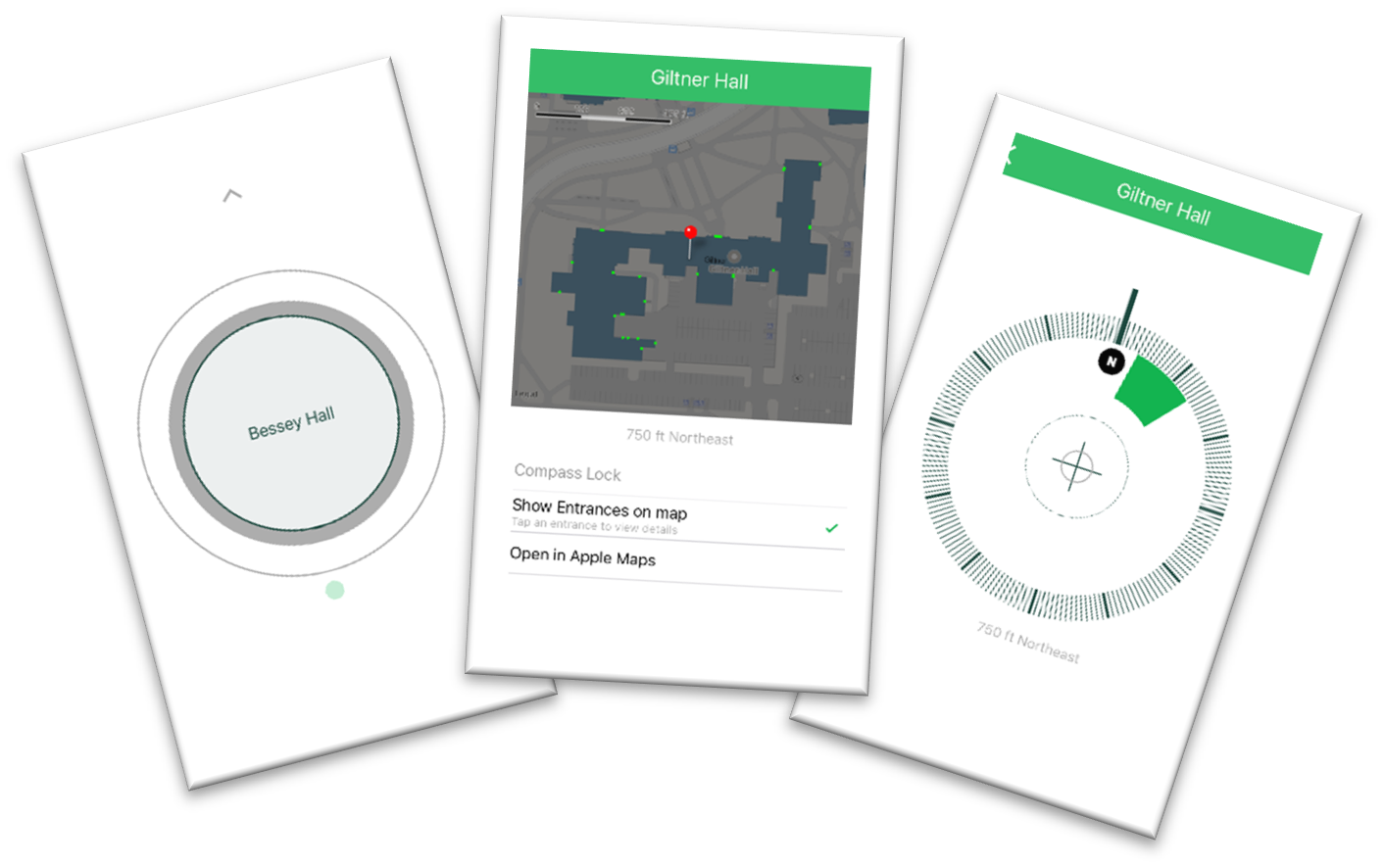
The Munch App
RCPD, in partnership with MSU Residence & Hospitality Services and MSU Infrastructure Planning & Facilities, designed and launched an iOS app called Munch. Munch helps students and employees find food and menus across campus, make informed decisions about what to eat based on dietary concerns, and connect with others.
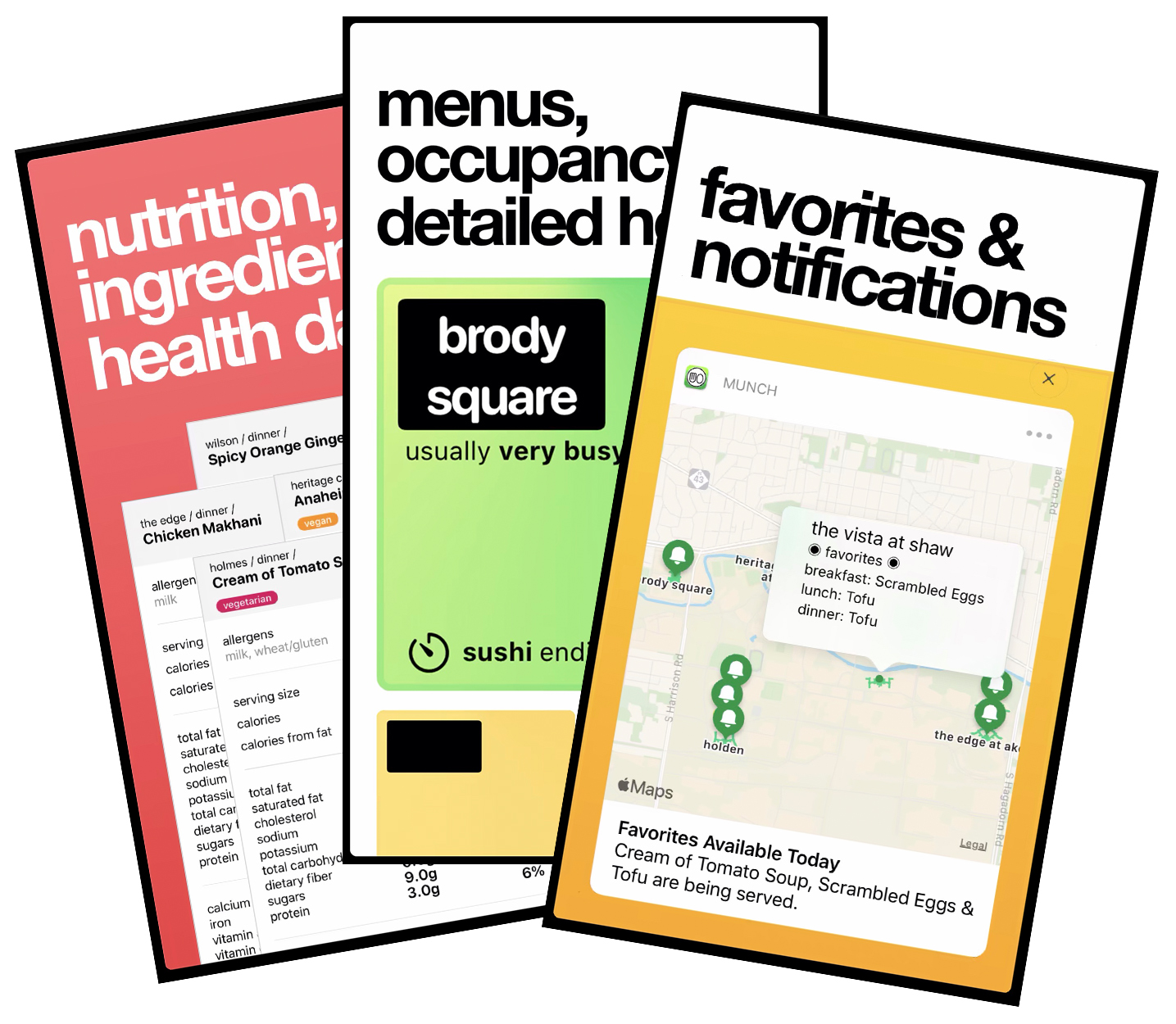
GoodMaps App
Michigan State University is a pioneering partner with GoodMaps creating accessible indoor mapping at MSU. GoodMaps uses 3D laser scanning, image recognition, and positioning technology to create maps for indoor navigation. This provides turn-by-turn directions when searching for a specific location within a building. MSU is the first university in the world to deploy GoodMaps, aiding our work in STEM accessibility.
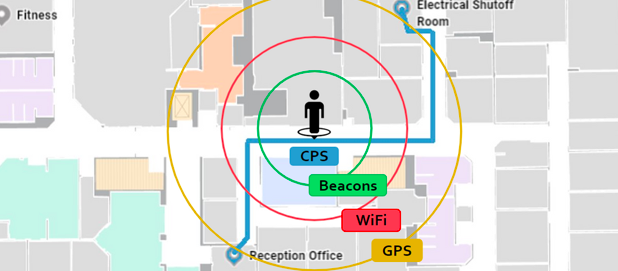
Braille Technology Advantage
Born out of pandemic challenges, the Braille Technology Advantage is the first program of its kind providing a refreshable Braille display to each incoming Braille user. The program facilitates timely production of critical reading materials while encouraging students to grow in their technological sophistication which eliminates barriers and provides expanded career and life opportunities. We thank the Carlson Family, the Emerging Opportunities Endowment, and the Gilbert Family for helping build this program.
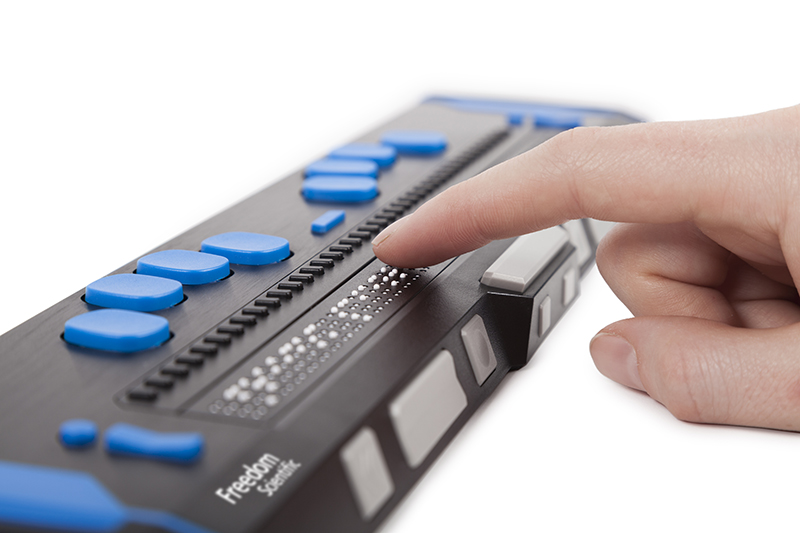
Assistive Technology
MSU offers assistive technology centers that maximize independence in reading, writing, and learning. With RCPD partnership, MSU has integrated assistive technologies throughout campus, and we help students discover solutions to challenges they face.
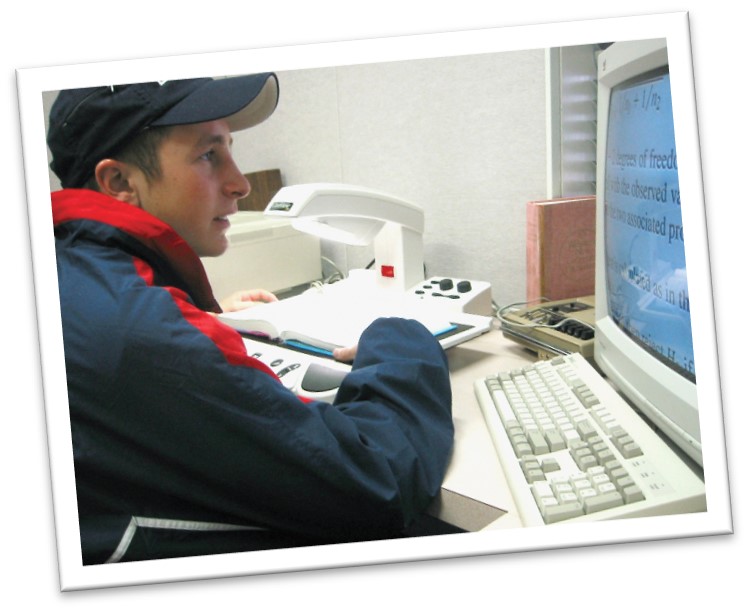
Carlson Accessible Media Program (CAMP)
Building on their belief in the abilities of people with disabilities, Richard and Kathleen Carlson established an endowment to increase availability of accessible educational materials. This program accelerates MSU advancement in educational media and has helped MSU become a national leader in accessible textbook production including Braille, electronic, and tactile.

Programmatic Innovations
The Stern Alternative Techniques for Education (STATE) Program
Funded by Mickey and Debbie Stern, the Stern Tutoring and Alternative Techniques for Education (STATE) program provides innovative assistance for students with learning disabilities. Students gain community and targeted insights through weekly seminar, tutoring, mentoring, and meetings to build skills in circumventing challenges associated with learning disabilities.
The Building Opportunities for Networking and Discovery (BOND) Program
The Building Opportunities for Networking and Development (BOND) program began with gifts from Julie Wolf of Grand Rapids and the Baldwin Foundation and is helped today by the Autism Initiatives Endowment created by the Kindzierski Family. The partnership extends programming to autistic students through an early move-in program and UGS seminar for first year students, social outings, peer mentoring, and skill development workshops.

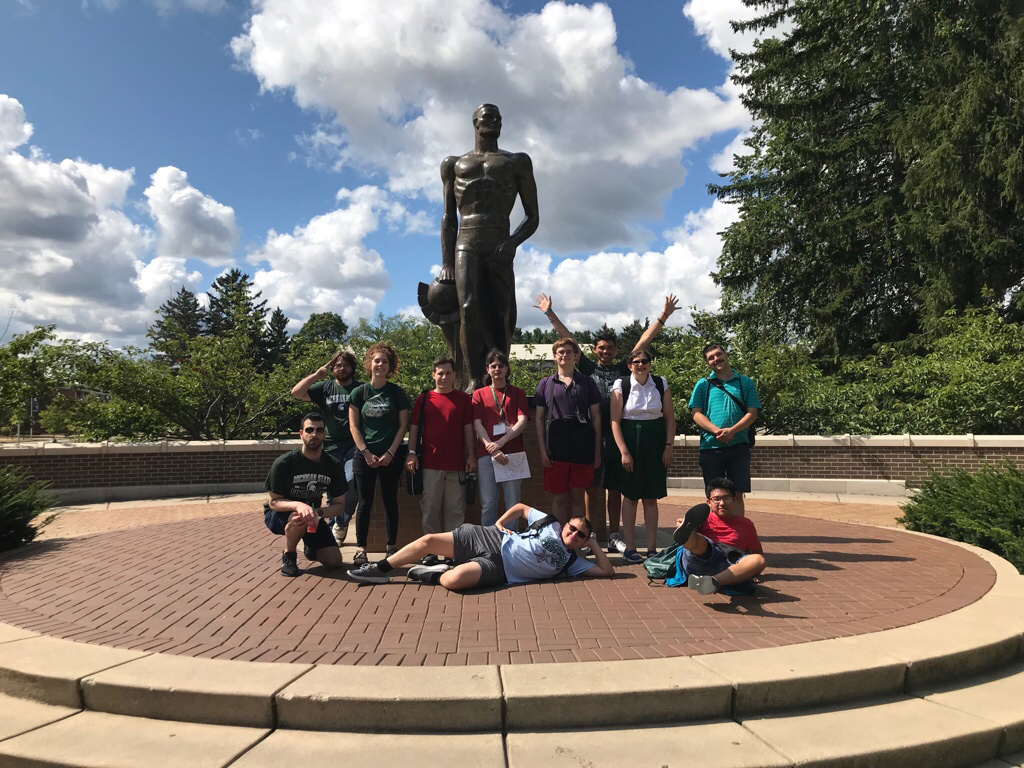
Bosco MSU/MRS Careers Collaborative
The Careers Collaborative program began with gifts from Michael and Kathy Bosco and corresponding matching state and federal funds. This brought Michigan Rehabilitation Services to campus offering tailored career transition services. The collaborative is significant as a statewide and national model project connecting multiple entities.
PEER Program
RCPD launched the PEER Program, promoting education and emotional resilience, as a workshop developing student resiliency skills and building community. This program empowers students to learn about mental health, develop positive coping skills, and maneuver challenges.
Community Groups Initiative
RCPD developed Community Groups as an opportunity for students with disabilities to connect and discuss topics relevant to their experiences. Community Groups provide an outlet for sharing experiences and gives a sense of belonging while building a community through peer connections among other students registered with the RCPD.
First Year Wellness Program, Maximizing Ability and Resiliency at MSU
Supported by the Edith Squires Endowment, RCPD created a course for first-year students to provide a strong start at MSU. This course advances occupational, nutritional, and emotional wellness.
Celebrating Success: Perspectives, Growth, and Understanding
Every Spartan deserves an equal chance at a fulfilling campus experience, but equally accessible does not mean identical. People come to MSU from all over the world with different passions, goals, and lifestyles. The students and faculty registered with the RCPD are just as diverse. Each individual approaches his or her time at MSU with varying strategies, will encounter separate challenges, and achieves unique success.
Unit Recognition
Lifetime Achievement Award
For 48 years, the Resource Center for Persons with Disabilities has been maximizing ability and opportunity for members of the Spartan community and beyond. In February 2020, RCPD was honored with a Lifetime Achievement Award, celebrating decades of creativity supporting community advancement and leadership in the area of diversity. This award was presented to RCPD Director Michael Hudson and staff during the MSU Excellence in Diversity Awards program sponsored by the Office for Inclusion and Intercultural Initiatives.
Statewide Outstanding Student Employee Award
"The power of the peer voice has a huge impact," says Matt Carbary, Assistive Technology Trainer and STATE program coordinator for the RCPD. For Matt, the seemingly simple commitment to providing others with the opportunities that made a difference in his life led him to become the State of Michigan Student Employee of the Year. He was awarded in April 2010 for his outstanding work and dedication to providing resources to students who need them for academic success.
daVinci Award
A collaborative effort between the Resource Center for Persons with Disabilities, Campus Park and Planning and Fishbeck, Thompson, Carr and Huber (a civil engineering firm) resulted in MSU's receipt of a daVinci Award in the Personal Mobility category. The award, a large engraved crystal, honors inventions and innovations that improve accessibility for all people regardless of their physical ability.
MSU Today: Student Views
Student view: Finding a place that maximizes ability
Anna Forest is a blind third-year undergraduate student studying psychology. Forest has received support services from Michigan State University’s Resource Center for Persons with Disabilities, or RCPD, which celebrates its 50th anniversary this year.
Student view: This homecoming season
Kellie Walker is a senior majoring in biochemistry and molecular biology with a bioethics minor through Lyman Briggs College and the Honors College. Walker, who is from Austin, Texas, is a member of the 2020 Homecoming Court, and serves as the President of the Council of Students with Disabilities.
Student view: Maximizing creative potential
Elliot Zirulnik is a media and information senior from Royal Oak, Mich., who is a 2013-14 Homecoming Court Ambassador and president of the Council of Students with Disabilities.
Student View: Supporting students with disabilities
Jasmine Jordan is a senior in the College of Social Science. She is also the co-president of the Council of Students with Disabilities as well as a member of the Honors College and Social Science Scholars Program. This Q & A is repurposed content from the College of Social Science. Read the original piece here.
Student View: MSU Graduate is two-time Gates Cambridge Scholar
Jasmine Jordan, a 2021 graduate from the College of Social Science, has been named a Gates Cambridge Scholar for the second time. In fall 2022, she will begin a doctorate in criminology at the University of Cambridge.
Student View: Accommodating creativity
Ellie Morgan is an RCAH junior with a dual major in English and arts and humanities. Like many students, Morgan thought she would take one of the unique arts courses offered by the Residential College in the Arts and Humanities, or RCAH, at Michigan State University. For Morgan, the course was more of a stretch than for most. She is blind.
I belong at MSU: I'm Kalil, and I am a Spartan.
Setting big goals and facing big challenges have always been part of life for Michigan State University senior Kalil Olsen. An East Lansing native, Olsen is an accomplished pianist and mellophone player who achieved his lifelong dream of becoming a member of the Spartan Marching Band his freshman year.
I belong at MSU: I'm Jordan, and I am a Spartan.
Jordan Zmich is a sophomore majoring in accounting. She is passionate about music, the environment, wheelchair hockey and, of course, Michigan State University.
Spartans in Action
Though disabilities can present challenging situations, they need not limit a person's accomplishments. The following news stories and video clips capture experiences of disabled folks, and show the power of perseverance, courage and a will to succeed.
Music You Can Touch
Spartan pianist developing tactile music system to help non-sighted musicians and marginalized populations.
Blindness Awareness Month: blindness on a spectrum, not a hindrance
October is Blindness Awareness Month: a month to bring recognition to the blind and visually impaired community. Many people who are blind, however, don’t experience complete blindness. In fact, most forms of blindness is on a spectrum. MSU students and employees Alexandra Allers, Jeffrey Swada, Annika Arney, & Michael Hudson provide perspectives around Blindness Awareness Month in this State News article.
"The Blind Leading the Blind" - Student Video by Anna Forest
Watch this comprehensive look into the life of students and graduates who are blind or visually impaired. The RCPD is pleased to host and share this video, which was created in 2020 by student Anna Forest.
1997 Engineering Grad Named Outstanding Alumnus
As one of over 22 honorees, Kurt Driscoll returned to MSU as 'Outstanding Alum' for his leadership at Faurecia Automotive Seating as validation engineer for safety and regulations. Kurt inspired attendees with a message of the power of persistence, friendship, friendship, creativity and following one's passion to reach life goals. Kurt leveraged academic preparedness with a Bachelor's degree in engineering and a Master's in Business Administration plus his personal experiences with seating (Kurt is a wheelchair user) to become a leader in automotive seating technology.
Pursuing a Dream and Beating the Odds - Jordyn Castor
Watch 2014 Samaritan Scholar Recipient, Jordyn Castor, become "Wall Street Ready" as she transforms a scholarship for the RCPD into career opportunities.
Michigan Radio interview with Brett Kopf
Listen to 2017 Outstanding Alum, Brett Kopf, discuss the story behind his co-founding of Remind, a messaging platform that connects teachers, students, parents and administrators safely over any device.
Daehee Lee: Persistence and Inspiration
Watch our 2014 Outstanding Alum, Dr. Daehee Lee, share insights on selecting MSU, moving to America, earning dual advanced degrees and leading in his career.
Farther Than the Finish Line
Aaron Scheidies graduated from MSU in 2004 as a world record setting tri-athlete, Tower Guard participant, and Outstanding Senior Award recipient. Scheidies was also registered with the RCPD as a student who is blind. He never let his visual impairment slow down his success during college, and he has continued to break stereotypes by earning a PhD in physical therapy and the Distinguished Young Alumni Award.
RCPD Oral Histories
Because no two journeys are the same, RCPD conducted oral history interviews with students, faculty and alumni to best capture their experiences with disability, the RCPD and MSU. An oral history offers people a chance to tell their story their own way. The following video clips are compilations of those interviews. Each voice carries its own life experiences and MSU adventures, but together they echo a larger legacy of success. They demonstrate the capability of individuals with disabilities, the effective services of the RCPD and the infinite possibilities in a world peppered with successful Spartans.
The oral history selections in this series commemorate the RCPD's 40th Anniversary in April 2012. They were produced by MaryKate Carter and debuted at the Annual Awards and Appreciation Reception.
Being Defined by Who You Are, Not What You Have: Speech by Julia Ruggirello
This oral history segment features an exceptional Spartan and her unparalleled drive for excellence. MSU student Julia Ruggirello shared this speech at the April 2012 Resource Center for Persons with Disabilities' Annual Awards and Appreciation Reception during her acceptance of the Anita Giampalmi Scholarship. Julia is a dynamic young woman with a positive attitude. She pursues her big dreams and refuses to be defined by disability stereotypes.
Better Understanding: Enhanced by Disability
This video segment focuses on the partnerships between Tower Guard, the RCPD and MSU students. It speaks to how education and communication help people better understand the ability of those with disabilities.
Empowering Ability Through Adaptations
This video segment highlights the ability of individuals with disabilities. Though it may sometimes take an adaptation or two, people with disabilities are fully capable of accomplishing whatever they pursue. These stories show how Spartans are accomplishing their dreams.
Passionately Pursuing Goals While Engaging Resources
This video segment demonstrates the usefulness of assistive technology and individualized RCPD services. It focuses on Spartans with disabilities harnessing these resources to more efficiently accomplish their goals.
Self-Awareness and Self-Advocacy for Positive Identity
This video segment offers a window into self-advocacy and shows how Spartans with disabilities pursue and attain success with positive self-awareness.